Réservations : conference.picardie@hotmail.com
Entrée : 5 euros.
En poursuivant votre navigation sur ce site, vous acceptez l'utilisation de cookies. Ces derniers assurent le bon fonctionnement de nos services. En savoir plus.
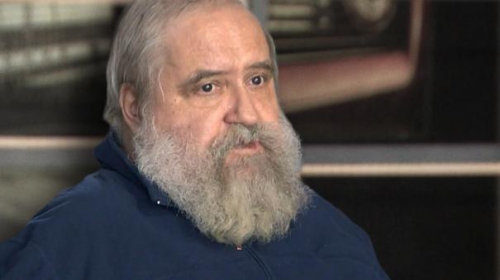
Ex: http://www.katehon.com
Today on 27 January 2017, at the age of 62 years a great thinker, a Russian philosopher, an expert on jurisprudence and law, a member of the Union of Russian Writers, poet and film director Vladimir I. Karpets has passed away.
Karpets was born December 12, 1954 in Leningrad in the family of a Russian officer.
In 1962 the family moved to Moscow.
Vladimir Karpets graduated from the Moscow State Institute of Law Faculty, specializing in "International law".
Vladimir Karpets was a well known Russian Thinker and Philosopher, author of many books, poems. He directed three films, among which there is the movie «Third Rome» He read lectures at the Moscow State University.
Among the most important contributions of Vladimir Karpets was the development of Fourth-Political theory, which was introduced to the reader by philosopher Alexander Dugin. Karpets developed an idea of Social-Monarchism as a development of the fourth political-theory.
This idea is based on Eurasian-Empire and Byzantine’s symphony of church and state as well as socialism. However it is not marxist socialism, but socialism based on Orthodox Christian Ideas, rooted deeply in Russian and Eurasian identity. Karpets belived that the state is to be goverened by a Russian Orthodox Monarch. In a way this school of thought is a continuation of such Russian conservative thinkers such as Konstantin Leontiev, Lev Tihomirov, Ivan Solonevitch and the Eurasian school of thought.
Vladimir Karpets was a mentor of the Eurasian Youth Union.
The legacy of Vladimir Karpets will live on in his books, films, but most of all in his ideas.
17:13 Publié dans Hommages, Philosophie | Lien permanent | Commentaires (0) | Tags : hommage, philosophie, monarchisme, vladimir karpets, social-monarchisme, russie |  |
|  del.icio.us |
del.icio.us |  |
|  Digg |
Digg | ![]() Facebook
Facebook

Ex: http://www.sezession.de
Hans-Dietrich Sander, Schüler Brechts, Herausgeber der Zeitschrift Staatsbriefe und unermüdlicher Publizist für die deutsche »Reichsrenaissance«, ist in der Nacht vom 24. zum 25. Januar 2017 verstorben. Aus diesem Anlaß folgt nun die Würdigung Sanders aus dem Staatspolitischen Handbuch, Bd. 3, die Martin Lichtmesz verfaßte.
(Text aus dem Band Vordenker des Staatspolitischen Handbuchs, Schnellroda 2012.)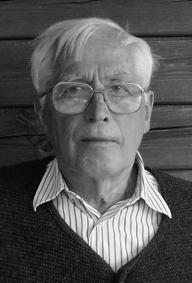 »Konsequent, hochmütig und rücksichtslos « sei der Tonfall, den der »nationale Dissident« Hans-Dietrich Sander in seinen Schriften anstimme, voller Verachtung für die »feigen fetten Fritzen der Wohlstandsgesellschaft «, was ihn »Gott sei Dank in einen unversöhnlichen Gegensatz zur großen Mehrheit der Bürger der Bundesrepublik Deutschland« bringe. Dennoch müsse verhütet werden, daß »diese stilisierte Einsamkeit, diese ›Kleistsche Radikalität‹ wieder Anhänger findet«.
»Konsequent, hochmütig und rücksichtslos « sei der Tonfall, den der »nationale Dissident« Hans-Dietrich Sander in seinen Schriften anstimme, voller Verachtung für die »feigen fetten Fritzen der Wohlstandsgesellschaft «, was ihn »Gott sei Dank in einen unversöhnlichen Gegensatz zur großen Mehrheit der Bürger der Bundesrepublik Deutschland« bringe. Dennoch müsse verhütet werden, daß »diese stilisierte Einsamkeit, diese ›Kleistsche Radikalität‹ wieder Anhänger findet«.
Denn: »Schon ein paar Tausend wären zu viel für die zivile, parlamentarische Bundesrepublik.« So furcht- wie respektvoll urteilte 1989 der Sozialdemokrat Peter Glotz über den Mann, den Armin Mohler »den unbequemsten Vertreter der Neuen Rechten« nannte und der sich selbst stets jeder Kategorisierung dieser Art entzog. Sander wuchs in einem kleinen mecklenburgischen Dorf auf und besuchte ab 1939 das Gymnasium in Parchim. In Kiel erlebte er als junger Marinehelfer den Krieg in Form von massiven Luftangriffen. Er betonte später, daß diese Erfahrung keinen Platz für »Schuldgefühle« ließ und er den gegen Deutschland erhobenen Anschuldigungen von Anfang an skeptisch gegenüberstand. Er sah sich schon früh als »Reichsdeutscher, der in der Stunde Null nur angeritzt wurde«.
Ab 1949 studierte er Theaterwissenschaften und Germanistik in West-Berlin. Herbert Ihering vermittelte ihm eine Hospitanz bei den Proben des Berliner Ensembles. Die Faszination durch Bertolt Brecht infizierte Sander mit dem Kommunismus. Er brach mit dem politischen und wirtschaftlichen System Westdeutschlands und zog 1952 nach Ost-Berlin, wo er als Dramaturg und Theaterkritiker tätig war. Sein kommunistisches Engagement erlosch am 17. Juni 1953, und im Dezember 1957 ging er wieder zurück in den Westen, dem er allerdings weiterhin kritisch gegenüberstand. 1958 bis 1962 arbeitete Sander unter der Schirmherrschaft Hans Zehrers als Redakteur für die Welt. Seine Arbeit dieser Jahre konzentrierte sich auf das Feuilleton und war nur indirekt politisch geprägt. 1963/64 ging er für ein Forschungsprojekt über revolutionstheoretische Schriften nach Zürich. Im Rahmen dieses Projekts nahm er Kontakt zu bedeutenden Sozialisten, Kommunisten und Ex-Kommunisten wie Boris Souvarine, Giangiacomo Feltrinelli oder Oskar Lange auf. 1965 holte Hans Zehrer Sander zur Welt zurück. Zehrer starb 1966, Ende 1967 wurde Sander entlassen. Die raschen Siege der Studentenrevolte entlarvten in seinen Augen die Brüchigkeit des politischen Systems. Zwischen»liberaler Restauration wie ihrer linken Unterwanderung« führte der Weg zu dezidiert nationalen Positionen, die sich im Laufe der Jahre radikal zuspitzen sollten. 1969 promovierte Sander bei Hans-Joachim Schoeps mit der dogmengeschichtlichen Studie Marxistische Ideologie und allgemeine Kunsttheorie.
1963/64 ging er für ein Forschungsprojekt über revolutionstheoretische Schriften nach Zürich. Im Rahmen dieses Projekts nahm er Kontakt zu bedeutenden Sozialisten, Kommunisten und Ex-Kommunisten wie Boris Souvarine, Giangiacomo Feltrinelli oder Oskar Lange auf. 1965 holte Hans Zehrer Sander zur Welt zurück. Zehrer starb 1966, Ende 1967 wurde Sander entlassen. Die raschen Siege der Studentenrevolte entlarvten in seinen Augen die Brüchigkeit des politischen Systems. Zwischen»liberaler Restauration wie ihrer linken Unterwanderung« führte der Weg zu dezidiert nationalen Positionen, die sich im Laufe der Jahre radikal zuspitzen sollten. 1969 promovierte Sander bei Hans-Joachim Schoeps mit der dogmengeschichtlichen Studie Marxistische Ideologie und allgemeine Kunsttheorie.
Eine Fußnote der 1970 in Buchform erschienenen Dissertation reproduzierte erstmalig den inzwischen berühmten Brief Walter Benjamins an Carl Schmitt, den Theodor W. Adorno in seiner Benjamin-Edition unterschlagen hatte. Mit Schmitt pflegte Sander seit 1967 einen intensiven Briefwechsel, der bis 1981 anhielt. Sanders Geschichte der Schönen Literatur in der DDR (1972), zum Teil aus der Warte eines Augenzeugen geschrieben, löste eine heftige Kampagne aus, in deren Folge der Verlag das Buch aus dem Vertrieb zog. Sander verlor nun zunehmend an publizistischem Spielraum. Asyl fand er in Caspar von Schrenck-Notzings Criticón und in William S. Schlamms Zeitbühne.
1975/76 war er kurzzeitig Lehrbeauftragter an der TU Hannover und auf Einladung Jacob Taubes 1978/79 Gastdozent an der Freien Universität Berlin. Der nationale Imperativ (1980), sein erstes dezidiert politisches Buch, versammelte »Ideengänge und Werkstücke zur Wiederherstellung Deutschlands« und stellte dabei gar »propädeutische Überlegungen zum Vierten Reich« an. 1983–86 übernahm er die Chefredaktion der Deutschen Monatshefte.
Die Auflösung aller Dinge (1988), eine meisterhafte polemische Studie »zur geschichtlichen Lage des Judentums in den Metamorphosen der Moderne «, überschritt als erstes Buch nach 1945 den »Rubikon« (Habermas) einer kritischen Neusichtung der »deutsch-jüdischen Frage« »unter dem Gesichtspunkt der politischen Eschatologie«. Den Hintergrund bildete der Begriff der »Entortung« als zentrales Kennzeichen der Auflösungsprozesse der Moderne. Von Bedeutung sind auch die darin enthaltenen »Thesen zum Dritten Reich«.
Pünktlich zur Wende verwirklichte Sander 1990 das langgehegte Projekt einer eigenen Zeitschrift, der Staatsbriefe, die er als »Freistatt für das offene Wort« im Dienste der »Renaissance des nationalen Denkens« konzipierte. Als Emblem diente der Grundriß des Castel del Monte, entsprechend dem kühnen Programm einer Wiederbelebung einer ghibellinischen Reichsidee, an der Sander mit provozierender Unbeirrtheit festhielt. Zu den Mitarbeitern der ersten Stunde zählten u. a. Armin Mohler, Günter Zehm, Hans-Joachim Arndt, Günter Maschke, Robert Hepp, Salcia Landmann, Reinhold Oberlercher und Wolfgang Strauss.
Die Hoffnungen, mit den Staatsbriefen ein wirkungsvolles Pendant zu Hans Zehrers Tat und ein weltanschaulich weitgespanntes Forum auf nationaler Basis zu lancieren, zerstreuten sich allerdings ebenso schnell wie die Erdrutschstimmung der Wendezeit. Die hochkarätige Mitarbeiterschaft dünnte sich bereits nach dem ersten Jahrgang merklich aus; im Jahre 2000 wurde die Zeitschrift schließlich eingestellt. Viermal im Jahr schreibt der streitbare Autor noch für die österreichische Zeitschrift Neue Ordnung, sein Hauptaugenmerk gilt dabei weiterhin der laufenden Selbstzersetzung des liberalen Systems.
Hans-Dietrich Sander: Der ghibellinische Kuß, 208 S., geb., 22 €, Band 1/10 der Gesamtausgabe – hier bestellen
Hans-Dietrich Sander: Politik und Polis, 271 S., geb., 26 €, Band 2/10 der Gesamtausgabe – hier bestellen
(Herausgegeben von Heiko Luge sind diese beiden Titel die ersten Bände der Gesamtausgabe, deren einzelne zehn Werke von 2016 bis 2019 ediert werden. Alle Titel sind nach Erscheinen über antaios.de zu beziehen.)
Außerdem lieferbar ist folgende Festschrift für Sander, die von Schülern, Zeitgenossen und Weggefährten verfaßt wurde:
Heiko Luge (Hrsg.): Grenzgänge. Liber amicorum für den nationalen Dissidenten Hans-Dietrich Sander, 354 Seiten, geb., 29,90 € – hier bestellen
15:53 Publié dans Hommages | Lien permanent | Commentaires (0) | Tags : nouvelle droite allemande, neue rechte, hans-dietrich sander, hommage, allemagne |  |
|  del.icio.us |
del.icio.us |  |
|  Digg |
Digg | ![]() Facebook
Facebook
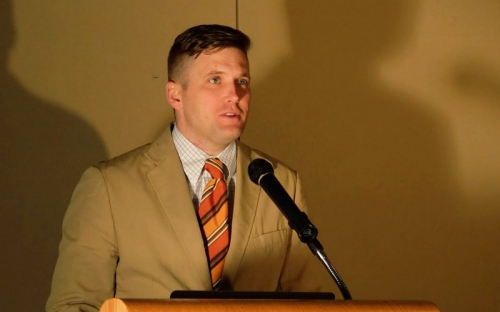
Georg Immanuel Nagel :
Etats-Unis : qu’est-ce que l’ « Alt-Right » ?
On sait que l’élection de Donald Trump à la présidence des Etats-Unis a été un séisme politique d’ampleur globale. Mais le changement serait encore plus radical et plus profond si nous assistions, dans un futur proche, à un renforcement continu du mouvement dit de « Alt-Right ». Cette dénomination recouvre un courant intellectuel de droite aux facettes multiples, dont les adhérents constituent le seul groupe perceptible sur l’échiquier politique américain à avoir soutenu ouvertement Trump et à l’avoir ovationné.
Il faut cependant préciser qu’il n’y a aucun lien organique entre cette « Alt-Right » et Donald Trump, dont la rhétorique et les exigences sont bien plus inoffensives et bien moins idéologisées que celles de cette droite alternative. Cependant, Hillary Clinton, la candidate battue de ces élections présidentielles, n’a pas pu s’empêcher d’essayer d’identifier Trump à la « Alt-Right ». Ce genre de calomnies se nomme la « culpabilisation par association » dans le langage politique anglo-saxon. Mais cette tentative a eu des effets contraires à ceux espérés. Hillary Clinton a tenu un très long discours où elle a cité longuement tous les « méchants » qui soutenaient son adversaire. Elle faisait usage, dans ce discours, des injures politiques habituelles de la gauche et de l’extrême-gauche (« raciste », « homophobe », « sexiste », etc.).
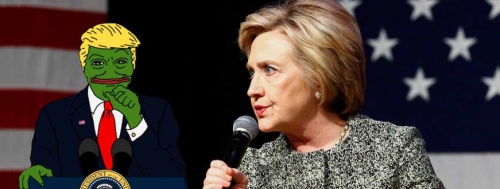
Hillary Clinton n’a pas obtenu la réaction qu’elle escomptait. Donald Trump n’a nullement été freiné dans son élan, sans doute parce qu’il n’y avait pas moyen de prouver qu’il avait un lien quelconque avec les animateurs des cercles qualifiables de « Alt-Right ». Du coup, grâce à la maladresse d’Hillary Clinton, le mouvement de la droite alternative a été connu dans toute l’Amérique et est devenue l’objet de vastes débats. Les pages de la grande toile de ces groupes alternatifs très peu connus ont été visitées à grande échelle : elles ont battu tous leurs records de fréquentation et les médias « mainstream » se sont mis à parler des initiatives, colloques et conférences de la « Alt-Right » et ont invité leurs représentants à répondre à des entretiens. Métapolitiquement parlant, on peut parler d’un tournant historique et peut-être même décisif.
L’Alt-Right ne se borne pas à fustiger le Zeitgeist, l’esprit du temps, marqué par le gauchisme. Elle brocarde aussi l’établissement conservateur conventionnel et les vieux Républicains. Elle considère que ces derniers se soumettent trop facilement aux diktats du politiquement correct, ce qui a pour corollaire qu’ils n’osent pas aborder les vrais problèmes de la société américaine, qu’ils ne se hasardent pas à adopter un « race realism », un « réalisme racialiste ». Cette réticence fait du mouvement conservateur conventionnel un « tigre de papier », condamné à échouer à tout bout de champ, parce qu’il abandonne continuellement ses propres positions et ses propres intérêts pour ne pas devoir subir les pressions habituelles, lesquelles ont évidemment recours à l’insulte classique de « racisme ».
Le philosophe et politologue Paul Gottfried avait naguère, bien avant le buzz déclenché par le discours anti-Alt Right d’Hillary Clinton, réclamé l’avènement d’une « droite alternative », différente du « conservatism mainstream ». Son appel à une « droite alternative » a été entendu : plusieurs publicistes l’ont repris, dont Richard Spencer, le fondateur de la boîte-à-penser « National Policy Institute ». Aussitôt Spencer baptise « Alternative Right » le magazine en ligne qu’il crée dans le sillage du discours de Gottfried, lui conférant aussi le diminutif de « Alt Right ». Tout le mouvement contestataire de l’idéologie libérale-gauchiste dominante et du conservatisme timoré reçoit alors le terme générique de « Alt Right ».
La droite alternative voulue par Gottfried au départ, lancée par Spencer dans la foulée, reproche, pour l’essentiel, aux conservateurs traditionnels de ne pas se poser comme les défenseurs des Américains de souche européenne, alors que ceux-ci constituent leur unique base électorale potentielle. C’est en fait le cas dans tous les Etats européens aliénés par le multiculturalisme où les minorités ethniques étrangères votent presque toujours pour les partis de gauche.
 L’Alt Right américaine est constituée d’une variété de groupes très différents les uns des autres. D’une part, nous avons des revues et des maisons d’édition qui ne se distinguent guère des nouvelles droites française ou germanophones, dans la mesure où elles entendent se poser comme des initiatives sérieuses et intellectuelles. D’autre part, nous avons des personnalités qui s’adonnent à la moquerie et à la satire. Citons, en ce domaine, le comique « RamZPaul » (photo), les séries de caricatures « Murdoch Murdoch ». L’humour que répandent ces initiatives-là est, bien sûr, politiquement incorrect, et de manière explicite ! Parfois, il est espiègle et seulement accessible aux « initiés ». Les tenants de gauche de la « religion civile » américaine y sont fustigés à qui mieux-mieux, sans la moindre pitié. Personne n’oserait un humour pareil sous nos latitudes européennes.
L’Alt Right américaine est constituée d’une variété de groupes très différents les uns des autres. D’une part, nous avons des revues et des maisons d’édition qui ne se distinguent guère des nouvelles droites française ou germanophones, dans la mesure où elles entendent se poser comme des initiatives sérieuses et intellectuelles. D’autre part, nous avons des personnalités qui s’adonnent à la moquerie et à la satire. Citons, en ce domaine, le comique « RamZPaul » (photo), les séries de caricatures « Murdoch Murdoch ». L’humour que répandent ces initiatives-là est, bien sûr, politiquement incorrect, et de manière explicite ! Parfois, il est espiègle et seulement accessible aux « initiés ». Les tenants de gauche de la « religion civile » américaine y sont fustigés à qui mieux-mieux, sans la moindre pitié. Personne n’oserait un humour pareil sous nos latitudes européennes.
Cette audace est possible grâce à la constitution américaine qui interdit explicitement de punir, par le truchement de lois régissant les opinions, l’expression libre et sans entrave de celles-ci, alors qu’en Europe les législations liberticides sont acceptées sans sourciller. Ainsi, les publications scientifiques des milieux de l’Alt Right sont autorisées, même si elles abordent des sujets brûlants comme l’anthropologie biologique. Sur ce chapitre, les productions du groupe « American Renaissance » sont particulièrement intéressantes pour nous, Européens, qui ne bénéficions plus d’une liberté de recherche en ce domaine spécifique du savoir.
Georg Immanuel Nagel,
Article paru dans zur Zeit, Vienne, n°3/2017, http://www.zurzeit.at .
20:57 Publié dans Actualité | Lien permanent | Commentaires (0) | Tags : actualité, alt right, états-unis, droite alternative, alternative right |  |
|  del.icio.us |
del.icio.us |  |
|  Digg |
Digg | ![]() Facebook
Facebook

Réservations : conference.picardie@hotmail.com
Entrée : 5 euros.
19:51 Publié dans Evénement, Histoire | Lien permanent | Commentaires (0) | Tags : histoire, religion, catholicisme, jansénisme, marion sigaut, événement, amiens, picardie |  |
|  del.icio.us |
del.icio.us |  |
|  Digg |
Digg | ![]() Facebook
Facebook
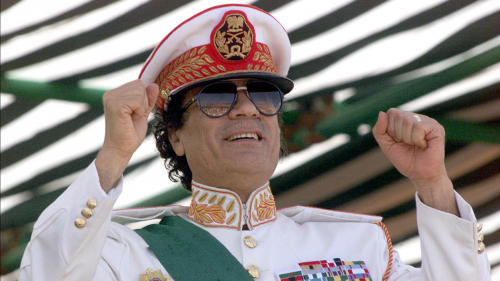
Mouammar Kadhafi voit le jour en 1942. C’est un jeune Bédouin – aux origines anecdotiques - issu d’une famille si pauvre qu’il avait à peine de quoi se nourrir. Il est toutefois décrit comme brillant à l’école. Il réussit à étudier en quatre années seulement le programme de six années du cycle primaire. Il apprend avec une facilité qui étonne ses camarades et ses enseignants. Très vite, il dégage autour de lui une sorte d'autorité naturelle et une fierté qui contraste avec son cadre de vie très modeste. Féru de lecture, il fait la connaissance des grands personnages qui ont fait l'histoire du monde et de l’Afrique : Abraham Lincoln, le général de Gaulle, Mao Zedong, Patrice Lumumba et surtout Gamal Abdel Nasser le leader égyptien dont il s’inspire particulièrement. L'environnement politique de l'époque est marqué par une série d'évènements dans le monde arabe : la guerre d'Algérie, l'agression de l'Égypte, la bataille du Liban, la question palestinienne, la révolution au Yémen, la présence sur le sol libyen des bases militaires américaines et britanniques, l'état misérable du peuple libyen, victime d’un règne monarchique gangrené par la corruption et le népotisme. Autant de facteurs qui amènent Kadhafi à se sentir « investi d’une mission » celle de libérer son pays de la domination étrangère, de la pauvreté et des inégalités.
En 1963, Kadhafi obtient son baccalauréat de philosophie, mais refuse de travailler dans les compagnies pétrolières. Il a autre chose en tête. Il crée un groupe de jeunes pour entrer à l’école militaire de Benghazi, pas pour devenir des soldats de métier, mais pour infiltrer l’institution et s’en servir pour mener la révolution. Six ans plus tard, il prend le pouvoir avec ses compagnons d’armes, le 1er septembre 1969, à l’occasion d’un coup d’Etat sans effusion de sang. Mouammar Kadhafi n’est alors qu’un jeune officier de 27 ans. Son rêve de transformer la Libye peut commencer. Il durera tout le temps de son action aux commandes de son pays : 42 ans, et s’étendra sur l’Afrique.
Mouammar Kadhafi se révèle rapidement être un nationaliste souverainiste habité par l’idée de protéger son pays et de faire bénéficier à son peuple les revenus tirés des ressources pétrolières et gazières, jusqu’alors détournés et dilapidés par un régime corrompu, celui du Roi Idriss et les compagnies pétrolières. Le jeune pilote est particulièrement choqué face à la luxure et l’indécence déployée au cours des festins organisés dans son pays par les compagnies pétrolières et les autorités à côté d’une population qui manque pratiquement de tout. Kadhafi est un souverainiste. Il rejette tous les impérialismes, aussi bien l’impérialisme américain que l’impérialisme soviétique dont le côté athée » choque sa conscience de « croyant ». Ce refus du communisme, en pleine période de Guerre froide, va d’ailleurs l’épargner des ennuis avec les Occidentaux qui ne voyaient pas en lui une menace là où les leaders ouvertement communistes d’Amérique latine et d’Afrique étaient des cibles à abattre. Il parvient à contrôler les ressources de son pays et à renégocier les contrats là où les pays alignés derrière l’une ou l’autre des superpuissances disposaient des marges de manœuvres assez limitées. Il nationalise les principaux secteurs de la vie économique libyenne, moyennant compassassions. Dans le secteur pétrolier, les négociations sont ardues, mais en 1971, Kadhafi réussit ce qu’aucun autre pays pétrolier n’avait réussi auparavant : imposer aux compagnies pétrolières une augmentation des prix du brut. Le mouvement va faire des émules dans les pays de l’OPEP.
 Pour la première fois, le peuple libyen se réapproprie les richesses de son pays. Le revenu annuel qui était de 2 milliards 223 millions de dollars en 1973 passe à 6 milliards en 1974, pour atteindre 8,87 milliards de dollars en 1977. Des centaines de milliers de familles libyennes voient leur condition de vie s'améliorer considérablement. Sous le roi Idriss, la Libye était parmi les pays les plus pauvres de la planète. 94% de la population était analphabète. La mortalité infantile était parfois de 40%. Kadhafi va transformer un pays et un peuple tout entier. Et pas seulement la Libye. L’argent du pétrole libyen va financer plusieurs causes à travers le monde, notamment la cause du peuple palestinien et la lutte des Noirs en Afrique du Sud. La Libye est ainsi le premier pays que visite le leader de la lutte contre l’Apartheid, Nelson Mandela, dès sa sortie de prison en 1994. Kadhafi permet à l’Afrique de connaître sa première révolution technologique en finançant le premier satellite de télécommunication RASCOM-QAF1 permettant aux pays africains de se rendre indépendants des réseaux satellitaires occidentaux et d’économiser plus de 500 millions de dollars (ou de les faire perdre aux compagnies occidentales).
Pour la première fois, le peuple libyen se réapproprie les richesses de son pays. Le revenu annuel qui était de 2 milliards 223 millions de dollars en 1973 passe à 6 milliards en 1974, pour atteindre 8,87 milliards de dollars en 1977. Des centaines de milliers de familles libyennes voient leur condition de vie s'améliorer considérablement. Sous le roi Idriss, la Libye était parmi les pays les plus pauvres de la planète. 94% de la population était analphabète. La mortalité infantile était parfois de 40%. Kadhafi va transformer un pays et un peuple tout entier. Et pas seulement la Libye. L’argent du pétrole libyen va financer plusieurs causes à travers le monde, notamment la cause du peuple palestinien et la lutte des Noirs en Afrique du Sud. La Libye est ainsi le premier pays que visite le leader de la lutte contre l’Apartheid, Nelson Mandela, dès sa sortie de prison en 1994. Kadhafi permet à l’Afrique de connaître sa première révolution technologique en finançant le premier satellite de télécommunication RASCOM-QAF1 permettant aux pays africains de se rendre indépendants des réseaux satellitaires occidentaux et d’économiser plus de 500 millions de dollars (ou de les faire perdre aux compagnies occidentales).
La Libye investit plusieurs milliards de dollars dans les secteurs variés des économies des pays africains. Contrairement aux Occidentaux qui investissent principalement dans l’industrie extractive, Tripoli investit dans les secteurs primaires (agriculture, élevage) et tertiaire (banques, hôtels, services), principalement dans les pays les plus pauvres du Continent. La Libye lance le chantier de trois organismes financiers qui devraient contribuer à asseoir l'émancipation monétaire et financière de l'Afrique : la Banque africaine d'investissement (BAI), le Fonds monétaire africain (FMA) avec un capital de 42 milliards de dollars et la Banque centrale africaine (BCA). Outre le rachat des dettes et engagements contractés auprès des Institutions financières internationales, le développement de ces trois organismes devait permettre aux pays africains d'échapper aux diktats de la Banque mondiale et du FMI et marquer la fin du franc CFA. Une émancipation que l’Occident voit de très mauvais œil.
Trois attentats terroristes ont valu à Kadhafi d’être présenté comme la figure emblématique du terrorisme international : l’attentat contre la discothèque La Belle, à Berlin, en 1986, l’attentat contre un avion de la Pan Am au-dessus du village écossais de Lockerbie en 1988 et l’attentat contre le DC10 d’UTA en 1989 au-dessus du Niger. Tant d' évènements tragiques pour lesquels ils avaient été injustement imputés à l’Etat libyen !
L’attentat de Berlin est le premier de la série. Il a failli coûter la vie à Kadhafi suite à la réaction du président américain Ronald Reagan. Ce dernier, dès son arrivée à la Maison Blanche, en 1981, s’était mis en tête l’idée d’éliminer le Guide libyen qu’il qualifiait en pleine Guerre froide, d’« agent de Moscou », « l’homme le plus dangereux du monde » ou encore « le chien enragé du Moyen-Orient ». L’attentat, non revendiqué, servit de justification aux bombardements américains sur Benghazi et Tripoli, dans la nuit du 15 avril 1986. Kadhafi en sortit indemne, mais une de ses filles fut tuée tandis que sa femme et ses sept enfants furent blessés. Qui a commandité cet attentat ? En tout cas, le procès ouvert en Allemagne a abouti au verdict selon lequel aucun élément probant ne permettait d’établir la responsabilité de Kadhafi dans cette affaire.
Vient ensuite l’attentat de Lockerbie. L'attentat du vol Pan Am 103 a eu lieu le 21 décembre 1988 contre un Boeing 747-100 de l'ancienne compagnie américaine Pan American World Airways, qui assurait la liaison Londres – New York. Il explosa au-dessus du village de Lockerbie en Écosse et causa la mort de 270 personnes. Patrick Mbeko revient sur l’historique des enquêtes et fait remarquer que les éléments recueillis par les enquêteurs américains, Britanniques et Allemands s’orientaient vers la piste des services secrets syriens et iraniens. L’enquête va connaitre un tournant dans les années 1990 suite à l’implication de l’enquêteur du FBI Tom Thurman laissant tous les observateurs ébahis. La piste libyenne fit, depuis, privilégiée. Pourquoi ? L’abandon de la piste syro-iranienne s’imposait au vu d’un gros embarras en perspective. Il existe un monde ténébreux où barbouzes et grand banditisme s’entremêlent si dangereusement que même la justice préfère ne pas voir « ce qu’il ne faut pas voir ». La Libye devint ainsi le coupable idéal, et tout fut mis en œuvre pour lui faire endosser la responsabilité d’un crime qu’elle n’avait pas commis. Tripoli subissait à peine les conséquences de l’affaire de Lockerbie qu’une autre affaire, celle du DC10 d’UTA, était mise à sa charge. Pour rappel, le 19 septembre 1989, soit neuf mois après la tragédie de Lockerbie, le DC-10 du vol UT 772 de la compagnie UTA assurant le trajet Brazzaville-Paris via N'Djamena, explose au-dessus du désert du Ténéré, au Niger. Tous les passagers et membres d’équipage sont tués. Parmi les victimes, des Français et l’épouse de l'ambassadeur des États-Unis au Tchad. La Libye n’avait aucune raison de s’en prendre à la France puisque la guerre du Tchad dans laquelle les deux pays étaient directement impliqués était en voie de règlement. L’auteur attribue l’abandon de la piste syro-iranienne à une alliance de circonstance entre les puissances occidentales et la Syrie durant la Guerre du Golfe et la volonté de ne pas exposer des alliés impliqués dans le dossier des otages au Liban.
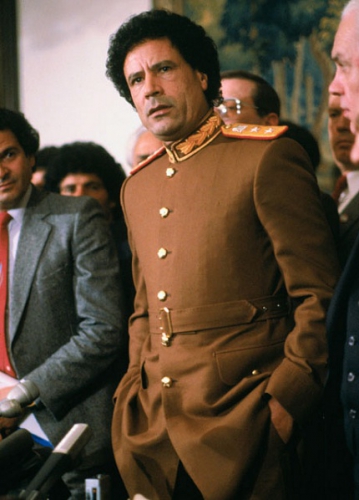 Sur les accusations de terrorisme, des années plus tard, les langues se sont déliées et plusieurs preuves sont que la Libye fut injustement accusée des deux attentats. Mais le pays fut contraint de payer : 200 millions de francs d’indemnités aux familles des victimes françaises de l’UTA et 2,7 milliards de dollars aux familles des victimes de Lockerbie. Un acte souvent brandi comme un aveu de culpabilité. En réalité, la Libye perdait beaucoup de revenus suite aux sanctions qui lui avaient été imposées : 24 milliards de dollars. En payant 2,7 milliards de dollars et en reprenant sa place dans le concert des nations, Tripoli s’inscrivait dans la logique froide de la realpolitik : privilégier ses intérêts. Ce geste de décrispation permit à la Libye de redevenir un Etat fréquentable à une époque où il valait mieux ne pas figurer sur la liste des Etat de l’axe du mal. Parallèlement, ce geste de décrispation permit à la Libye d’attirer massivement des investisseurs étrangers dans son secteur pétrolier et même les dirigeants occidentaux. La lune de miel fut néanmoins de courte durée. En cause : le printemps arabe.
Sur les accusations de terrorisme, des années plus tard, les langues se sont déliées et plusieurs preuves sont que la Libye fut injustement accusée des deux attentats. Mais le pays fut contraint de payer : 200 millions de francs d’indemnités aux familles des victimes françaises de l’UTA et 2,7 milliards de dollars aux familles des victimes de Lockerbie. Un acte souvent brandi comme un aveu de culpabilité. En réalité, la Libye perdait beaucoup de revenus suite aux sanctions qui lui avaient été imposées : 24 milliards de dollars. En payant 2,7 milliards de dollars et en reprenant sa place dans le concert des nations, Tripoli s’inscrivait dans la logique froide de la realpolitik : privilégier ses intérêts. Ce geste de décrispation permit à la Libye de redevenir un Etat fréquentable à une époque où il valait mieux ne pas figurer sur la liste des Etat de l’axe du mal. Parallèlement, ce geste de décrispation permit à la Libye d’attirer massivement des investisseurs étrangers dans son secteur pétrolier et même les dirigeants occidentaux. La lune de miel fut néanmoins de courte durée. En cause : le printemps arabe.
Il est nécessaire de remonter à l’épicentre du mouvement des contestations populaires : la petite ville tunisienne de Sidi Bouzid et son héros malheureux Mohamed Bouazizi, le jeune marchand des quatre-saisons immolé le 17 décembre 2010 après avoir été frappé et humilié par une policière, Fayda Hamdi, selon la version véhiculée. Il fait remarquer que les récits ne collent pas à la réalité. Le jeune homme immolé ne s’appelait pas Mohamed Bouazizi, mais Tarek Bouazizi. Il n’était pas diplômé d’université, il n’avait même pas passé son bac. Sur place, à Sidi Bouzid, la population a déjà fait disparaître les traces d’un jeune homme qui aurait pourtant dû être célébré comme une fierté nationale. Pourquoi ? On peut s’interroger sur la spontanéité des révoltes et l’attitude indolente des forces de sécurités pourtant habituées à réprimer violemment les contestataires du régime. De fil en aiguille,il est important de déconstruire l’histoire convenue du « printemps arabe ». On peut remarquer que, si l’étincelle est partie de la Tunisie profonde, sans que personne ne comprenne vraiment qui étaient les tireurs de ficelles en arrière fond, c’est en Libye et en Syrie que le vrai visage des instigateurs du « printemps arabe » est apparu au grand jour, balayant au passage l’invective de la « théorie du complot ». Ce qui s’est passé en Tunisie et en Egypte non pas d’une colère spontanée des masses populaires, mais l’exécution des plans préparés à l’avance.
Dès 2007, les jeunes tunisiens et Egyptiens avaient reçu une série de formations initiées par le CANVAS (Centre for Applied Non Violence), une organisation basée sur les principes tactiques de Gene Sharp. Il s’agissait d’étendre aux pays du monde arabe les expériences réussies dans les anciens pays communistes où les Etats-Unis avaient fait renverser des présidents alliés de Moscou, derrière les révolutions colorées. Les autorités tunisiennes, égyptiennes et libyennes n’avaient ainsi rien vu venir. Le rôle joué par les Etats-Unis en arrière-plan est si déterminant que l’auteur décide de renommer ces évènements : « PRINTEMPS AMÉRICAIN DANS LE MONDE ARABE » et non « printemps arabe ».
Arrive le tour de la Libye, un pays qui, contrairement à la Tunisie et à l’Egypte, n’entretient pas de coopération militaire avec les Etats-Unis. Kadhafi avait fait fermer les bases militaires américaines et britanniques sur le sol libyen dès 1970. Les hauts gradés libyens ne pouvaient donc pas obtempérer aux consignes de l’extérieur. Par conséquent, contrairement à la Tunisie et à l’Egypte, où les manifestations étaient globalement pacifiques et maîtrisées, en Libye, les manifestations pacifiques sont accompagnées de graves violences armées. Les casernes et les commissariats sont attaqués par des unités commandos particulièrement efficaces au combat. Des canons anti-aériens apparaissent. D’où viennent toutes ces armes et ces combattants particulièrement aguerri ? Dans un premier temps Kadhafi donne l’ordre de ne pas réagir et de laisser s’exprimer la colère populaire. Il adopte des mesures sociales et fait même libérer des prisonniers politiques. Mais, rapidement, il perd le contrôle de vastes régions qui passent sous contrôle des groupes islamistes, alors alliés de circonstance de l’OTAN. Lorsqu’il tente de reprendre le contrôle de la situation, il se heurte à la résolution 1973 du Conseil de sécurité de l'ONU autorisant la mise en place d'une une zone d'exclusion aérienne. Cette résolution, qui ne concernait que Benghazi, sera rapidement violée puisque c’est un déluge de bombes et de missiles qui s’abat sur toute la Libye, ainsi qu’une offensive au sol, jusqu’au renversement du gouvernement libyen, ce que l’ONU n’avait pas autorisé. L’auteur décrit les dernières heures de Kadhafi comme un moment de trahison ultime, une traque. Alors qu’il avait obtenu l’aval de l’OTAN pour quitter le pays et s’installer en Afrique du Sud, son convoi fut saccagé par un missile Hellfire tiré par un drone américain et deux bombes de 200 kg larguées par un mirage français. Il parvint à survivre avec une poignée de fidèles mais tomba entre les mains des miliciens de Misrata. La suite, ce sont les images de lynchage qui feront le tour du monde. C’est aussi le discrédit du principe de « responsabilité de protéger » comme le fut celui de « l’intervention humanitaire en Somalie ».
En effet, « protéger la population libyenne » fut la raison brandie au Conseil de sécurité de l’ONU pour justifier l’intervention des pays de l’OTAN en Libye. Lorsqu’on regarde ce qu’est devenue la Libye, difficile d’obtenir un consensus international en évoquant, à nouveau, « la responsabilité de protéger ». Depuis, à l’ONU, Russes et Chinois bloquent les projets de résolution initiés par les Occidentaux, notamment sur la Syrie, en rappelant le précédent libyen. Barack Obama a reconnu que la Libye est le plus grand regret de sa présidence tandis que les parlementaires britanniques ont étrillé l’ancien président français Nicolas Sarkozy et l’ancien Premier ministre britannique David Cameron dans un rapport sur la guerre en Libye.
« Vous avez voulu la paix, vous avez voulu la liberté, vous voulez le progrès économique. La France, la Grande-Bretagne, l'Europe seront toujours aux côtés du peuple libyen », avait promis le 15 septembre 2011 le président Nicolas Sarkozy à Benghazi devant l'euphorie d’une foule acquise à l’avènement d'une « nouvelle Libye ». Cinq ans plus tard, la Libye s’est littéralement décomposée. Pire, les Libyens qui ont survécu aux bombardements de l’OTAN seront des milliers à mourir lentement pour avoir respiré sans le savoir les microparticules d'uranium volatilisées dans l'air, tandis que nombreux vont donner naissance à des enfants mal formés, sans bras, sans jambes… conséquence des bombes à uranium appauvri larguées sur le pays. L’occasion de rappeler ce qu’était la Libye avant la guerre.
Lorsque débute la crise, le niveau de vie de la population libyenne n'a rien à envier à celui des populations occidentales. C'est le pays qui avait l'indice de développement humain le plus élevé du continent africain. Le PIB/hab était de 13.300 $, soit loin devant l'Argentine, l'Afrique du Sud et le Brésil. La croissance dépassait les 10% et le PIB/hab augmentait de 8,5%. La Jamahiriya était un Etat social où des biens publics étaient mis à la disposition de la population : l'électricité et l'eau à usage domestique étaient gratuites ; tout le monde avait accès à l'eau potable. Les banques libyennes accordaient des prêts sans intérêts ; les libyens ne payaient pratiquement pas d'impôts. La TVA n'existait pas. La dette publique représentait 3,3 % du PIB contre 84,5 % pour un pays comme la France, 88,9 % pour les États-Unis et 225,8 % pour le Japon. Le système public de santé, gratuit, était aux normes européennes, tout comme le système éducatif (le taux d'alphabétisation moyen était de 82,6 %). Les meilleurs étudiants libyens poursuivaient leurs études supérieures à l'étranger en bénéficiant d'une bourse du gouvernement. Les produits d'alimentation pour les familles nombreuses étaient vendus moitié prix sur présentation du livret de famille. Les voitures importées d'Asie et des États-Unis étaient vendues à prix d'usine. Le prix d'un litre d'essence coûtait à peine 8 centimes d'euros. Le pays, en dépit des sanctions qui lui avaient été imposées, avait tout de même réussi à constituer des fonds souverains à hauteur de 200 milliards de dollars placés dans des banques étrangères, occidentales notamment, et gérés par un organisme public, la Libyan Investment Authority (LIA), contrairement aux accusations faisant état d’enrichissement personnel. Peu de dirigeants au monde peuvent revendiquer un bilan pareil.
Par ailleurs, la Libye de Kadhafi fut un solide bouclier contre les vagues migratoires puisque de nombreux migrants sub-sahariens, notamment, choisissaient de s’installer en Libye au lieu de tenter la traversée de la Méditerranée. Et non seulement. Kadhafi fut un bouclier contre la circulation des terroristes islamistes qu’il combattait, bien avant les attentats du 11 septembre 2001. La Libye est le premier pays à avoir lancé, dès 1998, un mandat d'arrêt international contre Ben Laden pour un double assassinat perpétré, en 1994, contre deux fonctionnaires allemands sur le sol libyen. Mais tout au long de la campagne de l’OTAN contre la Libye, et même après, aucune des réalisations susmentionnées n'a été relevée et les populations occidentales n'en savent presque rien. Elles ne sauront jamais que celui qui leur a été présenté par leurs dirigeants et médias comme un méchant dictateur dilapidant les deniers publics de son pays, était en réalité un homme qui a énormément investi dans le bien-être de son peuple et protégé l’Europe des vagues migratoires et des mouvements terroristes.
La Libye est aujourd’hui un pays complètement ruiné. Trois gouvernements et une multitude de groupes terroristes se disputent le contrôle du pays. L'enlèvement du premier ministre Ali Zeidan à Tripoli, le 10 octobre 2013, est un triste exemple du climat chaotique qui règne dans le pays. Les dirigeants de la première heure du CNT ont fui le pays pour se réfugier à l’étranger. Les meurtres et les attentats sont devenus monnaie courante, contraignant des centaines de milliers de Libyens à trouver refuge dans d'autres villes ou dans les pays voisins. Les attentats ainsi que l'escalade des combats se succèdent dans tout le pays. Même le consulat des Etats-Unis à Benghazi a été la cible d'une attaque à l'arme lourde qui a coûté la vie à l'ambassadeur Christopher Stevens, torturé, sodomisé puis assassiné. Les violences et l'insécurité persistante ont poussé la plupart des pays occidentaux à évacuer leurs ressortissants et à fermer leurs représentations diplomatiques.
Tout le monde s'en va, y compris l'ONU et bon nombre d'ONG, relève l’auteur. Plus d'un million de migrants sont arrivés en Europe en 2015, au terme de périples périlleux. L'opération de sauvetage à grande échelle de l'UE a secouru près de 100 000 embarcations de fortune en Méditerranée. Malgré les efforts déployés, au moins 3 000 migrants libyens ont péri en mer. Le trafic de drogue a explosé, faisant de l'ex-Jamahiriya un pays de transit de la drogue, essentiellement à destination d'Europe... Le pays est devenu le nouvel eldorado des groupes intégristes islamistes. Dès le lendemain de la chute de Kadhafi, Al-Qaïda en a profité pour hisser son drapeau au-dessus du palais de justice de Benghazi. AQMI se promène dans le grand sud. Les islamistes d'Ansar al-Sharia se sont implantés à Benghazi et Derna, tandis que l’État islamique / Daesh a profité de l'insécurité permanente dans le pays pour s'y implanter.
Se pose naturellement la question de savoir si la guerre et l’élimination physique de Kadhafi valaient vraiment la peine. L’auteur estime que dans la logique des stratèges occidentaux, la destruction de la Libye et l’élimination de Kadhafi sont, paradoxalement, « une bonne opération ». Les efforts de Kadhafi pour sortir l’Afrique de l’extrême dépendance vis-à-vis de l’Occident constituaient une menace pour des puissances qui prospère sur le sous-développement et la misère des Africains. Une indépendance économique de l’Afrique et quelque chose d’inacceptable comme le rappelle le professeur Maximilian Forte cité par l’auteur : « L'intervention en Libye est aussi une façon d'envoyer un message aux autres États-nations africains (…) qu'il y a des limites dans lesquelles ils doivent opérer ». S'ils se lancent dans un processus de défiance nationaliste et anti-impérialiste, il pourrait y avoir des conséquences qui ne sont plus de l'ordre de l'hypothèse.
Un message glaçant dont on apprécie la froideur en repensant à la menace du président Sarkozy aux chefs d’Etat africains qui envisageaient de se rendre à Tripoli pour proposer une médiation de l’UA[48] : leur avion sera « flingué » !
09:52 Publié dans Géopolitique | Lien permanent | Commentaires (0) | Tags : kadhafi, libye, afrique du nord, méditerranée, afrique, affaires africaines, politique internationale, géopolitique |  |
|  del.icio.us |
del.icio.us |  |
|  Digg |
Digg | ![]() Facebook
Facebook
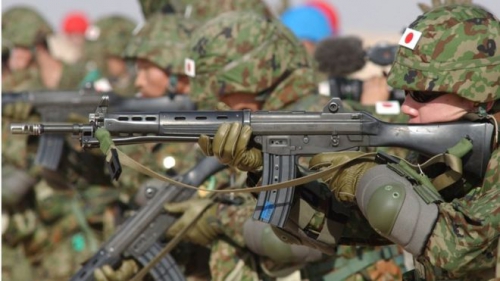
A partir d'aujourd'hui, les forces d'autodéfense nippones se livrent à des exercices pour anticiper un conflit militaire entre les deux rives du détroit de Formose. L’armée japonaise va effectuer un exercice de simulation d’affrontement militaire entre la Chine et Taïwan, avec la participation en tant qu’observateur de l’armée américaine, a selon l’agence de presse Kyodo.
« Aucun déploiement de troupe n’aura lieu et le scénario est celui d’une réponse des Etats-Unis et du Japon à un conflit militaire« , a indiqué Kyodo.
Selon une source du gouvernement japonais, le but de l’exercice est de vérifier comment les membres de l’armée devraient s’acquitter de nouvelles tâches autorisées en vertu de la nouvelle loi japonaise sur la sécurité dans le déclenchement d’une situation considérée comme menaçant sérieusement la paix et la sécurité du pays, a précisé l’agence de presse japonaise.
De son côté, le ministère chinois des affaires étrangères a rappelé à Tokyo que « la question de Taïwan est une affaire interne de la Chine et nous espérons que le Japon sera très prudent dans ses paroles et ses actes (…) et ne fera rien qui compromettrait la paix régionale et la stabilité« .
« Je pense que cela montre qu’un monde stable est la dernière chose que certains veulent au Japon », a considéré la porte-parole du ministère Hua Chunying. Cette annonce vient compliquer un peu plus la situation.
L’armée taïwanaise a également réalisé des exercices militaires en vue d’une guerre contre la Chine continentale, alors que les relations entre les deux rives de Taïwan restent difficile.
Cet exercice japonais, en présence d’observateur américain, n’apaise en rien les craintes de Beijing, qui doit composer avec une nouvelle administration américaine, ayant déjà rompu avec quatre décennies de relations diplomatique, en prenant un appel téléphonique de la dirigeante taïwanaise Tsaï Ing-wen. Or selon la a source du gouvernement japonais, l’exercice était prévu avant que Donald Trump ne prenne ses fonctions, le 20 janvier.
D’après le reportage de l’agence japonaise, les forces d’autodéfense du Japon (l’armée) feront cet exercice simulé du lundi 23 au vendredi 27 janvier 2017, en présence de militaires américains y participant en tant qu’observateur.
C’est un scénario qui depuis quelques semaines s’invite dans les discussions d’experts et de diplomates : un affrontement militaire entre la Chine et Taïwan. Le Japon vient mettre son grain de sel dans le débat en menant, à partir d’aujourd’hui et jusqu’à la fin de la semaine, des exercices de simulation en cas de conflit entre les deux rives du détroit de Formose. Aucun déploiement de troupes n’aura lieu. Tokyo entend vérifier comment, en cas de clash, les forces d’autodéfense nippones (SDF) effectueraient leurs nouvelles tâches autorisées par la loi de sécurité entrée en vigueur en mars dernier.
Jusqu’à présent, les SDF japonaises n’avaient pas pour mission d’intervenir en dehors des frontières de l’archipel. Si elles l’ont fait par le passé, à de très rares exceptions, c’était uniquement pour des motifs humanitaires. Dorénavant, au nom du principe de «l’autodéfense collective», Tokyo peut fournir un soutien logistique à d’autres forces armées, même si le Japon n’est pas directement menacé.
Coup de fil et coup de sang
En novembre, les SDF et les GI’s de la marine américaine ont d’ailleurs effectué leurs premiers exercices conjoints. Cette semaine, des observateurs américains assisteront aux simulations japonaises qui sonnent comme une nouveauté. Jusqu’à présent, ces entraînements concernaient essentiellement le Japon.
Ainsi, il était fréquent que le ministère de la Défense communique sur des opérations visant à reconquérir une île ou à la défendre contre un agresseur. Le nom était rarement mentionné mais tout le monde comprenait que le Japon surveillait de très près l’évolution autour de l’archipel des Senkaku, nationalisé par Tokyo en 2012, que la Chine revendique en l’appelant «les îlots Diaoyu». Cette fois, les Japonais quittent donc leurs eaux territoriales pour croiser dans des mers chargées en revendications.
L’exercice simulé intervient au moment où les relations entre la Chine et Taiwan connaissent un nouveau pic de tensions. L’échange téléphonique en décembre du président élu Donald Trump avec la présidente taïwanaise Tsai Ing-wen a alarmé Pékin. En prenant l’appel de Tsai Ing-wen, Trump a rompu avec près de quatre décennies de politique américaine qui respectait le principe de la «Chine unique» selon lequel tout Etat entretenant des relations diplomatiques avec Pékin ne peut en avoir simultanément avec Taïpei.
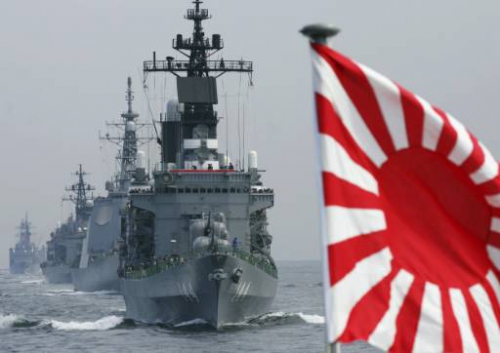
Depuis 1949 et l’installation sur l’île des nationalistes de Tchang Kaï-chek, les Chinois considèrent Taiwan – indépendante de facto – comme une province renégate qui doit repasser, selon eux, sous le contrôle du continent. Depuis l’élection de Tsai Ing-wen l’année dernière, la Chine n’a cessé les mises en garde et les pressions sur la première présidente élue dans la seule démocratie du monde chinois. Depuis sa victoire, Tsai Ing-wen a appelé le régime chinois à «respecter l’intégrité de l’île». En septembre 1954, alors même que l'acte final de la conférence de Genève allait régler la guerre d'Indochine, Mao Zedong intimait à Zhou Enlai l'ordre de mettre au premier plan la «libération» de Taiwan: «Nous avons eu tort de ne pas nous consacrer à la tâche de libérer Taiwan juste après le cessez-le-feu en Corée; si nous tergiversons encore, nous commettrons une sérieuse erreur politique.» De novembre 1954 à mai 1955, un déluge d'obus s'abattit sur les petites îles tenues par le régime nationaliste, et l'armée populaire de libération s'empara des îles Dachen au nez et à la barbe de l'armada américaine dépêchée dans le détroit de Taiwan. Les Etats-Unis finirent toutefois, en mars 1955, par menacer publiquement d'employer des armes nucléaires tactiques contre la Chine en cas d'agression ultérieure, et notamment contre les îles de Quemoy et de Matsu, beaucoup mieux défendues. En avril 1955, la Chine mit fin à la crise quand Zhou Enlai, depuis le sommet afro-asiatique de Bandung, proclama son désir de paix avec les Etats-Unis.
En août 1958, vingt-quatre heures après que le président Eisenhower eut proposé à Nikita Khrouchtchev le premier sommet soviéto-américain de la guerre froide, et une réduction des armements nucléaires, Mao Zedong déclenchait une deuxième crise dans le détroit de Formose: à nouveau, une pluie d'obus s'abattit contre les petites îles fortifiées détenues par les nationalistes, provoquant la mobilisation de la VIIe Flotte dans le détroit. Après quelques semaines critiques pendant lesquelles les îles furent en danger sérieux, les Américains réussirent à établir une ligne de ravitaillement à Quemoy, y débarquant publiquement, entre autres, des mortiers susceptibles de lancer des charges nucléaires tactiques. Dès lors, l'offensive chinoise perdait toute chance de réussir: mais les bombardements continuèrent de façon intermittente pendant plus d'une décennie.
Ces précédents doivent aujourd'hui être examinés avec soin. D'abord, dans les deux cas, c'est à cause d'une détente internationale que la Chine populaire passa à l'offensive contre la Chine nationaliste, et le monde extérieur fut totalement surpris. En 1954, Mao ne pouvait supporter de voir la question de Taiwan sombrer dans l'oubli, alors que d'autres conflits asiatiques de la guerre froide trouvaient une solution. En 1958, la crise de Quemoy et de Matsu lui permettait de s'opposer à la coexistence pacifique qui s'amorçait entre les deux Grands.
Au début du mois, la Chine a dépêché son unique porte-avions, le Liaoning, dans le détroit de Taiwan, déclenchant l’envoi d’avions de reconnaissance par Taiwan. Il y a vingt ans, les deux rives du détroit avaient traversé une grave crise. Pékin avait tiré plusieurs salves de missiles dans les eaux territoriales taïwanaises au moment où le gouvernement de Lee Teng-hui multipliait les déclarations pro-démocratiques et que le pays s’apprêtait à voter. Alliés de Taïwan, les Etats-Unis avaient alors expédié une partie de leur flotte dans les eaux de la mer de Chine.
Aujourd’hui la Chine de Xi Jinping affirme de plus en plus son hégémonie sur les mers de la région. Et elle entend «défendre ses intérêts fondamentaux dans le cadre des affaires intérieures de la Chine», comme l’a rappelé vendredi Hua Chunying, la porte-parole du ministère chinois des Affaires étrangères qui réagissait à l’annonce des exercices simulés japonais. «Pour certaines personnes au Japon, il semble que la paix est la dernière chose qu’elles souhaitent. […] Nous espérons que le Japon pourra mesurer ses paroles et ses actes sur les questions liées à Taïwan […] et éviter d’envoyer un signal erroné aux forces indépendantes de Taiwan.»
De son côté, l’archipel du nationaliste Shinzo Abe a musclé sa diplomatie et armé sa défense depuis quatre ans. Tout en se posant en «contributeur proactif pour la paix», le Japon s’est montré plus présent dans le Pacifique, multipliant les discours ainsi que les aides techniques et financières aux pays de la région en butte à l’hégémonie chinoise. Avec Taiwan, quatrième partenaire commercial du Japon, Tokyo a renforcé ses relations.
Avant même son élection, Tsai Ing-wen s’était rendue en visite dans l’archipel au grand dam de Pékin. Fin décembre, un parlementaire japonais membre du parti libéral démocrate, Keisuke Suzuki, défendait des liens plus forts entre les deux archipels et l’idée d’une coopération militaire plus étroite. «L’existence d’un Taiwan libre est fondamentale pour la sécurité du Japon. A partir du moment où Taiwan subit trop de fortes pressions de la Chine continentale, c’est aussi un problème pour la sécurité nationale du Japon lui-même.»
Taiwan s’est lancé dans un programme de développement de son arsenal militaire, notamment de sous-marin. Les Etats-Unis suggèrent dorénavant à Taïpei d’augmenter ses budgets de défense. Il y a quelques jours, les troupes taïwanaises ont organisé, elles aussi, des exercices grandeur nature pour se préparer à une attaque chinoise.
23:50 Publié dans Actualité, Géopolitique | Lien permanent | Commentaires (0) | Tags : actualité, politique internationale, géopolitique, japon, chine, taîwan, océan pacifique, asie, affaires asiatiques |  |
|  del.icio.us |
del.icio.us |  |
|  Digg |
Digg | ![]() Facebook
Facebook

Illegale NAVO oorlog tegen Servië zorgden voor creatie moslimstaten in Bosnië en Kosovo, die grote rol spelen bij migranteninvasie van Europa
De burgeroorlog in Joegoslavië in de jaren ’90 werd destijds beëindigd door illegale NAVO bombardementen op het orthodox christelijke Servië. Onder leiding van president Bill Clinton werd het land opgesplitst en werden twee grote moslim enclaves gecreëerd, in Bosnië-Herzegovina en in Kosovo, dat altijd bij Servië had gehoord. De Serven hebben de feitelijke bezetting van een deel van hun grondgebied nooit geaccepteerd. Een week voordat de Verenigde Staten een nieuwe president kregen, die als eerste ooit in zijn inauguratie toespraak het islamitische terrorisme bij de naam noemde –en beloofde dit compleet te zullen vernietigen-, stuurde het land een trein met daarop de levensgrote teksten ‘Kosovo is Servisch’ geschilderd richting de grens. Zo’n 60.000 Servische troepen staan klaar Kosovo te bevrijden.
De trein staat al sinds vorige week vrijdag stil, omdat de autoriteiten in Kosovo de reis over de spoorlijn tussen Belgrado en Mitrovica, een Servisch stadje in Kosovo, blokkeren. 60.000 Servische troepen, inclusief pantserwagens, artillerie en luchtmachteenheden, zijn gereed om in te grijpen. Kosovo kan daar slechts zo’n 6000 man tegenover stellen.
De Servische president Tomislav Nikolic dreigde afgelopen week dat ‘als er Serviërs worden gedood, wij ons leger naar Kosovo sturen.’ 19 jaar geleden werd Servië door Amerikaanse bombardementen op Belgrado gedwongen te capituleren, en een overeenkomst te tekenen om de oorlog met de opstandelingen in Kosovo te beëindigen. Het Westen erkende vervolgens de onafhankelijkheid van Kosovo, dat al snel berucht werd als een moslim maffiastaat. Rusland en China beschouwen Kosovo echter nog steeds als een integraal deel van Servië.
Door NAVO gecreëerde moslimstaten geven ruimte voor migranteninvasie
De Kosovo oorlog was het gevolg van het conflict tussen aan de ene kant het christelijke Servië en Kroatië, en aan de andere kant het overwegend islamitische Bosnië. Die oorlog duurde van 1992 tot 1995, en werd door Amerikaanse/NAVO interventie beëindigd. President Clinton dwong de Serven de Dayton akkoorden te ondertekenen, en Bosnië over te geven aan moslim heerschappij. Daarmee werden de eerste onafhankelijke islamitische enclaves in het zuidoosten van Europa gecreëerd, ten koste van orthodox-christelijk gebied, dat beschermd werd (en wordt) door Rusland.
Het pro-islamitische, anti-christelijke beleid op de Balkan werd later voortgezet door president Obama en de Duitse bondskanselier Angela Merkel, en wordt beschouwd als één van de doorslaggevende factoren die de moslim migranteninvasie van Europa mogelijk hebben gemaakt. Vier islamitische staten, te weten Turkije, Bosnië, Kosovo en Albanië, zetten gewillig hun poorten open voor enorme aantallen moslims uit het Midden Oosten en Afrika, en stuurden deze vervolgens linea recta door naar centraal Europa.
Servische troepen klaar om in te grijpen
De Servische trein markeerde het einde van het Obama tijdperk, en onderstreepte het feit dat de Serven het illegaal afpakken van Kosovo nooit hebben geaccepteerd. De Serven zouden van plan zijn de trein een dezer dagen verder te laten rijden. Als deze dan wordt aangevallen door Kosovaarse troepen, zal het Servische leger ingrijpen. Maar zelfs als zo’n aanval er niet komt, dan is de kans nog steeds aanzienlijk dat Servië één van president Clintons ‘trotse’ prestaties ongedaan gaat maken, en Kosovo bevrijdt van de islamitische bezetting.
In het centrum van Pristina staat een standbeeld van Bill Clinton, als dank voor het feit dat hij de moslims een eigen staat in Kosovo heeft gegeven. De gisteren ingezworen president Donald Trump staat en echter totaal anders tegenover de islam, en bezwoer als eerste president ooit in zijn inauguratietoespraak het islamitische terrorisme totaal ze zullen vernietigen.
Russische bijstand voor Servië?
Op zijn eerste werkdag vindt Trump op zijn bureau in de Oval Office een urgente brief van de Kosovaarse minister van Buitenlandse Zaken Enver Hoxhaj, waarin deze vraagt om assistentie tegen Servische ‘agressie’. Een vergelijkbaar SOS in 1998 leverde de interventie van een NAVO elitemacht op, die overigens voornamelijk uit Britse eenheden bestond.
In 2017 kan Kosovo de hulp van Europese regeringen echter vergeten, ook van Frankrijk en Duitsland, landen die zich altijd hard hebben gemaakt voor de islamitische zaak op de Balkan. Dat heeft niet alleen met de komst van Trump te maken, maar ook met mogelijke Russische bijstand voor Servië. Op 12 juni 1999 stuurde de toenmalige president Boris Yeltsin al eens een Russisch contingent naar het vliegveld van Pristina, om te proberen de overname van Kosovo door het Westen te stoppen.
Trumps antwoord aan ministerie Hoxhaj zal volgens Israëlische inlichtingenspecialisten ‘een belangrijk inzicht geven in de geheime overeenkomsten die Trump en Putin met elkaar sloten voor samenwerking in de oorlog tegen islamistische terreur, en het voorkomen van verdere moslim expansie in Europa.’
Xander
(1) DEBKA
23:22 Publié dans Actualité, Affaires européennes | Lien permanent | Commentaires (0) | Tags : politique internationale, actualité, europe, affaires européennes, serbie, kosovo, balkans, géopolitique |  |
|  del.icio.us |
del.icio.us |  |
|  Digg |
Digg | ![]() Facebook
Facebook
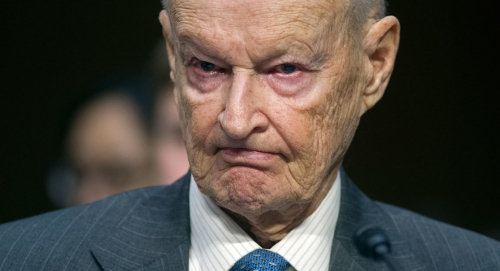
Ex: http://electrosphere.blogspot.com
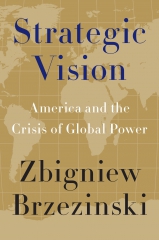 « Il est indispensable que l’Amérique contre toute tentative de restauration impériale au centre de l’Eurasie […] Le choix européen est la seule perspective géostratégique réaliste qui permettra à la Russie de retrouver un rôle international et les ressources nécessaires pour engager sa modernisation. Par Europe, nous entendons l'ensemble géopolitique uni par le lien transatlantique et engagé dans l'élargissement de l'Union européenne et de l'OTAN [...] Telle est l'alliance qui profitera à la Russie et lui évitera de s'enfoncer dans un isolement géopolitique néfaste [...] Du point de vue américain. la Russie paraît vouée à devenir un problème : si sa faiblesse exclut de la considérer comme un partenaire, les forces qu'elle conserve ne nécessitent pas l'application de soins d'urgence. [...] Même si une alliance stratégique solide de la Russie avec la Chine ou avec l'Iran a peu de chances de se concrétiser, l'Amérique doit éviter de détourner Moscou de son meilleur choix géopolitique [...] Par ailleurs, les Chinois se montrent sensibles aux réserves doctrinales que les États-Unis émettent à l'égard de leur régime national. La Chine considère donc les Etats-Unis comme le principal obstacle à sa quête d'une prééminence mondiale, mais égaIement à l'affirmation de sa prédominance globale. Dans ces conditions, la collision entre la Chine et les Etats-Unis est-elle inévitable? [...] Quelle forme concrète et acceptable du point de vue américain doit revêtir la montée de la Chine en tant que puissance régionale dominante et quelles limites doit-on fixer à ses aspirations au statut de puissance globale? [...] En réalité, si la Chine s'oppose aux États-Unis, ce n'est pas tant à cause des actions de ces derniers qu'en raison de la position qu'ils occupent aujourd'hui. La Chine considère que les Etats-Unis exercent une hégémonie sur le monde et que leur présence même dans la région, qui repose sur la domination du Japon, contribue à restreindre l'influence chinoise [...] Aussi, en raison de ce qu'ils sont et de leur simple présence, les Etats-Unis deviennent involontairement l'adversaire de la Chine au lieu d'être leur allié naturel. »
« Il est indispensable que l’Amérique contre toute tentative de restauration impériale au centre de l’Eurasie […] Le choix européen est la seule perspective géostratégique réaliste qui permettra à la Russie de retrouver un rôle international et les ressources nécessaires pour engager sa modernisation. Par Europe, nous entendons l'ensemble géopolitique uni par le lien transatlantique et engagé dans l'élargissement de l'Union européenne et de l'OTAN [...] Telle est l'alliance qui profitera à la Russie et lui évitera de s'enfoncer dans un isolement géopolitique néfaste [...] Du point de vue américain. la Russie paraît vouée à devenir un problème : si sa faiblesse exclut de la considérer comme un partenaire, les forces qu'elle conserve ne nécessitent pas l'application de soins d'urgence. [...] Même si une alliance stratégique solide de la Russie avec la Chine ou avec l'Iran a peu de chances de se concrétiser, l'Amérique doit éviter de détourner Moscou de son meilleur choix géopolitique [...] Par ailleurs, les Chinois se montrent sensibles aux réserves doctrinales que les États-Unis émettent à l'égard de leur régime national. La Chine considère donc les Etats-Unis comme le principal obstacle à sa quête d'une prééminence mondiale, mais égaIement à l'affirmation de sa prédominance globale. Dans ces conditions, la collision entre la Chine et les Etats-Unis est-elle inévitable? [...] Quelle forme concrète et acceptable du point de vue américain doit revêtir la montée de la Chine en tant que puissance régionale dominante et quelles limites doit-on fixer à ses aspirations au statut de puissance globale? [...] En réalité, si la Chine s'oppose aux États-Unis, ce n'est pas tant à cause des actions de ces derniers qu'en raison de la position qu'ils occupent aujourd'hui. La Chine considère que les Etats-Unis exercent une hégémonie sur le monde et que leur présence même dans la région, qui repose sur la domination du Japon, contribue à restreindre l'influence chinoise [...] Aussi, en raison de ce qu'ils sont et de leur simple présence, les Etats-Unis deviennent involontairement l'adversaire de la Chine au lieu d'être leur allié naturel. »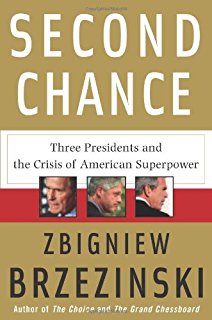 Muni d'une grille de lecture américano-centrée et donc quelque peu hérétique pour l'observateur extérieur, le théoricien de 88 ans dresse ses cinq vérités essentielles :
Muni d'une grille de lecture américano-centrée et donc quelque peu hérétique pour l'observateur extérieur, le théoricien de 88 ans dresse ses cinq vérités essentielles :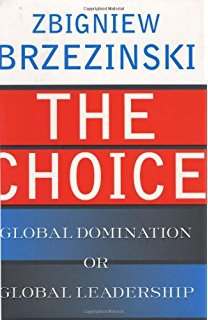 « L’alternative à une vision constructive, et spécialement la recherche d’une issue militaire et idéologique imposée unilatéralement ne peut que prolonger inanité et autodestruction. Pour l’Amérique, la conséquence peut être un conflit durable, de la lassitude et même possiblement un retrait démoralisant sur un isolationnisme pré-XXème siècle. Pour la Russie, cela pourrait signifier une défaite majeure, augmentant la probabilité d’une subordination, d’une manière ou d’une autre, à la prédominance chinoise. Pour la Chine, cela peut annoncer une guerre, non seulement avec les Etats-Unis mais aussi, peut-être séparément, avec le Japon ou l’Inde, ou les deux. Et, dans tous les cas, une phase longue de guerres ethniques, quasi religieuses, au travers de tout le Moyen-Orient avec un fanatisme auto-justifié qui engendrerait des effusions de sang dans et hors de la région, et une cruauté croissante partout. »
« L’alternative à une vision constructive, et spécialement la recherche d’une issue militaire et idéologique imposée unilatéralement ne peut que prolonger inanité et autodestruction. Pour l’Amérique, la conséquence peut être un conflit durable, de la lassitude et même possiblement un retrait démoralisant sur un isolationnisme pré-XXème siècle. Pour la Russie, cela pourrait signifier une défaite majeure, augmentant la probabilité d’une subordination, d’une manière ou d’une autre, à la prédominance chinoise. Pour la Chine, cela peut annoncer une guerre, non seulement avec les Etats-Unis mais aussi, peut-être séparément, avec le Japon ou l’Inde, ou les deux. Et, dans tous les cas, une phase longue de guerres ethniques, quasi religieuses, au travers de tout le Moyen-Orient avec un fanatisme auto-justifié qui engendrerait des effusions de sang dans et hors de la région, et une cruauté croissante partout. »
23:55 Publié dans Actualité, Géopolitique | Lien permanent | Commentaires (0) | Tags : actualité, géopolitique, politique internationale, brzezinski, zbig, stratégie, stratégistes américains, géostratégie, états-unis |  |
|  del.icio.us |
del.icio.us |  |
|  Digg |
Digg | ![]() Facebook
Facebook
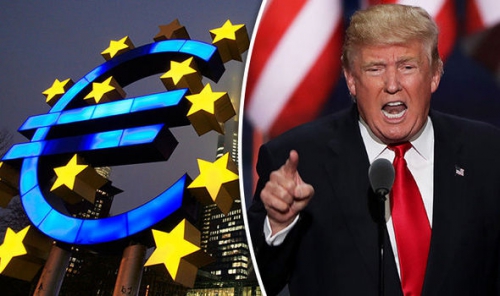
par Jean-Paul Baquiast
Ex: http://www.europesolidaire.eu
Trump, dès son discours d'investiture, a confirmé qu'il rechercherait une détente avec Moscou. La perspective de celle-ci obligera les gouvernements européens à faire un choix crucial: suivre à nouveau l'exemple de Washington et se rapprocher de Moscou, alors que la diabolisation de la Russie, et plus récemment de Vladimir Poutine était le fondement même de leur action internationale - ou poursuivre seuls, avec des moyens de défense quasi inexistants, une opposition à la Russie qui pourrait déboucher sur des conflits militaires locaux, notamment à la frontière euro-russe.
Dans le domaine économique, il en sera de même. Les Européens ne pourront plus compter sur l'aide des dollars américains et des multinationales basées à Wall Street, pour satisfaire à leur place et à crédit les besoins des populations. Ils devront reprendre une politique d'investissement en propre, qu'ils devront nécessairement financer par d'importants sacrifices, notamment au plan fiscal. Dans le cadre de l'America First, toutes les possibilités industrielles et financières américaines seront consacrées au développement de l'Amérique.
Mais l'opinion publique et les partis politiques européens seront-ils capables en quelques mois d'effectuer ce changement de cap radical? Manifestement, l'exemple français n'est pas encourageant. La grande majorité des candidats dits de gouvernement n'ont rien compris à ce qui se passe. Les débats au sein des primaires socialistes ont été particulièrement scandaleux. Tous n'avaient qu'à la bouche le respect des consignes de Bruxelles en ce qui concerte la limitation de la dette et de la fiscalité. Tous par ailleurs mentionnaient la nécessité de durcir militairement le ton à l'égard de Poutine.
Dans la droite de gouvernement, il en a été à peu près de même, le candidat Fillon ayant à peine osé parler d'un rapprochement avec Poutine. En ce qui concerne l'extrême-droite du Front National, Marine Le Pen n'a toujours pas précisé de quelle façon elle tiendrait compte de la nouvelle politique américaine. On peut craindre que la peur d'être accusée de « populisme » l'empêche de prendre clairement position.
Il en sera très probablement de même en Hollande et en Allemagne. Ainsi l'Europe, face au tourbillon Trump, se prépare-t-elle plus que jamais au rôle peu glorieux de feuille morte emportée par le vent.
20:18 Publié dans Actualité, Affaires européennes | Lien permanent | Commentaires (0) | Tags : élections européennes, actualité, europe, union européenne, affaires eruopéennes, états-unis, donald trump, politique internationale |  |
|  del.icio.us |
del.icio.us |  |
|  Digg |
Digg | ![]() Facebook
Facebook

par Thomas Ferrier
Ex: http://thomasferrier.hautetfort.com
L’élection de l’isolationniste revendiqué Donald Trump à la présidence des USA est une excellente nouvelle pour tous les vrais défenseurs de l’Europe. La pérennité de l’OTAN, organisation atlantiste destinée à empêcher toute émergence d’une Europe de la défense, toute diplomatie européenne indépendante et notamment en faveur d’un rapprochement avec la Russie, est en question. C’est l’occasion de pouvoir s’en émanciper en œuvrant pour bâtir enfin l’armée européenne. Voici quelques propositions en ce sens du Parti des Européens.
1- Dénoncer le traité fondateur de l’OTAN (1949), ce qui implique le départ de tous les pays européens de cette organisation.
2- Construire une armée européenne regroupant sous un commandement intégré (unique) l’ensemble des armées des 28 états membres de l’Union Européenne, en supposant que le Royaume-Uni renoncera en définitive à mettre réellement en œuvre le brexit.
3- Créer un budget militaire européen, correspondant à 3% du budget de chaque état membre de l’Union Européenne, afin de la doter des crédits nécessaires à sa mise en place et d’investir dans du matériel nouveau ainsi que dans la recherche et le développement de nouvelles technologies dans le domaine de l’armement de pointe. Soulignons que le budget allemand consacré à la défense n’est actuellement que de 1,16%, ce qui est dérisoire, et que le budget cumulé pour toute l’Europe, Russie comprise, correspond à 30% environ du budget américain dédié.
4- Établir une alliance stratégique entre l’Union Européenne et la Russie, un partenariat qui présuppose de notre part des gestes forts à l’égard d’une puissance européenne, qu’est la Russie, qui s’estime menacée à ses frontières. Cela passe par l’abandon des sanctions économiques à l’égard de la Russie, la reconnaissance de l’annexion de la Crimée par la Russie et la suppression des visas de l’Union Européenne pour les citoyens russes. En échange, Kaliningrad serait considéré comme un espace ouvert, démilitarisé. En outre, afin de rassurer les pays baltes en préservant leur identité, la Russie inciterait la minorité russe installée en Lettonie et Estonie à privilégier une réinstallation en Russie même.
La création d’une armée européenne, qui reprendrait là où a été arrêtée en 1954 la CED (Communauté européenne de défense), serait une avancée significative en faveur d’une Europe unie. Mais il est évident que dans le cadre de l’Union Européenne actuelle, rien ne pourra être fait. En outre, il n’a rien de plus souverain que la défense. L’idée même d’armée européenne implique celle d’Etat européen unitaire, que nous prônons par ailleurs. Ceux qui, comme Angela Merkel, annoncent des avancées en matière de défense, mentent outrageusement.
Thomas FERRIER (Le Parti des Européens)
19:21 Publié dans Actualité, Affaires européennes, Défense, Militaria | Lien permanent | Commentaires (0) | Tags : défense, défense européenne, actualité, europe, affaires européennes, armée européenne |  |
|  del.icio.us |
del.icio.us |  |
|  Digg |
Digg | ![]() Facebook
Facebook
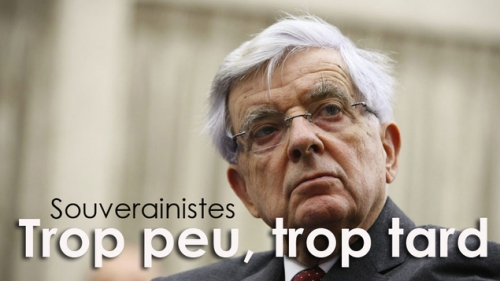
par Thomas Ferrier
Ex: http://thomasferrier.hautetfort.com
Précisons en premier lieu que les principaux responsables du succès du souverainisme et surtout du populisme en Europe sont à la fois les chefs d’état et de gouvernement, à l’exception de certains de ceux composant le groupe de Visegrad dont Viktor Orban, et les dirigeants officiels de l’actuelle Union Européenne, à l’instar de Juncker et de Schulz, choisis par consensus par les 28 gouvernements pour incarner l’organisation, choisis généralement parce qu’ils ne leur feront aucune ombre. C’est ainsi que François Hollande a imposé Pierre Moscovici à la commission de Bruxelles. Prétendre que les commissaires européens décideraient de notre avenir, alors qu’ils ne sont que des « missi dominici », ou même qu’ils seraient à la tête d’une Europe fédérale, alors qu’ils sont nommés par les Etats, serait mentir. Mais leur médiocrité, qui cache leur impuissance, insupporte à juste titre les Européens.
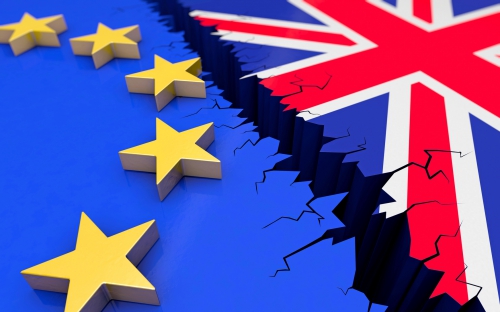
Le brexit, une non solution.
Le référendum organisé par David Cameron sur le brexit, pari insensé pour rassurer son aile droite, logique absurde puisqu’il prônait le non à la question qu’il proposait, a abouti à la décision d’une majorité de Britanniques de quitter l’Union Européenne. Il est étonnant de voir les dirigeants de l’Union Européenne, qui avaient pourtant contraint les Irlandais à voter à nouveau après leur premier refus du traité de Lisbonne, accepter sans discuter ce résultat. Alors même qu’au Royaume-Uni certaines voix s’élèvent pour exiger un nouveau vote, aucun responsable de l’UE n’a fait de même.
Or le brexit est le résultat d’une conjonction de mensonges et d’opportunisme. Même si les anti-brexit ont menti en annonçant un véritable chaos si le oui au brexit l’emportait, ce qui n’est manifestement pas le cas, mais il est vrai que le brexit réel n’aura pas lieu avant plusieurs années, les promoteurs du brexit ont également menti, et l’ont même reconnu, à l’instar de Nigel Farage qui désormais a des ambitions américaines. Boris Johnson, qu’on découvre désormais en promoteur zélé d’une régularisation massive des immigrés clandestins, n’a défendu le brexit que pour s’opposer à Cameron. Son ralliement opportuniste aura sans doute été décisif quant au résultat final.
Les pro-brexit ont surtout exploité à fond le refus de l’immigration des Britanniques, mais là encore en cachant la vérité. Ils ont oublié de dire que le Royaume-Uni n’était pas dans Schengen, ne faisait pas partie non plus de la zone euro, et que si l’immigration européenne notamment polonaise existe, elle n’est en rien un problème, à la différence de l’immigration post-coloniale, notamment musulmane, que les Britanniques ne doivent qu’à leur seul gouvernement « souverain ». En permanence, Farage et les autres ont entretenu l’ambiguïté entre immigration européenne et immigration non-européenne. En réalité, la seconde que les Britanniques refusent va continuer avec Theresa May alors que la première risque bien de se tarir. Au final, le brexit aggravera les flux migratoires issus du Commonwealth.
Quant à Theresa May, dont Marine Le Pen a fait récemment encore l’éloge, elle était connue pour des déclarations ambiguës sur la sharia qui serait selon elle compatible avec le droit britannique, et avait annoncé être opposée au brexit. Devenue premier ministre, elle est désormais en faveur d’un brexit dur (hard brexit). Ce retournement de veste montre le peu de sincérité dont elle témoigne.
Le Royaume-Uni quittera peut-être l’Union Européenne mais aucun de ses problèmes n’en sera résolu, bien au contraire. Son alignement sur les USA sera complet. Au nom d’une souveraineté fantasmée et d’une indépendance factice, le Royaume-Uni restera le 51ème état américain et la « substitution de peuplement » contre laquelle les Britanniques ont voté continuera.
Marine Le Pen présidente en 2017.
Incontestablement le Front National a progressé depuis l’arrivée à la direction du FN de Marine Le Pen. Il est passé en quelques années de 15 à 25% des voix. Le plafond de verre a donc été relevé de dix points, mais on est très loin du compte pour espérer gagner une élection présidentielle. La stratégie de dédiabolisation a globalement échoué puisque le FN reste infréquentable aux yeux d’une majorité de Français. Les dernières élections régionales, qui auraient dû logiquement amener le FN à diriger au moins deux régions, ont fini par un fiasco, même dans le Nord et en Provence.
Marine Le Pen sera sans doute, sauf surprise, au second tour des présidentielles, malgré une campagne maladroite, répétant les mêmes erreurs que son père en 2007 en pire. Mais elle n’a aucune chance au second tour de gagner, contre tous les candidats importants, sans doute même contre Mélenchon, qui saurait alors rappeler qu’il avait été sénateur socialiste.
Et quand bien même par je ne sais quel miracle elle gagnerait, elle serait incapable d’avoir une majorité parlementaire à l’assemblée, ce qui serait aussi d’ailleurs un problème pour Macron. Ses candidats ne sont pas implantés, sauf exceptions, et son entêtement à respecter la parité l’amène à proposer des candidates féminines inexpérimentées. Elle a perdu beaucoup de militants suite aux épurations successives et à la main mise politique de l’appareil par Florian Philippot et ses partisans souverainistes et donc anti-identitaires.
Si elle était élue présidente, ce qui est hautement invraisemblable, et sans majorité à l’assemblée, elle serait donc contrainte à la démission ou à servir de potiche pendant cinq ans. Quant à son chantage consistant à exiger que l’Union Européenne « rende sa liberté à la France » sous peine d’un référendum sur le « frexit » qui en cas de victoire reviendrait au même, là encore il faudrait une majorité. En effet, le président ne peut convoquer de référendum qu’à l’issue d’une proposition du premier ministre. Si celui-ci n’est pas de sa couleur politique, et il ne le serait pas, alors elle ne pourrait même pas le proposer.
En clair, 2017 démontrera sans doute une progression du Front National, et un second tour moins déshonorant que celui de son père en 2002, mais ne sera pas l’année de sa victoire. Elle ne sera pas élue. Et l’élection de Trump, qui était candidat quand même du parti républicain, ou la victoire du brexit, annoncé gagnant des semaines avant le vote, sont sans rapport avec l’élection présidentielle française. Après tout, même Norbert Hofer (FPÖ) en Autriche n’a pas été élu. Or le programme anti-européen de Marine Le Pen est anxiogène pour beaucoup d’électeurs. Le vote FN reste fondamentalement protestataire, et si la protestation est très élevée, c’est parce que la situation de notre pays est très grave.
De l’article 50 du traité de Lisbonne.
C’est le point phare du candidat François Asselineau (UPR). Il accuse Marine Le Pen et Nicolas Dupont-Aignan de proposer une autre Europe, alors que lui ne veut d’aucune Europe. Pour lui, la France doit invoquer l’article 50 du traité de Lisbonne pour quitter l’Union Européenne. Il lui faudrait déjà obtenir les 500 parrainages de maires, alors que le système a été renforcé. En effet, c’est le maire qui désormais envoie son dossier de parrainage directement au conseil constitutionnel, de manière publique, et non l’élu qui apporte ces 500 signatures. Cela change tout. Les candidats « baroques » n’ont donc aucune chance d’être réellement présents au premier tour. Asselineau lui-même est absent de tous les sondages. Ses chances d’être candidat sont très faibles, ses chances d’être élus sont nulles.
Quant à l’article 50 lui-même, il démontre que l’Union Européenne n’est pas une structure politique digne de ce nom, et encore moins un Etat. L’existence de cet article est d’ailleurs étonnante. Il n’y a pas d’article dans la constitution française qui autoriserait la Bretagne ou la Corse à devenir indépendantes. Mais on peut quitter l’Union Européenne. Difficile alors de la qualifier de totalitaire.
Autres mythes contradictoires.
Enfin, l’Union Européenne est qualifiée et par les mêmes aussi bien de nouvelle URSS, accusation surprenante venant de ceux qui par ailleurs la dénoncent comme ultra-libérale, en sachant que les communistes sont d’ailleurs plutôt hostiles à l’UE, que de IVème Reich, l’Union Européenne étant alors qualifiée de raciste par ceux-là même qui lui reprochent son laxisme migratoire.
Quant à l’euro, les souverainistes exigent de lui ce qu’ils n’exigent d’aucune autre monnaie. Ils veulent qu’il corresponde à une mythique « zone monétaire optimale » comme si le dollar ou le rouble, sans parler du yuan, disposaient eux aussi d’une telle zone, et comme si l’ancien franc en disposait aussi. Que par souverainisme ils soient opposés par principe à l’idée de monnaie européenne, on peut le concevoir. Mais alors pourquoi user d’arguments pseudo-économiques ? Il suffit de dire qu’ils veulent une monnaie nationale, car à chaque nation sa monnaie.
En réalité, c’est parce qu’ils doutent que le peuple les suive qu’ils se sentent obligés d’en rajouter. Ils sentent bien que leur souverainisme intégral, s’il était assumé comme tel, les marginaliserait. Marine Le Pen affirme que sa position est majoritaire en Europe. Je ne le crois pas. La preuve en est que Norbert Hofer en Autriche avait dû abandonner tout discours anti-€ et anti-UE. L’europhobie est marginale. L’euroscepticisme en revanche, qui exprime la déception légitime de nombreux Européens quant à l’actuelle construction européenne, est bien réel. Seule une réorientation radicale de l’Union Européenne, assumant alors une logique identitaire, pourrait convaincre les eurosceptiques de croire à nouveau en l’idée européenne.
Thomas FERRIER (Le Parti des Européens)
19:13 Publié dans Actualité, Affaires européennes | Lien permanent | Commentaires (0) | Tags : mythes souverainistes, france, europe, affaires européennes, union européennes, souverainisme, souverainistes |  |
|  del.icio.us |
del.icio.us |  |
|  Digg |
Digg | ![]() Facebook
Facebook

 Review:
Review:
Guillaume Faye
Archeofuturism 2.0 [2]
Arktos Media, 2016
Renowned Right-wing author Guillaume Faye has written his first novel, Archeofuturism 2.0. So you might ask: is it a good one? Has he delivered? Is this something for Faye fans, maybe even science fiction fans, to buy?
We’d answer “yes” to all these questions. Previously, Faye has been persuasive as a stylish writer in books like Archeofuturism [3] and Why We Fight [4]; he has a way with words, he has made an impression, and now, in this novel, he takes the reader for a prophetically grim but linguistically smooth ride. He tells his story with efficiency and charm, and he has managed to make a novel of it. It might be episodic, and the chapters might be called “episodes” (not “chapters”) to emphasise this, but with a certain symbolic flair he connects all the chapters. Hats off; this puts it on par with, say, Clifford D. Simak’s City [5](1952). It’s a future history with a broad gallery of scenes, intrigues, and developments. Millennia pass, but it all comes together rather well at the end.
The first chapter in particular is top notch: efficient, displaying narrative ease and charm, and with a lot of concepts and opinions in the mix. A group of young aristocrats is planning to go to the Riviera in the summer of 1914 – and, before heading south, they go on a whim to consult a soothsayer in a Paris suburb. She then gives the group visions of the future, successively three, fifteen, twenty-five, and a hundred years hence. The fine men and women are aghast at hearing of war and disaster, mass immigration, and the fall of civilization. Then the group goes south, and their festive spirit is soon destroyed by rumors of war, and then by actual war. Austria-Hungary attacks Serbia, and soon all of Europe is at war.
Faye takes us through the war in quick and yet enticing scenes, and then just as effectively portrays development up until the mid-twenty-first century, which is when the fall of the West happens. And that’s merely what’s contained in the first episode. Then, things continue into a dismal future, where things get “archaic” coupled with some “futurism,” and voilà, archeofuturism: a future cleansed with archaic perspectives, just as in the original book. Civilization breaks down, but then science regroups and comes to the fore again; not that it leads to any shiny, technotronic paradise. Rather, it is a field day for the titanic pessimist. This reviewer didn’t quite enjoy this part of the book, or virtually the rest of it as regards the conceptual side of it or the ideas peddled, but as such, Faye is faithful to his views and this is his suggestion for a future scenario.
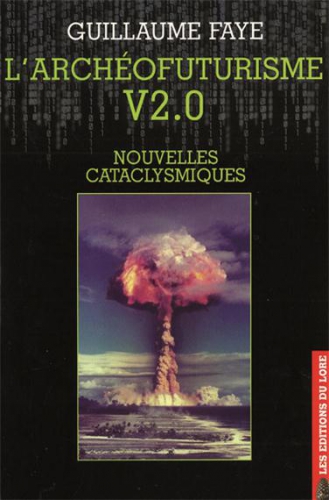 The book’s vision of a non-spiritual, titanic, and only partially scientifically developed (and also part degenerate) future leads you into a not-so-uncommon “feel bad” territory, as is not unknown in contemporary science fiction. Dystopia, the fall of civilization, doom and gloom. So what is there to say about it all? We’d say: Faye is a debutant of fiction. (Okay, the first Archeofuturism book indeed had an appendix that was a kind of short story, so already there the author had signaled the viability of fiction for his purposes.) Nevertheless, he tells his well-crafted story with confidence and wit, so we shouldn’t complain too much. We’d even like to read more Faye fiction, perhaps stories set in twentieth-century France or some such theme, given the allure of the setting of the first episode in this book.
The book’s vision of a non-spiritual, titanic, and only partially scientifically developed (and also part degenerate) future leads you into a not-so-uncommon “feel bad” territory, as is not unknown in contemporary science fiction. Dystopia, the fall of civilization, doom and gloom. So what is there to say about it all? We’d say: Faye is a debutant of fiction. (Okay, the first Archeofuturism book indeed had an appendix that was a kind of short story, so already there the author had signaled the viability of fiction for his purposes.) Nevertheless, he tells his well-crafted story with confidence and wit, so we shouldn’t complain too much. We’d even like to read more Faye fiction, perhaps stories set in twentieth-century France or some such theme, given the allure of the setting of the first episode in this book.
In Archeofuturism 2.0 we get a Right-wing, radical conservative view of our times and beyond, and it’s fine as such. There aren’t that many such novels written today. It develops into a pessimistic tale of science as the lodestar. Natural science and technology become the focus of man’s striving – not spirituality and not esotericism. Let’s just say that we’d prefer a future with a modicum of mindfulness to keep us eminently awake.
The novel is convincing – as science fiction. Faye adds an epilogue – and there, he’s stating his creed in no uncertain terms – evolution rules, stick to the program, and forget everything else. And science predicts that someday, our planet will almost certainly be hit by a near-Earth Object. And after that, the cockroaches will rule . . . ?
Faye doesn’t say the latter. Instead, he delivers his payoff as a kind of afterthought, a line intimating a reasonable approach: “What do you think?” This indeed has the character of afterthought, and it would sit fine in an essay – but, when writing fiction, you have to obey its unwritten rules. A writer of fiction shapes his reality, he enacts the world he has in mind, and therefore he mustn’t throw in caveats and footnotes. There are indeed some lengthy notes to the tenth episode, showing that the author has done his homework in terms of space technology and so on, but they too are out of place in a fictional setting.
Essentially, writing fiction is myth-making. It’s revelation. It has to aim at mythic poignancy. In fiction, you can’t take the easy way out that is permitted in an essay, where the format allows you to discuss this and that.
The fiction author should be ruthless. “The spirit of song is war,” as Edith Södergran said. You have to artistically stand by your creation and not support it with extra-artistic means.
That said, and going back to the novel at hand, let’s remember what we said above, namely that it’s convincing. In most respects – its narrative skill, the conceiving of its science, history, sociology, and so on in a fictional setting, and as a radical conservative statement in novelistic form – Archeofuturism 2.0 is more than satisfactory. From an artistic point of view, we don’t mind that the novel is a bit weird and strange in its visions of the future – no, not at all, since the vision is mostly conveyed with skill. As well as charm, that has got to be underlined; the reader is swept along, and he generally has a good time. Overall, it’s a rather excellent effort.
Above, we mentioned Simak’s City as a similar science fiction opus, similar in that it is a chronicle of the future in separate yet connected episodes. In terms of its general atmosphere, Archeofuturism 2.0 can also make you think of the graphic novel Blake and Mortimer [6], Belgian E. P. Jacobs’ stories which often had a science fictional setting, such as The Time Trap [7] (1962), a story with a rather elaborate-but-dismal future. (And for the record, in one chapter of his novel, Faye has a character named “Grossgrabenstein,” a name that also appears in Jacobs’ The Mystery of the Great Pyramid [8] from 1954.) You might even mention Jules Verne, who (in his later works) had this “belief in science, yet also pessimistic” mindset that Faye displays.
We get the urge to equate Faye’s narrative skills with those of the graphic novel writer Pierre Christin, the creator of Valérian [9]. In this opus, Christin has made the Laureline character rather memorable, and in equal measure Faye has a way with his female characters. They are rather prominent in this future history. Discreetly, they carry a lot of the action without the gender-related fuss they are embellished with in Left-leaning novels.
14:14 Publié dans Livre, Livre, Nouvelle Droite | Lien permanent | Commentaires (0) | Tags : livre, archéofuturisme, guillaume faye, nouvelle droite |  |
|  del.icio.us |
del.icio.us |  |
|  Digg |
Digg | ![]() Facebook
Facebook


13:55 Publié dans Géopolitique, Histoire | Lien permanent | Commentaires (0) | Tags : alaska, californie, amérique russe, histoire, géopolitique, russie, états-unis |  |
|  del.icio.us |
del.icio.us |  |
|  Digg |
Digg | ![]() Facebook
Facebook
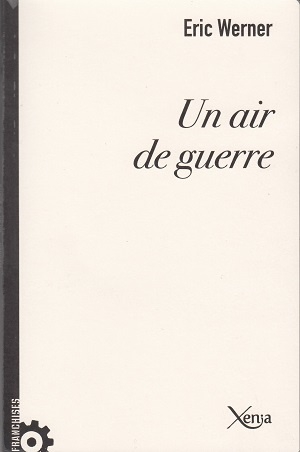 La guerre actuelle en Europe s'est imposée à nous sans nous demander notre avis. Elle remonte au début de 2015 avec les attentats contre Charlie Hebdo et contre l'Hyper Casher. Elle s'est poursuivie en France, en Belgique, en Allemagne. C'est une guerre qui n'est pas une guerre classique.
La guerre actuelle en Europe s'est imposée à nous sans nous demander notre avis. Elle remonte au début de 2015 avec les attentats contre Charlie Hebdo et contre l'Hyper Casher. Elle s'est poursuivie en France, en Belgique, en Allemagne. C'est une guerre qui n'est pas une guerre classique.
La guerre actuelle nous cherche. Si elle nous cherche, il faut nous interroger sur notre participation possible à cette guerre, participation possible, mais pas sûre. Nous pouvons en effet:
- soit ne pas vouloir la faire, choisir la résilience, c'est-à-dire accepter de vivre avec le terrorisme, comme on nous y invite
- soit ne pas faire que la subir, choisir la révolte, c'est-à-dire refuser de vivre avec lui.
Dans son essai, Un air de guerre, Eric Werner se propose de nous demander ce qui pourrait nous amener à un tel refus.
Pour ce faire, Eric Werner constate d'abord que:
- La société est atomisée: il n'y a plus de lien entre les générations, ni entre les individus
- L'État protège de moins en moins les biens et les personnes: l'insécurité augmente
- L'écart est croissant entre ce que versent les individus à l'État et ce qu'ils reçoivent en contrepartie au titre de la protection sociale
- L'État contrôle de plus en plus les individus grâce aux nouvelles technologies.
En l'absence de sécurité étatique, on peut donc dire qu'il y a état de nature; en présence de contrôle étatique, on peut donc dire qu'il y a état civil, pour reprendre les termes de Hobbes.
Dans ces conditions, selon Eric Werner , la guerre ne peut être que moléculaire, parce que cela découle de l'effondrement de la citoyenneté:
- Il n'y a plus de peuple
- Il n'y a plus que des ensembles désarticulés.
Et la conséquence en est que les individus sont [...] amenés à se prendre eux-mêmes en charge, en particulier à assurer eux-mêmes leur sécurité.
Eric Werner distingue trois sortes de guerres moléculaires:
- La résistance à un éventuel envahisseur
- La résistance à l'État total
- Le recours individuel à l'autodéfense.
Qu'est-ce qui va motiver l'individu (ou le petit nombre) à résister? La peur, si l'ennemi nous convainc de ses volontés exterminatrices (sinon, à quoi bon résister?). La guerre, toute moléculaire qu'elle soit devenue, a alors pour résultat de transformer les individus en un ensemble soudé et solidaire: la guerre éduque à la guerre.
La vraie question quand on fait la guerre n'est pas comment mais pourquoi: La guerre ne vaut d'être engagée que si la cause que l'on défend est bonne et juste. Et la victoire ne s'obtient que si l'on est motivé par autre chose que simplement la victoire: une juste cause, en fait.
(Eric Werner prend même le risque d'écrire que quand on dit: un seul but, la victoire, la défaite est à peu près assurée.)
Qu'est-ce que la juste cause d'une guerre? La défense de la terre natale et de l'héritage culturel, qui recèle toutes sortes de choses et qu'un mot résume: liberté, un mot qui remonte aux Grecs et qui se retrouve dans le christianisme.
Dans la guerre moléculaire, le sujet de la guerre c'est l'individu et c'est lui qui peut être amené par la guerre elle-même à donner du prix à la liberté: la liberté éduque à la liberté. A ce moment-là l'individu en vient à ne pas se battre seulement par instinct de survie, mais pour défendre une cause.
Le mot liberté recouvre en fait deux acceptions, qui, au contraire de s'opposer, forment un tout: les libertés individuelles, mais aussi la liberté du pays. Si toute guerre, y compris la guerre moléculaire, est un mal, un très grand mal, est-il possible pour autant de se résigner à l'anéantissement de la liberté, droit inaliénable, et de ne pas résister à l'oppression?
Dans la situation de guerre actuelle, il y a donc deux attitudes individuelles possibles:
- être dans le déni de la réalité, mais c'est coûteux à terme
- faire face, mais cela signifie bien interpréter les signes, tels que les attentats perpétrés en Europe depuis 2015.
Pour bien interpréter les signes, il faut veiller à ce que rien ne vienne faire écran entre eux et nous, pour être complètement soi-même: C'est ainsi qu'on accède à la force du regard, qui est souveraine.
Francis Richard
Un air de guerre, Eric Werner, 96 pages Xenia
Livres précédents chez le même éditeur:
Portrait d'Eric (2011)
De l'extermination (2013)
Une heure avec Proust (2013)
L'avant-guerre civile (2015)
Le temps d'Antigone (2015)
11:31 Publié dans Livre, Livre, Philosophie | Lien permanent | Commentaires (0) | Tags : philosophie, eric werner, livre |  |
|  del.icio.us |
del.icio.us |  |
|  Digg |
Digg | ![]() Facebook
Facebook
10:42 Publié dans Entretiens, Théorie politique, Traditions | Lien permanent | Commentaires (0) | Tags : christophe levalois, entretien, royauté, orthodoxie, actualité, théorie politique, traditions, politologie, sciences politiques, philosophie politique |  |
|  del.icio.us |
del.icio.us |  |
|  Digg |
Digg | ![]() Facebook
Facebook
 Ce vieux jeune homme au physique fragile et nonchalant, à l’allure d’éternel adolescent, long et mince, impose déjà une séduction qui échappe à tous les âges. Il a le front haut et bosselé des intellectuels où des cheveux rares forment comme une couronne ou un halo tandis que ses yeux clairs tour à tour moqueurs ou perdus semblent regarder au-delà de ce qu’on leur montre. L’homme est élégant sans recherche, à l’aise sans forfanterie, aristocrate sans avoir les titres. C’est un hobereau des lettres descendu de sa tour d’ivoire pour regarder le monde de plus près. Engagé très jeune dans la guerre de 1914, il a trouvé dans les combats un terrain exceptionnel à ce dépassement du moi qui l’obsédera toute sa vie : « Tout d’un coup je me connaissais, je connaissais ma vie. C’était donc moi, ce fort, ce libre, ce héros » écrit-il dans « La comédie de Charleroi ». Etre un héros, voilà ce qui manquera à Drieu revenu à la vie civile. Les femmes occuperont l’intellectuel en recherche de sensations fortes qui passera des unes aux autres, avec vertige ; mais l’homme d’action restera les mains vides.
Ce vieux jeune homme au physique fragile et nonchalant, à l’allure d’éternel adolescent, long et mince, impose déjà une séduction qui échappe à tous les âges. Il a le front haut et bosselé des intellectuels où des cheveux rares forment comme une couronne ou un halo tandis que ses yeux clairs tour à tour moqueurs ou perdus semblent regarder au-delà de ce qu’on leur montre. L’homme est élégant sans recherche, à l’aise sans forfanterie, aristocrate sans avoir les titres. C’est un hobereau des lettres descendu de sa tour d’ivoire pour regarder le monde de plus près. Engagé très jeune dans la guerre de 1914, il a trouvé dans les combats un terrain exceptionnel à ce dépassement du moi qui l’obsédera toute sa vie : « Tout d’un coup je me connaissais, je connaissais ma vie. C’était donc moi, ce fort, ce libre, ce héros » écrit-il dans « La comédie de Charleroi ». Etre un héros, voilà ce qui manquera à Drieu revenu à la vie civile. Les femmes occuperont l’intellectuel en recherche de sensations fortes qui passera des unes aux autres, avec vertige ; mais l’homme d’action restera les mains vides.
16:56 Publié dans Littérature | Lien permanent | Commentaires (0) | Tags : pierre drieu la rochelle, littérature, littérature française, lettres, lettres françaises, france |  |
|  del.icio.us |
del.icio.us |  |
|  Digg |
Digg | ![]() Facebook
Facebook

Après Enjoy en 2012, Nous sommes jeunes et fiers en 2014, Solange Bied-Charreton a fait paraître en 2016, toujours chez Stock, Les Visages pâles. Dans ce troisième roman, l’auteur conserve sa volonté de dépeindre la société avec un regard attentionné, rappelant ainsi le dessein qu’avait Balzac dans La Comédie humaine, d’écrire « l’histoire oubliée par tant d’historiens, celle des mœurs ». Zone Critique revient pour vous sur le troisième livre de cette jeune romancière.
 Dans Les Visages pâles, il s’agit de mœurs précis, ceux de la famille Estienne implantée à Paris, composée de Jean-Michel et Chantal, divorcés, ainsi que de leurs enfants, Hortense, Alexandre et Lucile, ayant chacun son propre mode de vie, son travail et son appartement. Il s’agit en fait d’une famille sans toit, où chaque membre est exilé de la nation primaire désormais vide et abandonnée. Dès le début du roman est présentée une scansion fondamentale entre la ville, lieu d’un « exil permanent » et la Banèra, espace des liens originels et maison du père de Jean-Michel, Raoul. La mort de ce dernier déclenche une lutte pour la conservation du « bastion à défendre ». La famille, dont les valeurs sont en perdition, étouffées sous le poids d’une vie moderne, est représentée par deux entités : Jean-Michel voulant vendre la maison pour faire table rase d’un passé inutile, et la loi Taubira en faveur du mariage homosexuel. Le roman suit donc chacun de ces modes de vie selon une tension entre deux valeurs : l’intimité et la communauté, l’individu et la famille, l’enjeu étant de comprendre comment le personnage se dégage du déterminisme qui lui est assigné pour mieux le transgresser, le modifier, lui donner une renaissance, c’est-à-dire pour mettre au monde une histoire.
Dans Les Visages pâles, il s’agit de mœurs précis, ceux de la famille Estienne implantée à Paris, composée de Jean-Michel et Chantal, divorcés, ainsi que de leurs enfants, Hortense, Alexandre et Lucile, ayant chacun son propre mode de vie, son travail et son appartement. Il s’agit en fait d’une famille sans toit, où chaque membre est exilé de la nation primaire désormais vide et abandonnée. Dès le début du roman est présentée une scansion fondamentale entre la ville, lieu d’un « exil permanent » et la Banèra, espace des liens originels et maison du père de Jean-Michel, Raoul. La mort de ce dernier déclenche une lutte pour la conservation du « bastion à défendre ». La famille, dont les valeurs sont en perdition, étouffées sous le poids d’une vie moderne, est représentée par deux entités : Jean-Michel voulant vendre la maison pour faire table rase d’un passé inutile, et la loi Taubira en faveur du mariage homosexuel. Le roman suit donc chacun de ces modes de vie selon une tension entre deux valeurs : l’intimité et la communauté, l’individu et la famille, l’enjeu étant de comprendre comment le personnage se dégage du déterminisme qui lui est assigné pour mieux le transgresser, le modifier, lui donner une renaissance, c’est-à-dire pour mettre au monde une histoire.
Le scepticisme, vide fictionnel
Solange Bied-Charreton présente l’histoire commune d’une bourgeoisie anti-mariage homosexuel, qui cultive la religion du confort et de l’utilité et qui, s’inquiétant pour l’avenir de ses valeurs, opte davantage en faveur de la suspension de jugement que de l’héroïsme.
L’histoire d’un roman trouve son épaisseur dans ses personnages et leur psychologie. Une psychologie stéréotypée produit une histoire banale. Au contraire, une psychologie dense et subtile donne une histoire singulière, aussi commune soit-elle. Solange Bied-Charreton présente une histoire commune, celle d’une bourgeoisie de 2013, anti-mariage homosexuel, prônant l’importance du travail, de la famille et de l’argent, cultivant la religion du confort et de l’utilité et qui, s’inquiétant pour l’avenir de ses valeurs, opte davantage en faveur de la suspension de jugement que de l’héroïsme. Hortense, par exemple, « femme d’ordre [qui] ne laissait jamais aucune place au hasard», n’est occupée qu’à éviter toute interférence possible avec sa carrière trop précieuse ; Hubert, son mari et père de ses deux enfants, affirme que « la suspension de jugement […] est notre bien le plus précieux » ; Chantal, à l’idée de se faire entendre dans la rue, est rongée par le « scepticisme » et Jean-Michel, lui, « vieux soixante-huitard de merde », a déjà réussi, il a déjà vécu dans un « monde libre » et prépare sa retraite loin de racines trop encombrantes. Seuls deux personnages pourraient être porteurs d’histoire et de fiction : Alexandre et Lucile, tous deux se distinguant par le rapport, en eux, de l’intimité et de la communauté, c’est-à-dire de l’intérieur et de l’extérieur.
Lucile, ou la possibilité d’une histoire
En effet, Alexandre, « plus lucide, mais plus incontrôlable, croyait à la violence » comme unique moyen de défendre la famille et plus généralement les valeurs qui sont au fondement d’une France puissante. Il serait alors possible de l’imaginer futur terroriste, transgressant les valeurs qu’il soutient au nom de leur conservation, si seulement il n’était pas trop éduqué. Pour Alexandre, qui « avait été pensé », la communauté se positionne à la source de l’intimité, si bien qu’elle prend le rôle d’une substance divine à la fois cause et effet de l’individu : si sa lucidité l’encourage à croire en la violence, le jeune homme n’en est pas moins un bourgeois, pour qui l’engagement ne va pas plus loin que « sous un porche rue Monsieur-le-Prince, pour finalement échouer dans un bar à sangria à l’ambiance amicale et aux prix imbattables, et qui autorisait ses clients à fumer malgré la législation en vigueur ». En somme et malgré tout, pour Alexandre, digne héritier de la famille Estienne, « une importance toute particulière était accordée au confort ».
Ni déchirure ni humour chez Alexandre, aussi sérieux que l’auteur qui le met en page. Ceci n’est pas un personnage mais une trajectoire sociale.
Un personnage est avant tout construit par la rencontre, en lui, de l’intérieur et de l’extérieur, si bien qu’il ne peut devenir ce qu’il est qu’en étant « déporté au-delà des frontières du monde connu ». Si cela est le cas des romans de Balzac, où Lucien Chardon par exemple, quitte sa ville natale pour Paris où l’attendent ses « destinées », ça ne l’est pas d’Alexandre qui défend son confort domestique au nom d’une idéologie de trottoir, déterminée par un traumatisme lié à l’enfance. Il pourrait donc être rapproché de Frédéric dans L’Éducation sentimentale ou de Lucien dans L’Enfance d’un chef, si seulement il ne lui manquait pas la verticalité de l’ironie, la nuance de la mauvaise foi ou la sensualité d’un style : ni déchirure ni humour chez Alexandre, aussi sérieux que l’auteur qui le met en page. Ceci n’est pas un personnage mais une trajectoire sociale.
Lucile, au contraire, dont « la personne était en désordre, sa cohérence tenait du hasard », est amenée à rompre avec le reflet de l’extérieur dans l’intérieur grâce à sa rencontre avec Charles Valérien, jeune homme rentier, nihiliste fragile et désabusé qui, sans famille ni origine, jouit d’une souffrance toute particulière : la liberté. Lucile est finalement le seul personnage du roman qui ne vit ni dans le passé ni dans l’avenir mais dans un présent absolu et charnel, un maintenant infini appelé à grossir jusqu’à mettre au monde une histoire. Avortée malheureusement. La rupture de Lucile et de Charles est consommée, et Lucile, désespérée quant à la possibilité de l’Amour, retrouve « l’indifférence généralisée » comme refuge à une douleur trop réaliste ; elle retrouve l’espace familial en somme, qui, ne pouvant préserver son homogénéité sans une forte dose de scepticisme, se doit de douter de tout, de la politique et de l’amour, de sacrifier l’intimité au nom d’une communauté pâle, et surtout de s’en tenir au doute. Avec Hortense et Alexandre, Lucile enferme sa jeunesse dans les méandres de la Banèra pour mieux fermer les yeux devant un monde « morne et démesuré ». « Morne et démesuré », deux mots qui pourraient proposer un résumé de ce qu’est la modernité s’ils ne leur manquaient pas deux lettres, le « i » et le « t », pivots d’une absence qui rend boiteux le roman : celle de l’intimité.

Sociologie du pessimisme
Roman de l’enfermement et de l’incarcération de l’individuel par la communauté, Les Visages pâles présente des personnages qui n’abritent aucune déchirure, aucune complexité intérieure, aucune suggestion à la possibilité d’un devenir fictionnel, aucune vie en somme.
Effectivement, Solange Bied-Charreton met sur papier des entités sociales qui préexistent au roman et pour qui chaque nouvelle page n’est pas une nouveauté qui s’agrège soudainement à un ensemble en construction, mais bien plutôt la confirmation de stéréotypes que tout le monde connaît. Son roman pourrait passer pour pessimiste ou cynique, si seulement il ne réutilisait pas la vision que chacun se fait de ces deux modes de pensée : Charles Valérien fait presque rire, Alexandre n’est même pas ridicule, Hortense finit logiquement par coucher avec son patron et Lucile se confond avec cette fille ratée parce que sensible, que chacun imagine. Alors que le premier disparaît du roman sans manière, les autres personnages se retrouvent pour recomposer ce qu’ils croient être une famille, à la manière d’automates qui cultivent un « mode de vie », mais non pas une « vie ». Ici est présente la contradiction dans le discours de l’auteur, qui, voulant porter un regard attentionné sur ces individus, ne trouve pas d’autre moyen que de les peindre, non pas tels qu’ils sont, mais tels qu’ils sont conçus par l’opinion commune : si lisant le roman, le lecteur y retrouve les préjugés dont il essaye de se débarrasser, ne serait-il pas davantage bénéfique pour lui de le refermer et d’aller marcher dans les rues ?
Roman de l’enfermement et de l’incarcération de l’individuel par la communauté, Les Visages pâles présente des personnages construits par une histoire sociale et qui, lorsqu’ils s’en émancipent, n’abritent aucune déchirure, signe de l’intimité, aucune complexité intérieure, aucun espace cryptique dissimulé derrière les apparences, aucune suggestion à la possibilité d’un devenir fictionnel, aucune vie en somme : ils sont morts-nés et nous regardons leur trajectoire comme nous lisons un livre de sociologie. On n’y croit pas.
Lucas Dusserre
19:35 Publié dans Littérature, Livre, Livre | Lien permanent | Commentaires (0) | Tags : solange bied-charreton, littérature, lettres, lettres françaises, littérature française, livre, france |  |
|  del.icio.us |
del.icio.us |  |
|  Digg |
Digg | ![]() Facebook
Facebook
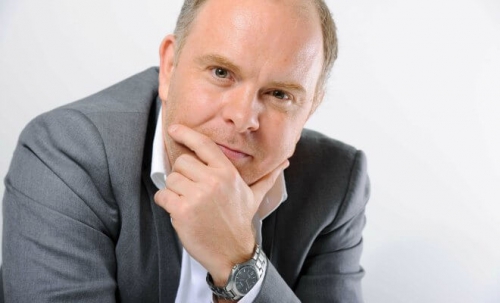
par Lucien Rabouille
Ex: http://zone-critique.com
Animateur du Cercle Cosaque aux côtés de l’ébouriffé Romaric Sangars, franc-buveur à la hussarde, anar’ de droite comme Marcel Aymé et satiriste comme Scarron : Olivier Maulin, auteur – entre autres – de Gueule de bois ou des Lumières du ciel, faisait paraître en juin dernier La Fête est finie aux éditions Denoël. L’un de nos chroniqueurs vous entretient avec gouaille de ce roman truculent, politique et alsacien.
Relevant le nez de la tambouille politicienne, une grande âme s’étonnait de voir que parmi les nombreux postulants à la prochaine élection présidentielle, aucun ne propose de transformer la France en : « un puy du fou géant ». L’argument serait pourtant porteur. Imaginons : au doux pays de France, le bon peuple festoie au milieu des troubadours et des cathares. Moines soldats, dames de cour, bas clergé alcoolique, renégats et guérisseuses rivalisent de fantaisie au cœur d’une mise en scène son et lumière honorant les temps de jadis. Embaumer le pays réel en un sanctuaire protecteur, le peupler de jean-foutres et de nobles édentés redoutant les jacqueries paysannes comme les adorateurs de fées… Le projet n’a encore séduit que les touristes, si l’on compare le succès commercial du Puy du Fou aux anorexiques résultats électoraux de son fondateur. La Grande âme n’a donc pas tord : on ne trouve cette mesure dans aucun programme d’aucun postulant à la primaire d’aucun parti. Mais le projet aura un autre (et meilleur) destin qu’électoral. On rencontre encore des cerveaux malades pour songer à transformer la France en un gigantesque Puy du Fou. Parmi eux : un romancier. Olivier Maulin livre avec son dernier exploit, La fête est finie, un hilarant cri de guerre contre les barbaries éclairées au gaz et ses thuriféraires progressistes.
Fable foutraque du pays réel
Totor, jean-foutre génialement con, n’aime rien tant qu’écouter Bach en se grattant la galle ; son comparse survit de petits boulots, fort d’un CV en peau de lapin et d’une expérience pluriannuelle de chômeur longue durée.
Ses personnages traînent leur existence misérable aux marges des marges de la société. Surnageant dans la nasse, un duo de choc se débat. Totor, jean-foutre génialement con, n’aime rien tant qu’écouter Bach en se grattant la galle ; son comparse survit de petits boulots, fort d’un CV en peau de lapin et d’une expérience pluriannuelle de chômeur longue durée. L’échec professionnel est un emploi à temps plein dans lequel ils excellent, sans RTT, congés payés ou arrêts maladie. Par nécessité alimentaire, ils s’improvisent la nuit gardiens de camping-cars haut de gamme et après quelques combines, embauchent comme pit-bull des chiens domestiques rencontrés la veille à la SPA ou chez la voisine sénile. Sans traîner, la première nuit de travail est interrompue par un cambriolage. Moins ambitieux que les voleurs mais plus négligents, les compères avaient dérobé l’alcool du patron pour s’endormir avec dans l’engin.
Le malfaiteur est un ridicule parvenu d’Europe de l’Est répondant au nom de « Sarközi ». Il file à la roumaine vers la mère patrie pour tirer un bon prix du véhicule. Les personnages obtiennent leur salut par quelques péripéties branquignolesques qui les entraînent dans une cavale policière imprévue. Poursuivant leur route nulle part, c’est à dire en Alsace, ils découvrent un pays où l’Ubu-Renne, souverain des forêts, est un cerf alcoolique et vulgaire alors que des batailles rangées opposent gendarmes et résistants autonomistes.
Quoique bienvenus en Maulinie, les personnages ne s’y sentent pas immédiatement chez eux. Et si elle se passe de brochures promotionnelles, la destination tient toutes ses promesses de dépaysement. Habitués à la routine et à la galère, ils ne voient que folie, démence, excès et réjouissances bucoliques. Le dernier des clochards célestes sera premier chez les anthropologues : virtuose de grands concepts et de bonnes bouteilles, le personnage maulinien est sujet à la radicalisation éthylique. Passé le digestif, il cause clandestinité, attentat et stratégie de la tension. Leur créateur a tout d’un terroriste paralysé par le style. Passé la blague, il s’enflamme et obligatoirement dérape. L’intrigue lui en donne le prétexte ; une décharge s’installe dans la vallée. Casus belli pour les protagonistes, déterminés à ne pas laisser entrer ici le monstrueux « progrès », ni son funeste cortège.
Politique d’abord
La theoria maulinienne a l’odeur d’une potée alsacienne où s’harmonisent les ingrédients d’une soupe bien à droite.
Politique d’abord, le roman est le prétexte pour une typologie (inédite en histoire des idées) de programmes baroques et fatigants. La theoria maulinienne a l’odeur d’une potée alsacienne où s’harmonisent les ingrédients d’une soupe bien à droite. Talent oblige, cette droite se révèle dans ses variétés les plus anarchisantes. On rencontre très vite la plus triviale, qui est aussi la plus populaire : un anarchisme de vauriens et de demi-crapules, se foutant de tout ou presque et surtout de l’Ordre. Cet anarchisme sert d’éthique sommaire au gugusse maulinien de base. Indifférent à tout souci politique, il se contente de rejouer l’éternel duel entre gendarmes et voleurs. Il rappelle Audiard ou les entrepreneurs en activisme révolutionnaire de L’aventure c’est l’aventure. Larcins malgré eux, Totor et son comparse ont autant de conscience politique qu’un vers de terre moyen.
Probablement anarchiste de naissance, l’auteur sait aussi raffiner. Refuser une autorité ne revient pas toujours à ignorer la nécessité d’un ordre. Régionalisme, traditionalisme, localisme, décroissance… l’Alsace maulinienne formule une proposition originale d’organisation politique et sociale. Nostalgiques d’une harmonie originelle, ses habitants rêvent de libérer leur province de l’administration centrale pour la remplacer par une association libre de cellules sociales protectrices. Ils idéalisent un royaume franc du XIIIe siècle, hérissé de libertés, dans lequel pays, provinces, communes pouvaient se nantir de privilèges libérateurs. Rêvant d’un grand bordel providentiellement ordonné, ils vomissent l’État et aspirent à se passer de lois, protocoles, ordonnances, normes ou administration. Résurgence du légitimisme libertaire de Chateaubriand et de l’organicisme réfractaire de Barbey d’Aurevilly, ils sont les ultimes héritiers d’une intemporelle fronde contre la légalité, ne respectant un droit que surnaturel et désobéissant au reste.
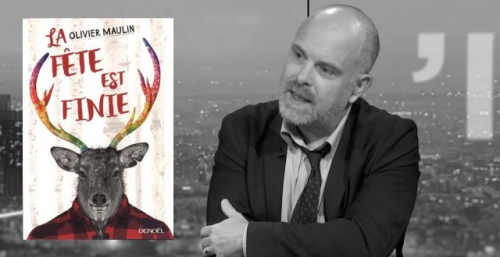
L’État est toujours désigné comme l’ennemi. Empêcheur de tourner en bourrique, il envoie sa police courser les renégats et surtout, crime de lèse-ébriété, entend réglementer la distillation de l’eau de vie. On entend donc bien se passer de lui et de son autorisation pour être bourré du matin au soir. Alors on chouanne, zade et résiste par tous les moyens, même légaux. Les personnages brûlent de consumer le plus froid des monstres froids et pour ce fait, discourent eux aussi sur la méthode. Abattre l’État certes, mais comment s’y prendre ? D’une Theoria, le maulinisme déduit une Praxis. Proudhon et Sorel ne sont pas loin. Pour ne pas se laisser duper par la fable démocratique, le roman glose les Réflexions sur la violence entre deux caravanes de camping et légitime la violence prolétaire comme mythe mobilisateur après trois apéritifs. Vivre et s’achever à l’alcool dans une caravane n’empêche pas de maîtriser l’exercice de la dissertation philosophique. L’ouvrage fourmille d’énoncés théoriques : l’auteur s’y révèle très habile et manie la dialectique comme le tire-bouchon. Introduisant la thèse démocratique par sa réfutation marxiste, il offre alors un supplément d’âme au traditionalisme et conclue sur l’appel à une grève majestueuse, instituant le peuple en nouvelle aristocratie.
Quand le patriarche disserte sur la grande stratégie révolutionnaire, sa fille veille à sa mise en œuvre tactique. Le roman annonce le Grand Soir, le point de non retour. Les personnages s’y préparent et s’improvisent Lysandre ou Hannibal. Être armé est une garantie d’indépendance ; l’assurance de pouvoir résister au Léviathan. Là encore, l’auteur innove et enrichit son avant-garde réactionnaire d’une mention allusive à l’idéal libertarien américain, souvent mal compris et caricaturé en France.
Quête ontologique
Le langage maulinien est l’expression d’un être désinhibé qui aspire à vivre une existence libre et affranchie. Il malmène tous les poncifs linguistiques et idéologiques ; comme l’ont fait avant lui Rabelais, Céline, Frédéric Dard ou ADG.
S’il est accidentellement théorique et praxiologique, le roman ne se prend pas non plus trop au sérieux. Jünger, Sorel, Spengler, Maurras ou Heidegger peuvent se faire comprendre d’alcooliques incultes. La trivialité des personnages résume en deux ou trois grossièretés, des pensées ardues et bien souvent soporifiques. On les en remercie. Au cœur de l’intrigue maulinienne, Heidegger nous révélait la technique moderne comme « mode de dévoilement de l’étant », Maulin la décrit comme mode de dévoiement de l’étang. La rhétorique se déploie en quelques cris de guerre bien sentis : « merde au progrès qui pue ». On goûte à cette âpreté conceptuelle comme à ses coups de massue, à peine plus délicats qu’une hallebarde de lansquenet généreusement enfoncée dans le crâne.
Comme rançon du génie, ces gauloiseries éloignent nos héros des gens de bonne compagnie. Démesurés dans leur courage, leur imbécillité, leur facétie, leur ivrognerie ou même ponctuellement leur érudition ; ils se voient opposés à la faune de tous les cuistres demi-habiles, intelligents sans être géniaux, courageux mais pas téméraires, diplomatiquement ordinaires pour ne pas dire simplement médiocres. Seuls comptent les caractères extrêmes. Mais il faut encore en être pourvu, cette qualité n’est pas universelle.
Le grand remplacement des fous par les demi-habiles permet l’invasion d’une langue étrangère. Sans qu’elle n’ait été vraiment conviée, la phraséologie s’invite ponctuellement en Pays d’Alsace où la barbarie douce a de nouveau franchi le limes du Rhin. Un séminaire d’entreprise parle « de relever les défis à venir ». Presque aussitôt, tout discours sincère se dilue dans un magma pseudo-métaphorique. L’auteur ne fait que citer les brochures d’une parole qui n’a même pas besoin d’être caricaturée pour apparaître vide. Par son expression la plus réaliste, le lecteur comprend immédiatement qu’elle ne vaut rien.
Le langage maulinien acquiert alors une plus haute dignité et devient autre chose qu’un amas de gugusseries pour la poilade. Il est l’expression d’un être désinhibé qui aspire à vivre une existence libre et affranchie. Il malmène tous les poncifs linguistiques et idéologiques ; comme l’ont fait avant lui Rabelais, Céline, Frédéric Dard ou ADG. Mais les thèmes de la banlieue des années 1930 comme du conformisme gaullien de la France industrielle ont vécu. Il est difficile d’entretenir aujourd’hui une familiarité avec ces proses, sauf à posséder une très bonne connaissance du contexte historique. Moderne, absolument moderne, le langage maulinien en est spontanément drôle.
Une farce mélancolique
Témoin brutal et nostalgique d’un passé qui ne sera jamais plus, Maulin pourrait être à l’Alsace un Faulkner ou un Barbey d’Aurevilly.
Farce mélancolique d’un univers qui se défait, le roman nous offre bien des rires et aussi un peu de tristesse. Tel Alsacien a connu « les fromageries au bourg, les charcuteries, des confiseries, des merceries, une chapelle même ! Et des tanneurs, des cordonniers, des bourreliers, un tonnelier, un ferblantier, un forgeron, et un cordier ». « Une épicerie, une pizzeria et un moloch en tôle, horrible hypermarché à l’entrée de la vallée » les ont remplacés. On songe à l’âge d’or, au paradis perdu et on a soudain envie de dire avec le vieux fermier « merde au petit con de sociologue qui viendra m’expliquer que ce n’était pas mieux avant ».
Passé le coup de gueule, le roman pose un sévère diagnostic : la société a vécu sur le rêve sinistre d’un progrès indéfini et d’un mouvement linéaire de l’histoire, ce dernier devait renvoyer aux vieilles lunes moyenâgeuses tous les sceptiques qui chercheraient à lui faire obstacle. On entend sa complainte : « Le progrès est passé par là ». Le présent n’est qu’un inépuisable sujet de déploration quand le passé est toujours objet de regrets. Libres artisans, érudits locaux, aspirants renégats, clochards célestes… tout le peuple maulinien regrette l’intimité des sociétés villageoises en employant le verbe généreux et trivial des parlers de jadis.
Témoin brutal et nostalgique d’un passé qui ne sera jamais plus, Maulin pourrait être à l’Alsace un Faulkner ou un Barbey d’Aurevilly. Après les premiers chapitres, sa prose se localise à la manière d’un honnête récit pastoral. Un hobereau normand ou un patricien dixie en pleine vallée du Rhin, remplaçant le coton et le cidre par le schnaps ? Le roman est un peu plus fin que cela. Le pathos à foin a vécu… Chez Maulin, la nostalgie n’a pas fondamentalement divorcé de l’espoir. Sans péage mais sans déviation, le camping-car maulinien emprunte l’autoroute de l’héroïsme chevaleresque. « Elevé en Mythe, le temps d’avant n’est jamais très éloigné du rêve ». Atteints des vertiges d’un âge d’or imaginaire, les personnages s’intéressent pourtant moins à sa forme qu’à son principe. L’intimité sociale, l’autorité de la coutume, les baises gauloises sont plus qu’une fresque mythologique. Elles existent de manières bien réelles, bien charnelles, dans ce que les sociologues appellent la postmodernité. Celle-ci devient involontairement passéiste et se retourne contre l’édifice moderne quand son infrastructure étatique et sa superstructure idéologique s’enfoncent dans une muabilité incertaine. Quand il discourt, le roman détaille le mouvement cyclique de l’histoire et se plonge, quoiqu’un peu sommairement, dans la mythologie des siècles. Aucun « progrès » n’est inéluctable, aucune décadence non plus. Comme tout ce qui est humain, elle porte en elle les racines de sa propre critique. Son kitsch consumériste devient prophétique. Même en camping-car, le temps des chevaliers peut renaître, mais seulement de manière moderne, baroque et bien sûr inattendue. Les camping-cars resteront et avec eux la poudre, les armes à feu et les machines à distiller. Nul individu, sensé ou insensé, ne songera à y renoncer et probablement pas l’auteur. Mais cet apparent futurisme ne suffit pas à en faire un moderne.
Son dieu cerf alcoolique empereur de la forêt a fière allure et ressemble fort peu à celui de Princesse Monokoké. Dans la fable de Myiazaki, le majestueux protecteur de la Physis se révèle être l’ultime obstacle à « l’exploitation totale de ce qui se trouve entre le ciel et la terre ». Dominer, exploiter, arraisonner semble être, chez le nippon comme chez l’alsacien, le projet même de la modernité. Myiazaki décrit un monde en train de se défaire quand Maulin voit un monde déjà défait. Le myiazakisme comme le maulinisme ne sont guère des optimismes ; mais leur mélancolie sait être consolante. Même quand l’homme semble menacé en son humanité, elle éveille des émotions libératrices. L’art sait encore dire certaines choses, de celles qui ne peuvent demeurer enfouies trop longtemps. Par-delà le dieu cerf, elles sont immortelles et leur « principe ne peut pas mourir car il est le mouvement même de la vie », sauf peut-être après que le dieu cerf ait déménagé en Alsace maulinienne pour succomber à une cirrhose du foie. En attendant, que la fête recommence.
Lucien Rabouille
19:23 Publié dans Littérature, Livre, Livre | Lien permanent | Commentaires (0) | Tags : olivier maulin, livre, littérature, lettres, lettres françaises, littérature française, alsace |  |
|  del.icio.us |
del.icio.us |  |
|  Digg |
Digg | ![]() Facebook
Facebook
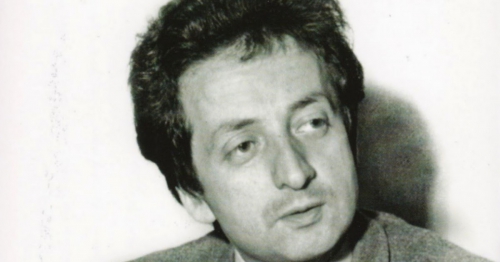
En 1983 paraissait un ouvrage posthume d’Alexandre Vialatte, L’Auvergne absolue. Le comte Dominique de Roux (1935 – 1977) ne serait-il pas, pour sa part, un Rouergat intégral ? C’est la question qu’on se pose une fois refermé Les châteaux de glace de Dominique de Roux écrit par Rémi Soulié en 1999. À cette date, l’auteur n’avait publié qu’un seul ouvrage, deux ans plus tôt (De la promenade), et ne traitait pas encore de Nietzsche, de Boutang, d’Aragon, de Péguy, du Curé d’Ars et de Benny Lévy. Rédigé entre juin et juillet 1998 au moment où l’Hexagone s’entichait pour une équipe de footeux bariolés aidée par quelques substances exceptionnelles et des services très secrets afin de remporter une compétition de paillettes et de pognon, ce court essai revient sur l’écrivain – éditeur – journaliste – baroudeur Dominique de Roux.
Rémi Soulié vient du Rouergue où se trouvait l’un des châteaux de glace de Dominique de Roux, « la propriété de [son] arrière-grand-mère […] ! Le lieu même, où, enfant, il passait les vacances (p. 21) » : les Bourines. Antique ferme fortifiée héritée par Madame Antoine Aubaret, le lieu jouxte l’Aubrac qui, « sur le plan ontologique, est l’espace des burons… (p. 67) ». Les Bourines se situent donc en Aveyron, ces terres toutes proches du Cantal, ce département – volcan endormi dont la forme géo-administrative ressemble à s’y méprendre à la Toison d’Or bourguignonne.
 Dans un monde littéraire et éditorial déjà bien chloroformé par la bien-pensance, Dominique de Roux tranchait par son dynamisme, ses fulgurances et – surtout – son incroyable impertinence. Son style acéré et altier ne pouvait (devait ?) que cliver. Tout le contraire de ses sinistres contemporains. « Du plat, du mou, du fade, du terne, du neutre, le triomphe du Marché est à ce prix. Qu’un écrivain pointe le bout de la mine, les chiens de garde de l’antifascisme se chargent de le broyer sous leurs vigilantes mâchoires morales (p. 47). » Il faut préciser que, ceci expliquant cela, « Chirac est au pouvoir; il gagne un à un, patiemment, ses galons de guignol cosmo-planétaire (p. 50) » et, sous ce déplorable septennat, le palais de l’Élysée devint « le Salon de l’agriculture mâtiné de Grand Stadium (p. 76) ».
Dans un monde littéraire et éditorial déjà bien chloroformé par la bien-pensance, Dominique de Roux tranchait par son dynamisme, ses fulgurances et – surtout – son incroyable impertinence. Son style acéré et altier ne pouvait (devait ?) que cliver. Tout le contraire de ses sinistres contemporains. « Du plat, du mou, du fade, du terne, du neutre, le triomphe du Marché est à ce prix. Qu’un écrivain pointe le bout de la mine, les chiens de garde de l’antifascisme se chargent de le broyer sous leurs vigilantes mâchoires morales (p. 47). » Il faut préciser que, ceci expliquant cela, « Chirac est au pouvoir; il gagne un à un, patiemment, ses galons de guignol cosmo-planétaire (p. 50) » et, sous ce déplorable septennat, le palais de l’Élysée devint « le Salon de l’agriculture mâtiné de Grand Stadium (p. 76) ».
Une chape de plomb s’abattait sur la spécieuse « République des Lettres », une expression grotesque qui masque un bagne intellectuel. « Les idiots du village planétaire sont en effet aux commandes, la Censure veille à ne désespérer la Banque en fourguant aux gogos les héros positifs du réalisme démocratique (p. 12). » Dans ce contexte éprouvant, « malheur aux hérétiques ! Malheur aux dissidents ! Les anathèmes laïques prospèrent, les bûchers progressistes ne manquent pas de fagots, les nouveaux cagots inquisitionnent (p. 14) ». Rémanence d’outre-tombe, l’incisive œuvre de Dominique de Roux n’en finit pas d’être décriée, pourchassée, vilipendée par d’insignifiants cloportes dénonciateurs de salon germanopratin. Sous le binôme Chirac – Jospin, « le hideux libéralisme reprend vie grâce à la social-trahison, en vertu d’une constante historique, celle de l’éternelle imposture – au sens bernanosien du mot – ontologiquement véhiculée par les chapons réformistes (p. 60) ». Rien de neuf sous l’astre de feu ! Certes, « comme tous les grands écrivains, le comte n’avait pas la tête politique (p. 27) ». Quoique… Dominique de Roux « résiste, dans son fortin assiégé par les démocrateux calamistrés (p. 66) ». Mieux, il y manifeste un idéal plus que littéraire, ontologique : « Tout écrivain est un chevalier errant en quête d’absolu; son combat pour la Dame Beauté prend toutes les formes extrêmes, politiques, religieuses, physiques. La laideur, c’est la tiédeur (p. 74) ». Et Roux n’est ni tiède, ni fade !
Rémi Soulié souligne avec justesse que « Dominique de Roux était un ultra historique – étymologique : ultra gauche et ultra droite à la fois, au-delà, de l’autre côté, plus loin, en avant, ailleurs (p. 80) ». Il sait, lui aussi, que « la tragédie repose sur la terreur et la piété donc le sacré; la parodie que nous vivons sur le comique troupier (p. 83) ». Certains y excellent : Chirac, Sarközy, Hollande… Le phénomène depuis s’aggrave : voyons les prestations lamentables des nouveaux « humoristes » de France Inter ou des chaînes de télévision. Ces histrions qui ne font rire personne sont de véritables propagateurs d’obscénités, de suffisance et de conformisme bêlant. Inévitable mutation, car « en régime de dictature libérale, la liberté se filtre. Vous pouvez tout dire, tout écrire, à condition de ne pas contrevenir aux articles fondamentaux de la Médiocratie (p. 75) ».
Par l’intermédiaire de l’auteur d’Ouverture de la chasse, « rêvons un peu à une France vomissant ses tièdes et ses mous ! Plus de sociaux-démocrates ni de démocrates-chrétiens, plus de libéraux sociaux ni de sociaux libéraux ! La politique enfin restaurée en mystique par quelques royalistes, des gaullistes métaphysiques aussi et des révolutionnaires intacts à la Fajardie ! (p. 11) ». « Dominique de Roux […] préparait l’avènement du Surhomme dans la démesure et l’excès (p. 29). » Était-ce seulement de l’excès ? Très certainement en littérature, dans l’édition et par son style ciselé. Probablement aussi avec ses passions et cette « certitude de l’aventurier : les destinations n’oblitèrent pas la destinée (p. 23) ».
Dominique de Roux et Rémi Soulié sont deux reîtres en cavalcade contre l’immonde modernité. L’auteur n’hésite pas à s’enflammer et à faire part d’une intense conviction, apte à effrayer tous les vigilants du consensus. « Mon credo : la littérature comme Weltanschauung. […] À l’inverse des vertueux, je n’hésite pas à dire que j’aurais été stalinien sous Staline, mussolinien sous Mussolini, franquiste sous Franco, salazariste sous Salazar, pétainiste sous Pétain, castriste sous Castro; j’aurais été de tous les totalitarismes et je préviens, je serai du prochain (p. 77). » Faut-il comprendre qu’il serait susceptible de se rallier au libéral-mondialisme bankstériste 2.0 de ce début de XXIe siècle ? Les titres qui suivront après Les châteaux de glace de Dominique de Roux démontreront au contraire que Rémi Soulié appartient à une autre race, celle immarcescible des bretteurs de haute tenue.
Georges Feltin-Tracol
• Rémi Soulié, Les châteaux de glace de Dominique de Roux, Les Provinciales – L’Âge d’Homme, 1999, Saint-Victor-de-Morestel – Lausanne, 93 p., livre épuisé, sauf chez quelques bouquinistes.
00:06 Publié dans Littérature, Livre, Livre | Lien permanent | Commentaires (0) | Tags : littérature, livre, littérature française, lettres, lettres françaises, dominique de roux, rémi soulié |  |
|  del.icio.us |
del.icio.us |  |
|  Digg |
Digg | ![]() Facebook
Facebook
00:05 Publié dans Actualité | Lien permanent | Commentaires (0) | Tags : actualité, terrorisme, richard lebévière, politique internationale |  |
|  del.icio.us |
del.icio.us |  |
|  Digg |
Digg | ![]() Facebook
Facebook
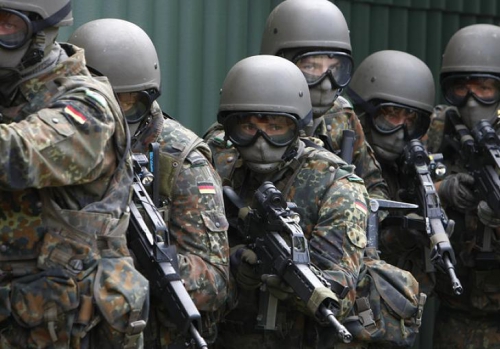
Ex: http://www.zeit-fragen.de
km. «Das Ende der Geschichte», das der US-Amerikaner Francis Fukuyama im Sommer 1989 erstmals mit einem Essay in der neokonservativen Zeitschrift «The National Interest» und 3 Jahre später mit einem ausführlichen Buch ausrief, war wohl von Beginn an mehr ein Bestandteil von Propaganda als seriöse Analyse. Fukuyamas These konnte mit «Glauben an den ‹Endsieg› des US-Modells in Politik und Wirtschaft» übersetzt werden und passte sehr gut zur US-amerikanischen Tradition, ihrem Land ein «manifest destiny» zur Führung der Welt zu bescheinigen. Der Ideologie folgte auch in den neunziger Jahren des letzten Jahrhunderts die tatsächliche US-Politik. Heute, 25 Jahre später, ist der Scherbenhaufen offenbar, und kein vernünftiger Mensch spricht mehr von einem Ende der Geschichte. Geschichtliche Bezüge und Geschichtsdeutungen erlangen wieder zu Recht Gewicht, nicht zuletzt auch, weil sich geschichtliche Ereignisse mit runden Zahlen jähren. 2014 war es der 100 Jahre zurückliegende Beginn des Ersten Weltkrieges, 2015 70 Jahre Ende des Zweiten Weltkrieges und so weiter und so fort.
Willy Wimmer macht in seinem Text den Versuch, auch für das Jahr 2017 deutlich zu machen, wie Geschichte nachwirkt und «lebt». Aber nicht immer so, dass es uns lieb sein kann: Nicht nur die Aussage des ersten Nato-Generalsekretärs Lord Ismay über die Rolle der Nato gegenüber Deutschland und Russland, sondern auch das Streben von Staaten und Völkern in Ost- und Südost-Europa, Kleinasien und der arabischen Welt, die Ergebnisse der Versailler Verträge zu revidieren. Und nicht zuletzt: das wachsende Bewusstsein Russlands für die Geschichte des eigenen Landes im 20. Jahrhundert, für die Bedeutung der beiden Revolutionen im Jahr 1917, für die fragwürdige Rolle der westlichen Staaten bei diesen beiden Revolutionen und deren zerstörerische Ziele auch in den Jahren danach. Zum Beispiel: die angelsächsischen Versuche nicht erst vor und während des Zweiten, sondern auch schon im Ersten Weltkrieg, Russland (später die Sowjetunion) zu schwächen, zu zerlegen und in den Griff zu bekommen und dafür Deutschland zu instrumentalisieren. Um so «2 Fliegen mit einer Klappe zu schlagen»: beide wichtigen europäischen Kontinentalmächte gegeneinander aufzubringen und zu schwächen sowie eine Verständigung und Zusammenarbeit zu verhindern.
In Deutschland allerdings, so Willy Wimmer, reiche das verordnete Geschichtsbewusstsein nur bis 1945 zurück. Die Folge: bislang nicht nur mangelhafter Widerstand, sondern auch aktive Mittäterschaft beim erneuten Aufmarsch gegen Russland.
Die turbulenten Ereignisse des Jahres 2016 haben im Rückblick auch dazu beigetragen, Licht ins Dunkel der globalen geopolitischen Verstrickungen zu bringen, insbesondere was die zwielichtige Rolle der Vereinigten Staaten angeht. In meinen Büchern «Wiederkehr der Hasardeure» und jüngst «Die Akte Moskau» habe ich Entwicklungen zusammengefasst und gebe einen Ausblick auf das, was uns ab 2017 erwarten wird.
David Fromkin hat eine «Bibel» zum Nahen Osten verfasst. Sein epochales Werk über das Ende des Ersten Weltkrieges ist unübertroffen. Der Titel trägt bis heute: «The peace to end all peace». International kamen die Ereignisse und Entwicklungen wieder an die Oberfläche, die zum Ersten Weltkrieg und zu seinem Ende führten, unmittelbar nach der Beendigung eines Nachfolgefriedens, des Kalten Krieges. Letzterer wurde im November 1990 mit der berühmten «Charta von Paris» gleichsam feierlich zu Grabe getragen.
Die Welt hat sich mit dem Ende des Kalten Krieges verändert. Die Spaltung Europas wurde scheinbar beseitigt, um fast 25 Jahre später an der Grenze des Nato-Gebietes zur Russischen Föderation nach dem Motto von Lord Ismay über den Sinn des westlichen Militärbündnisses gegenüber Russland wiederaufzuleben. Danach hat die angelsächsisch dominierte Nato den alleinigen Sinn, «die Amerikaner [in Europa] zu halten, die Russen [aus Europa] herauszuhalten und die Deutschen niederzuhalten».
Die unmittelbare Zeit nach dem Ende des Kalten Krieges wurde allerdings von drei Bewegungen bestimmt: Es galt gemäss der «Helsinki-Charta», die Möglichkeiten der jetzt in ganz Europa vorhandenen freien Staaten zu nutzen. Der nach der finnischen Hauptstadt benannte Prozess mit den sogenannten «drei Körben» konnte das freie Europa bestimmen: Es sollte mittels einer «Friedensdividende» die Hochrüstung aus der Zeit des Kalten Krieges beseitigt, das ganze Textbuch menschen- und bürgerrechtlicher Vorstellungen umgesetzt und die wirtschaftliche Entwicklung zugunsten der Menschen und der Staaten vorangetrieben werden.
Das stiess bekanntlich auf grösste Hemmnisse, weil die Vereinigten Staaten die Entwicklungen immer dann auf Eis legten, wenn sie die entsprechenden Prozesse nicht alleine und ausschliesslich bestimmen konnten. Deutschland musste diese Erfahrung bei der tatkräftig begonnenen Zusammenarbeit mit den Ostsee-Anrainer-Staaten ebenso machen wie die Mitgliedsstaaten der Rhein-Main-Donau-Konvention. Überall dort, wo europäische Staaten auf regionale Zusammenarbeit vorbereitet und eingestellt gewesen sind, drängten sich die Vereinigten Staaten dazwischen. Es sollte kein Gesprächsfaden mehr zwischen europäischen Staaten aufgenommen werden, bei dem Washington nicht mit am Tisch sass und die Dinge dominieren konnte. Gemeinhin war ein derartiges Vorgehen aus den Staaten des seinerzeit gerade erst aufgelösten «Warschauer Vertrages» bekannt gewesen, wo die Anwesenheit der Sowjetunion bei allen Gesprächen sicherstellte, dass kein unmittelbarer Dialog zwischen Mitgliedsstaaten möglich wurde.
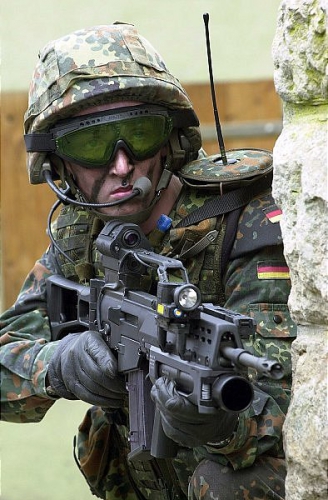 Unbewältigte Auswirkungen des Ersten Weltkrieges
Unbewältigte Auswirkungen des Ersten WeltkriegesUngarn gab ein anderes Signal. Wie die Polen waren es die Magyaren gewesen, die den Freiheitswillen in Europa in der dunkelsten Zeit des europäischen und globalen Antagonismus unter grossen Opfern hochgehalten hatten. Mit dem Verzicht auf die deutschen Kerngebiete jenseits der Oder hatte Deutschland ein schmerzliches Opfer erbracht, das aus dem Ende des Zweiten Weltkrieges erwachsen war. Aber mit Ungarn und anderen Staaten in dessen Nachbarschaft, vor allem aber der Entwicklung auf dem Balkan, wurde etwas anderes deutlich und schlug voll auf die Arbeit durch, die uns der gerade beendete Kalte Krieg abverlangte: Versailles und die sogenannten «Pariser Vorort-Verträge» bestimmten die Tagesordnung zwischen Budapest, Bukarest und Ankara, weil man endlich frei über die Konsequenzen reden konnte, die aus Versailles für «Mitteleuropa» resultierten. Es war die Türkei, die den grossen Bogen gegen europäische Ignoranz zu den englisch-französischen Geheimabkommen über eine jüdische Heimstatt in Palästina aus dem Jahre 1916 und damit zum zentralen Wendepunkt des Ersten Weltkrieges sowie den späteren Auswirkungen von Versailles auf einen wesentlichen Teil Europas geschlagen hat.
Während der Brandherd des Balkans in den 1990er Jahren mehr und mehr in kriegerische Glut überging, fiel jede ernsthafte Auseinandersetzung mit den Problemfeldern, die man nach dem Ende des Kalten Krieges eigentlich bewältigen wollte, ins Wasser. Die Vereinigten Staaten hatten in diesen Jahren ihre politischen Prioritäten für sich alleine neu definiert. Die Signale standen nun nicht mehr auf «Helsinki» – und damit Zusammenarbeit –, sondern auf «Lord Ismay pur». Die Zeit der russischen Schwäche sollte genutzt werden, um das amerikanische Vorfeld auf dem europäischen Teil des Kontinentes nach Osten zu erweitern. Dafür musste eine ernsthafte Kooperation der europäischen Staaten mit Russland in allen Bereichen hintertrieben und von der Adria aus die traditionell guten Verbindungen Russlands zu den Staaten dieser Region beseitigt werden. Der Ablauf der Kriegsereignisse auf dem Balkan nach Beschlüssen des US-Kongresses ab 1990 hat das bestätigt – eindrucksvollstes «Relikt» ist das «Camp Bondsteel» im Kosovo, die zweitgrösste US-Militärbasis in Europa. Nicht auszuschliessen ist, dass die angelsächsischen Mächte unter allen Umständen eine Beschäftigung mit «Versailles» verhindern wollten, weil damit ihre zentrale Verantwortung für ein fürchterliches Jahrhundert deutlich geworden wäre.
Bei nüchterner Betrachtung der sich über Jahrzehnte hinweg erstreckenden Entwicklungen drängt sich der Eindruck auf, dass alle Probleme, mit denen wir es in Europa zu tun haben, direkt mit grundsätzlichen Auseinandersetzungen in Verbindung zu bringen sind: Dabei rückt Versailles mit den bereits erwähnten Vorortverträgen wieder ins Blickfeld. Dafür spricht nicht nur die in Europa spektakulär begangene Erinnerung an den Ausbruch des Ersten Weltkrieges vor einhundert Jahren und damit an das Europa der Jahres 1914. Das hatte so gar nichts von der Siegerhistorie, wie sie sich in Deutschland bei denen manifestierte, die selbst eine eindeutige Nazi-Vergangenheit wie der Historiker Fritz Fischer aufwiesen und ihr Land in die Alleinschuld für alles und jedes gestellt hatten. Bis heute haben britische Historiker in Deutschland die Deutungshoheit über unsere Geschichte. Gewiss nicht, um eine kritische Hinterfragung der englischen Verantwortung anzustossen.
Es bedurfte vor gut zwei Jahren des amerikanischen Strategen George Friedman, eines ehemaligen Chefs einer wichtigen Steuerungskomponente des militärisch-industriellen US-Komplexes, um auf die strategische Ausrichtung der amerikanischen Politik seit der Gründung des Deutschen Reiches 1871 gegen Deutschland und Russland aufmerksam zu machen. Aber auch Christopher Clark, der mit seinen «Schlafwandlern» die allgemeine europäische Verantwortung für den Ausbruch des Ersten Weltkrieges verdeutlichte, machte mit seinem Verschweigen britischer Zentralverantwortung für die europäische Entwicklung zum Krieg neugierig, was die britische Motivlage anbetraf. Wie liefen die Mechanismen, mit denen schon weit vor dem Ersten Weltkrieg selbst Fragen der Seeblockade gegen das kaiserliche Deutsche Reich geplant worden sind?
Das aktuelle Signal kommt, wie kann es anders sein, in zweifacher Weise aus dem Osten. Bei seiner letzten «Rede zur Lage der Nation» an seine russischen Landsleute am 12. Dezember 2016 hat der Präsident der Russischen Föderation, Wladimir Putin, die historische Schlagzahl der kommenden Jahre für uns in Europa angegeben. Man habe sich im Jahre 2017 mit den beiden revolutionären Prozessen des Jahres 1917 und damit der Revolution im Februar und der im Oktober deshalb zu beschäftigen, weil die heutige Entwicklung in der Russischen Föderation in diesen beiden Ereignissen eine wesentliche Ursache habe. Wohl wahr, und die dazu passende Ergänzung gab es in diesen Tagen, als prominente ukrainische Vertreter polnischer Nationalität für den Westen der Ukraine mit der Hauptstadt Lemberg eine wirtschaftliche Autonomie verlangten, da sie eine ökonomisch bessere Entwicklung nur im Zusammengehen mit Polen erwarten. Damit kommt über die Geheimabkommen von Sykes/Picot und die jüdische Frage im Nahen Osten sowie die Auswirkungen auf den Ersten Weltkrieg wieder alles das auf den Tisch, was den Europäern als «14 Punkte von US-Präsident Wilson» bis hin zu dem Abkommen von Versailles und den sogenannten Pariser Vorortverträgen samt ihrer Auswirkungen auf die Geschichte bis heute bekannt ist.
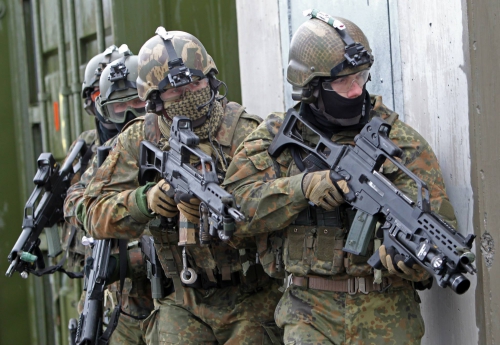
Weniger dürfte im Blickfeld der interessierten Öffentlichkeit stehen, wie zielgerichtet an Regierung und Parlament vorbei einflussreichste britische Kreise lange vor Ausbruch des Ersten Weltkriegs sich das erfolgreich als Gesellschaft und Staat konkurrierende Deutschland vor die Brust genommen hatten oder Präsident Wilsons Spezi für alles im Bereich Aussenpolitik, Colonel House, anlässlich seines Besuches 1916 beim bis dahin unter kriegerischen Aspekten siegreichen deutschen Kaiser Wilhelm II vorstellig geworden sein soll. Gegen die westlichen Mächte England und Frankreich müsse der Krieg beendet werden, und zwar aus ausschliesslich politischen Überlegungen, so angeblich Colonel House im Gespräch mit dem Kaiser.
Dafür dürfe man das zaristische Russland vernichtend schlagen. Für Russland hatte man ohnehin eine Aufteilung in zwanzig Staaten in Zusammenhang mit möglichen Ergebnissen des Ersten Weltkrieges vorgesehen. Kein Wunder, dass kundige Persönlichkeiten von einem grundlegend überzeugt sind, ob wir das in Deutschland nun wahrhaben wollen oder nicht: Die heutige westliche historische Sicht auf die letzten zweihundert Jahre sei ein «britisches Gesamtkunstwerk». Dabei fängt man bei Napoleons Kriegen an und dem britischen Vorschlag an die Bündnispartner Österreich und das königliche Frankreich. Man müsse die Gelegenheit nutzen und den russischen Bündnispartner durch eine gewaltige gemeinsame Streitmacht, bestehend aus dem kaiserlichen Österreich, dem königlichen Frankreich und England, vernichtend in seinem eigenen Kerngebiet schlagen. Wohlgemerkt: kurz nach dem vergeblichen Unterfangen Napoleons, es schon mal in Moskau versucht zu haben.
Es mag hierzulande so sein, dass zwar die Bundesrepublik Deutschland ihre staatliche Existenz auf das Deutsche Reich zurückführt. Für ein hinlängliches geschichtliches und damit politisches Verständnis gilt das keinesfalls, und dafür werden künftige Generationen einen hohen Preis bezahlen. Alle anderen Völker und Regierungen leben in der Geschichte ihres Volkes und ihrer Nation und nicht in einem limitierten Teilstück. Die Fehler werden dann zu Hause gemacht, auch wenn die Ursachen auf andere zurückgehen. Es kristallisiert sich allerdings heraus, dass unsere westlichen Partner uns in der Geschichte offenbar immer nur dann eine Rolle beigemessen haben, wenn es ernst wurde: entweder unsere Funktion in der Vernichtung Russlands zu sehen oder selbst unterzugehen. 1914 hat uns 2014 eingeholt, und so wird es mit 1917, 1918 und 1919 bis 1922 auch der Fall sein. Wenig später hat seinerzeit angeblich der amerikanische Militärattaché in Berlin in München Einfluss auf die Finanzbedingungen eines aufstrebenden Politikers namens Adolf Hitler genommen. Das war den Deutschen geläufig, hatten sie es zuvor bei einem Herrn namens Lenin auch so gemacht. Man denke auch an diejenigen, die zeitgleich in New York einen Trotzki in Marsch gesetzt hatten.
Die Frage stellt sich heute und morgen: Wollen wir uns ausbluten lassen? Einmal in der Konfrontation gegenüber Russland. Sie wird fast im verborgenen durchgeführt. Man liest zwar davon, doch nichts darüber, wie genau das abläuft, jedenfalls nicht in nachvollziehbaren Bildern in unseren Nachrichtensendungen. Dabei wäre das aus dem Nato-Kriegshafen Kiel in diesen Tagen ein Leichtes, das zu demonstrieren: Rund 2000 Kampffahrzeuge einer amerikanischen Brigade sollen mit Zustimmung der Bundesregierung an die Ostfront verlegt werden. Natürlich unter dem Vorwand der Verteidigung.
Zum anderen dadurch, dass die USA um uns herum einen Krieg nach dem anderen führen, anders als wir ihre Grenzen schützen und keine Kriegsflüchtlinge aufnehmen. Die Hintermänner sogenannter «Nichtregierungsorganisationen» und andere torpedieren über ihr organisiertes Netzwerk den nachhaltigen Schutz unserer Grenzen. Migrationsbewegungen werden genutzt, unsere staatlichen Rechtsordnung zu beseitigen, und unsere jungen Leute werden in anderer Leute Kriegen verheizt. Wo sind die Regierungen, die unsere Interessen schützen? Wo ist die deutsche Politik, welche die nationalen Interessen im Blick hat und sich für eine gute Nachbarschaft in Europa einsetzt? Wie steht es doch im Grundgesetz geschrieben, nach dem Deutschland zum Frieden in der Welt beitragen soll?
17:40 Publié dans Actualité, Affaires européennes | Lien permanent | Commentaires (0) | Tags : actualité, allemagne, politique internationale, europe, affaires européennes, willy wimmer |  |
|  del.icio.us |
del.icio.us |  |
|  Digg |
Digg | ![]() Facebook
Facebook
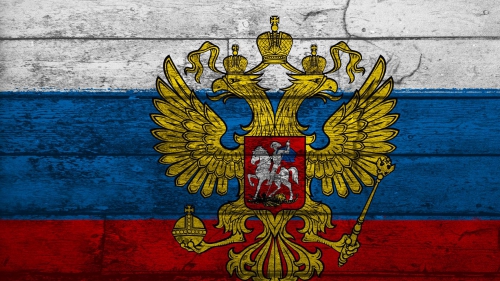
Ex: http://www.zeit-fragen.ch/fr
 Le livre de Hannes Hofbauer est sorti juste à temps, comme s’il avait encore fallu d’une preuve criante supplémentaire. Le Parlement européen a voté une résolution non contraignante, par 304 voix contre 179, avec 208 abstentions: «Résolution du Parlement européen sur la communication stratégique de l’Union visant à contrer la propagande dirigée contre elle par des tiers.»1 A première vue, cela semble défensif. En réalité, il s’agit du soutien de la «Task-Force pour la communication stratégique de l’UE» et de son «Disinformation Digest»2 c’est-à-dire du monopole d’interprétation de l’actualité politique internationale.
Le livre de Hannes Hofbauer est sorti juste à temps, comme s’il avait encore fallu d’une preuve criante supplémentaire. Le Parlement européen a voté une résolution non contraignante, par 304 voix contre 179, avec 208 abstentions: «Résolution du Parlement européen sur la communication stratégique de l’Union visant à contrer la propagande dirigée contre elle par des tiers.»1 A première vue, cela semble défensif. En réalité, il s’agit du soutien de la «Task-Force pour la communication stratégique de l’UE» et de son «Disinformation Digest»2 c’est-à-dire du monopole d’interprétation de l’actualité politique internationale.
La résolution «demande à chaque Etat membre de mettre à la disposition de ses citoyens les deux bulletins d’information hebdomadaires de la Task Force de l’Union sur la communication stratégique, ‹The Disinformation Digest› et ‹The Disinformation Review›, afin de sensibiliser le grand public aux méthodes de propagande utilisées par des tiers».
C’est avant tout la Russie qui est visée, comme on peut le lire dans le «Disinformation Digest» du service diplomatique européen. Ce n’est pas sans raison. Depuis onze ans, la chaîne de télévision internationale Russia Today (RT) prend de plus en plus d’ampleur et d’acceptation dans les pays «occidentaux». La politique et les médias nationaux se voient de plus en plus dans une situation où leur monopole d’interprétation de l’actualité politique internationale sur les questions litigieuses entre la Russie et les Etats de l’UE/OTAN est remis en question. La qualité très professionnelle du travail des journalistes du groupe RT et la présentation vivante des émissions, mais aussi la transmission d’informations exclues dans les médias occidentaux contribuent à cela. Le fait que cette résolution de l’UE met dans le même sac les médias russes, la propagande des terroristes islamistes du soi-disant «Etat islamique» et leurs vidéos montrant des décapitations est plus que bizarre: elle met ainsi les médias russes sur le même niveau que les tueurs de masse. L’endoctrinement des citoyens de l’UE n’est heureusement pas tel qu’ils ne le réalisent pas, d’autant plus que le cliché hostile de la Russie attisé dans les grands médias n’a, selon tous les sondages, jusqu’à présent pas montré les effets désirés.
Hannes Hofbauer a trouvé une formule d’une grande clarté pour expliquer au lecteur le lien entre la situation politique et la russophobie: «L’inimitié crée des clichés hostiles.» (p. 13) L’auteur ne se réfère pas seulement à la situation actuelle, mais retourne à la source de l’«image diffamant la Russie et les Russes» apparue au XVe siècle: c’est l’image de la Russie «asiatique et barbare» réutilisée à maintes reprises et dans de nombreuses variations comme un stéréotype par des créateurs de clichés hostiles. A l’aide du schisme de 1054, l’auteur montre que l’église catholique y a sa part de culpabilité. Depuis, l’église romaine d’Orient et avec elle l’église russe orthodoxe ne comptaient depuis plus comme communautés chrétiennes mais comme «refuges des apostats». Au XVIe siècle, l’Université de Cracovie jouait un rôle important parmi les institutions de formation. En l’an 1500, son influent recteur Johannes Sacranus désigna les Russes comme «peuple hérétique entretenant des rapports avec les Turcs.»
L’identité nationale du royaume de Pologne de l’époque, comme défenseur de l’«avant-mur de la chrétienté», semble avoir ses répercussions encore bien au-delà. Aujourd’hui encore et de manière renforcée depuis plusieurs années déjà, on critique le modèle de société et de politique russe, sous sa forme séculaire, dans les médias occidentaux. Dans la Pologne moderne, ces racines historiques sont particulièrement visibles dans les relations entre les gouvernements polonais et la Fédération de Russie depuis l’époque de Lech Walesa. Hofbauer explique de façon plausible que la grande influence de l’Université de Cracovie sur les «intellectuels» européens – selon la dénomination actuelle – de l’époque forma le mycélium dont se nourrit en Europe occidentale encore aujourd’hui l’image de la Russie comme «asiatique» dans le sens de «barbare».
Cependant, l’image négative de la Russie n’est pas née dans les discussions intellectuelles de l’époque indépendamment des intérêts de politique de puissance de l’Union polono-lituanienne face au duché moscovite. Au contraire, les professeurs savants fournirent l’amplificateur idéologique pour la propagande. Le regard quotidien sur les médias phares actuels montre une image assez semblable à l’observateur actuel des relations de l’UE et de l’OTAN avec le président Poutine. Le modèle n’a guère changé au cours des siècles. Le livre analyse les conflits et les guerres notamment du XIXe et du XXe siècles de manière à ce que le lecteur obtienne, dans une sorte de mouvement rapide, un résumé historique des évènements principaux des deux périodes avec les intentions stratégiques et les motivations des acteurs.
Cette analyse est également utile pour diriger le regard du lecteur sur les conflits actuels en Syrie, en Ukraine, en Libye, au Caucase et dans la mer de Chine ainsi qu’au-delà de la perspective ponctuelle et quotidienne, sur la perspective géopolitique globale caractérisée par le déclin relatif des Etats-Unis et parallèlement l’émergence d’Etats telle la Chine.
En tant qu’historien économique, Hannes Hofbauer est très attentif au rapport entre l’image purement négative et russophobe du pays avec ses gigantesques gisements de matières premières et les intérêts économiques et géopolitiques de l’Occident, notamment des Etats-Unis. On reconnaît ainsi, dans notre siècle actuel et le précédent, le recours à un modèle historique. Car dans les époques où les intérêts russes et occidentaux étaient en harmonie – comme ce fut le cas par moments au XIXe siècle entre la Prusse/le Reich allemand/Habsbourg et l’empire des Tsars – l’image de la Russie en tant qu’«incarnation du mal» n’existait que chez les «héros de l’histoire spirituelle allemande». Les dynasties, au contraire, voyaient le Tsar comme allié face aux agissements démocratiques.
La russophobie indirectement transportée de génération en génération par les intellectuels occidentaux libéraux est prête à être réactivée à tout moment par les élites politiques, comme cela s’est fait au préalable de la Première Guerre mondiale. L’auteur nous montre que cela n’a guère changé: l’histoire des rapports entre l’Occident et la Russie après la fin de la guerre froide et la dissolution de l’Union soviétique en sont la preuve.
Sous le président Eltsine, le régime présidentiel de la Russie exécuta sagement la transition de l’ancienne économie planifiée soviétique vers l’économie de marché capitaliste, selon les recettes recommandées par le FMI et les économistes américains Jeffrey Sachs et David Lipton selon le «consensus washingtonien».3 Ce fut une véritable stratégie de choc. Une grande partie de la population russe se retrouva dans une extrême pauvreté, l’espérance de vie diminua rapidement, d’anciens komsomols malins prirent le contrôle d’anciens combinats d’Etat et aidèrent les entreprises occidentales pétrolières et gazières à accaparer des parts majoritaires des grands groupes énergétiques anciennement étatiques. En même temps, l’Etat russe affaibli ne fut pas capable de faire face à l’élargissement de l’OTAN vers l’Est bien que cela fût une violation claire des promesses données à Gorbatchev en 1990 par le secrétaire d’Etat américain, James Baker.4
A l’époque, la couverture médiatique et les commentaires sur la Fédération de Russie étaient légèrement condescendants mais rarement aussi blessants et visant le bas de la ceinture que c’est le cas aujourd’hui. Car ni la Russie d’Eltsine ne s’opposa à l’élargissement de l’OTAN vers l’Est, ni ce pays affaibli n’était en état d’empêcher la guerre contre la République fédérale de Yougoslavie en 1999. Il semblait que ce n’était plus qu’une question de temps jusqu’à ce que les néolibéraux installés par Jeffrey Sachs et Co. à la pointe de l’économie et de la politique réussiraient à intégrer la Russie dans l’orbite occidentale. Donc, il n’y avait pas de raisons de soutenir, face au public occidental, une attitude méprisante envers un futur membre du club.
Cela changea rapidement avec l’entrée en fonction du président Vladimir Poutine, largement inconnu jusqu’alors. Dans l’un de ses importants discours de politique étrangère, le 25 septembre 2001 au Bundestag allemand,5 il proposa à l’UE d’unifier ses moyens «avec les hommes, le territoire et les ressources naturelles russes ainsi qu’avec le potentiel économique, culturel et défensif de la Russie.» Avec la formule «d’un espace économique commun de Lisbonne à Vladivostok»,6 Poutine réitéra cette offre et contrecarra ainsi les visions stratégiques des Etats-Unis pour l’Europe, basées sur la théorie du Heartland7établie par Halford Mackinder, et qui étaient le thème d’une conférence organisée par le Secrétariat d’Etat américain à Bratislava en 2000.8 Ce qu’on présenta aux hommes politiques d’Europe orientale fin avril 2000, était le concentré des analyses d’un groupe de travail de l’«Americain Enterprise Institute» proche des Républicains. Ce groupe de travail, dénommé «Project for the New American Century», publia en septembre de la même année son analyse principale «Rebuilding America’s Defenses»9 élaborée par les principaux néoconservateurs depuis plusieurs années.
La consolidation politique, économique et sociale de la Fédération de Russie entreprise par le président Poutine dès son premier mandat10 ainsi que la récupération du contrôle des entreprises stratégiques importantes en rapport avec sa conception d’une coopération dans le cadre d’une union économique eurasiatique avec l’UE mena à la première vague de propagande antirusse dans la politique et les médias occidentaux. La puissance dominante occidentale s’est, à cette fin, servie d’atlantistes déclarés de l’UE, tels des 115 politiciens et intellectuels «inquiets» ayant adressé une lettre ouverte totalement hypocrite, aux chefs d’Etats et de gouvernements occidentaux.11
Dans le dernier chapitre de son livre, Hofbauer fait de façon très concentrée le lien – à l’aide d’évènements concrets des dix dernières années (Géorgie, Ukraine) – entre les espérances constamment déçues des Etats-Unis et de ses «vassaux tributaires» européens (Brzezinski, «The Grand Chessboard») d’intégrer la Russie dans la sphère transatlantique et la campagne de dénigrement toujours croissante, se rapprochant de l’hystérie, contre la Russie et notamment ad personam contre Poutine.
Le même modèle se retrouve dans la couverture médiatique et les commentaires ainsi que les accusations des hommes politiques quand il s’agit de la Syrie, dont l’acuité croissante va de pair avec la baisse des espérances de l’Occident d’aboutir à un changement de régime en Syrie. Voici que le cercle se referme au début duquel se trouve le XVe siècle: lorsque les élites occidentales ne se voient pas en état de contrôler la Russie, elles mettent en marche la machinerie de diffamation.
La raison pour l’importance de ce livre est que l’Europe en entier – et pas seulement l’UE – doit trouver une voie dans le contexte des glissements tectoniques des rapports de forces globaux,12 afin de pouvoir contribuer par ses forces culturelles et économiques au développement d’un ordre mondial basé sur des fondements coopératifs et pacifiques. Le fait que la Fédération de Russie y jouera un rôle prépondérant est évident de par sa géographie et ses ressources. Ce qui est en jeu en Eurasie pour les générations futures s’ensuit du plaidoyer de l’ancien directeur politique du ministère des Affaires étrangères allemandes, qui fût par la suite ambassadeur de l’Allemagne à Pékin pendant six ans et qui, actuellement, est président directeur de la fondation Quandt: «La diplomatie par de nouveaux moyens. La ‹nouvelle route de la soie› chinoise devrait avoir une priorité stratégique pour l’UE.»13 Une ambiance empoisonnée par les médias serait contre-productive pour ce gigantesque projet. Je souhaite donc de nombreux lecteurs pour ce livre de Hannes Hofbauer. •
* Jochen Scholz est ancien lieutenant-colonel de la Bundeswehr et fut pendant quelques années au service de l’OTAN à Bruxelles. Plus tard, pendant la guerre contre la Yougoslavie, il servit au ministère allemand de la Défense. C’est là qu’il réalisa que les discours officiels des responsables politiques, décrivant de graves violations des droits de l’homme par la Serbie, ne correspondaient pas aux rapports des spécialistes sur place. C’est à cause de ces mensonges des hommes politiques qu’il quitta le SPD en 1999.
1 www.europarl.europa.eu/sides/getDoc.do?pubRef=-//EP//NONS...
2 https://eeas.europa.eu/topics/eu-information-russian/9506...
3 https://de.wikipedia.org/wiki/Washington_Consensus
4 Zelikow, Phillip/ Rice, Condoleezza. Sternstunden der Diplomatie, Berlin 1997, p. 257
5 www.bundestag.de/parlament/geschichte/gastredner/putin/pu...
6 www.sueddeutsche.de/wirtschaft/2.220/putin-plaedoyer-fuer...
7 https://de.wikipedia.org/wiki/Heartland-Theorie
8 Lettre de Willy Wimmer adressée au Chancelier fédéral Schröder, sur: www.nachdenkseiten.de/?p=22855
9 www.informationclearinghouse.info/pdf/RebuildingAmericasD...
10 www.bpb.de/internationales/europa/russland/135734/grafike...
11 http://web.archive.org/web/20070811110517/http://www.newa...
12 Cf. «ReOrient. Globalwirtschaft im Asiatischen Zeitalter» par André Gunder Frank: http://mediashop.at/buecher/reorient
13 https://zeitschrift-ip.dgap.org/de/article/getFullPDF/27469 und http://deutsche-wirtschafts-nachrichten.de/2016/10/03/par...
17:15 Publié dans Actualité, Affaires européennes, Géopolitique, Livre, Livre | Lien permanent | Commentaires (0) | Tags : géopolitique, politique internationale, livre, russie, europe, affaires européennes, russophobie |  |
|  del.icio.us |
del.icio.us |  |
|  Digg |
Digg | ![]() Facebook
Facebook

On appelle Intelligence Community (IC) les quelques centaines de responsables et d'agents (secrets) en charge des services de renseignement et d'espionnage qui ont toujours fournis à la Maison Blanche, au Département d'Etat, au Pentagone, au Congrès et à une presse autorisée des informations, exactes ou fausses, leur permettant d'orienter la définir la politique américaine. L'on cite évidemment en premier la CIA, en second le FBI. Les autres, par définition, ne se découvrent pas ou seulement à l'occasion.
La réponse à la question posée en introduction, « L'Intelligence Community (IC) gouverne-t-elle les Etats-Unis? « a toujours été affirmative, tout au moins de la part de ceux qui sont, aux Etats-Unis et ailleurs, un tant soit peu informés. Jusqu'à présent, elle a toujours été affirmative mais comportait parfois quelques nuances. Autrement dit, dans une démocratie parlementaire dotée de médias relativement indépendants, comme l'est l'Amérique, les informations et consignes données par l'IC doivent franchir un certain nombre de filtres avant de se traduire en politique gouvernementale effective. Dans certains cas rares, elles sont mises en doute voire rejetées, au moins par une partie de l'opinion publique.
Or aujourd'hui, au vu des campagnes sans précédents menées par l'IC pour déconsidérer Trump, empêcher sa nomination ou le cas échéant provoquer sa destitution (impeachment), des chroniqueurs indépendants mais non systématiquement hostiles à la politique américaine en général, tel Daniel Lazare dans Consortiumnews , peuvent écrire: « Un Coup d'Etat militaire est-il en préparation ? Ou bien les agences de renseignement américaines sont-elles en train de mettre en place l'environnement politique pour forcer Trump à abandonner la présidence parce qu'elles ne peuvent accepter l'abandon de la politique de nouvelle guerre froide contre la Russie ? »
Pour notre part, comme nous l'avons écrit dans des articles précédents, nous sommes persuadés que l'IC ce faisant exprime, directement ou indirectement, la volonté de la plus grande partie du complexe militaro-industriel-diplomatique qui, en arrière plan de l'IC, décide de ce que doivent être l'Etat américain et sa politique. Or aujourd'hui, du fait que Trump commence à mettre en oeuvre un début bien timide de reprise de dialogue avec la Russie, il devient l'obstacle à abattre. S'il n'est pas assassiné d'ici là, il sera de toutes façons éliminé.
Nous devons nous demander quelles sont les raisons « systémiques », si l'on peut dire, qui ont permis l'apparition au premier plan d'un Donald Trump.
Elles sont sans doute de deux sortes. Les unes relèvent d'une analyse souvent faites, aux Etats-Unis comme ailleurs. Une grande partie du complexe militaro-industriel américain hostile à Trump est elle-même au service d'un capitalisme financier mondialisé, essentiellement américain, qui domine aujourd'hui le monde et le conduira sans doute à sa perte finale.
Cependant une petite partie de ce capitalisme financier s'est dit qu'il y aura pour elle plus de profits à attendre d'un rapprochement avec Moscou, compensé d'ailleurs par une hostilité grandissante à l'égard de Pékin, plutôt qu'une poursuite de la guerre froide. Elle soutiendra donc Trump., tant du moins que celui-ci lui paraitra utilisable.
Mais une seconde catégories de raisons sont de type systémique. Une analyse historique élémentaire montre que les héros individuels (en France Jeanne d'Arc, Bonaparte, De Gaulle, pour ne citer qu'eux), ont été suscités et portés par des évolutions structurelles dont ils n'avaient souvent pas conscience. Ils en étaient les instruments. Encore fallait-il que de telles personnalités puissantes existassent préalablement.
Or l'anthropologie elle-même élémentaire montre que, dans les sociétés humaines comme animales, de telles personnalités apparaissent spontanément. Elles permettent à l'évolution créatrice de se produire en échappant aux déterminismes sous-jacents. Manifestement, Trump est à ranger, de par ses qualité et défauts hors du commun, parmi ces héros exceptionnels.
Concrètement, ceci veut dire que tous ceux qui, partout dans le monde, veulent lutter contre le système de domination américain actuel, doivent en fonction de leurs moyens, soutenir Trump sans s'embarrasser de nuances. Ceci aujourd'hui comme dans les prochains mois, s'il a survécu jusque-là, ou s'il n'est pas rentré dans le rang.
* Voir sur ce thème
http://www.zerohedge.com/news/2017-01-14/will-cia-assassi...
16:22 Publié dans Actualité | Lien permanent | Commentaires (0) | Tags : actualité, donald trump, états-unis, politique internationale |  |
|  del.icio.us |
del.icio.us |  |
|  Digg |
Digg | ![]() Facebook
Facebook
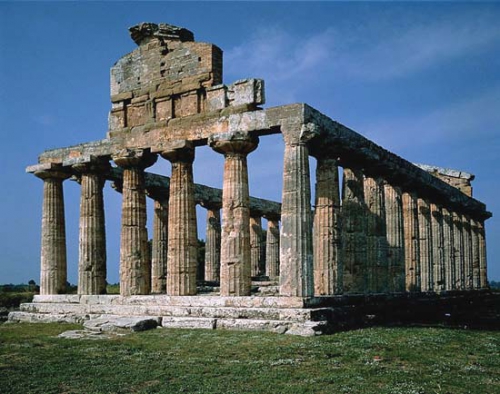
Ex: http://www.doorbraak.be
Wat hebben de film Troy van de Duitse regisseur Wolfgang Petersen met Brad Pitt in de hoofdrol, het pacifistisch verhaal Kassandra van de Oost-Duitse auteur Christa Wolf, de opera Elektra van Richard Strauss, de song More News From Nowhere van Nick Cave & The Bad Seeds, de roman De Ramkoning van de Vlaamse auteur Rose Gronon, de roman Ulysses van James Joyce of het toneelstuk Troilus and Cressida van Shakespeare met elkaar gemeen? Allen bouwen ze voort op de bijna 3 000 jaar oude Ilias en Odyssee van de Griek Homeros. Dit is slechts een losse greep uit de vele werken die zich op beide boeken baseren of er naar verwijzen.
Geregeld steekt de discussie over de zin en onzin van vakken als Latijn en Grieks in ons secundair onderwijs de kop op. Maar in de marge van de discussie over de hervorming van het secundair onderwijs kreeg die discussie een nieuwe wending. Plots werd de suggestie gewekt dat er onder de noemer klassieke talen niet langer alleen Latijn en Grieks moest worden verstaan. Khalil El Jafoufi, de voorzitter van studentenvereniging Mahara, verwoordde dit in een opiniestuk in De Standaard het duidelijkst: waarom bieden we ook geen Hebreeuws en klassiek Arabisch aan? Per slot van rekening kan je ook van die dode talen iets opsteken. Er zijn echter zeer goede gronden om dat niet te doen en de deur te sluiten voor die piste – iets wat in de kersverse hervorming van het secundair onderwijs ook is gebeurd. Was dit alles een wat vreemde nevendiscussie in het geheel, of is dit toch een fundamentelere oprisping dan men zou denken. Bij mensen als El Jafoufi wellicht wel. Het is niet zo gek om uit zijn idee af te leiden dat hij daarmee een volwaardige erkenning zou opeisen voor de Arabische cultuur in Vlaanderen. Want met een aanbod klassiek Arabisch in ons onderwijs wijzigt ook de culturele status van dat Arabisch.
Er zijn volgens mij twee redenen waarom je tieners zes jaar lang dode talen laat bestuderen. De eerste is dat je hen op die manier leert om het fenomeen taal op een andere manier te benaderen dan wanneer ze, zoals dat bij levende talen gebeurt, moeten focussen op de actieve taalverwerving die het hen mogelijk maakt om in die talen vlot te communiceren. Leerlingen klassieke talen leren teksten zeer grondig te analyseren, ze ervaren hoe je op een wetenschappelijke manier aan taalbeschouwing doet en je daagt ze uit door op een zeer specifieke manier een taal te ontleden. Kan dat enkel met Latijn en Grieks? Wellicht niet. Je zou dezelfde resultaten kunnen bereiken door bijvoorbeeld Sanskriet of een andere klassieke taal aan te bieden.
Maar er is een tweede reden waarom je jongeren oude talen leert, en daar zijn de twee ‘klassieke’ klassieke talen – Latijn en Grieks – van onschatbare waarde, nemen ze zelfs een unieke positie in in onze cultuur. Wie zich zes jaar lang in één van die twee talen of in allebei onderdompelt, krijgt een enorme culturele bagage mee die hem of haar de kunst en cultuur van de eigen leefomgeving – en dat is voor ons toch nog altijd (West)-Europa – beter doet begrijpen. Het belang van die twee talen overstijgt het antieke tijdvak waarin ze gesproken werden. Latijn was jarenlang de lingua franca van onze wetenschap en ons kerkelijk en wereldlijk bestuur. Het is de taal die mee gebruikt werd om in de Renaissance onze samenleving op nieuwe sporen te zetten, het is de taal waarin de basis van ons rechtssysteem is gelegd.
Het lijstje in de inleiding spreekt al boekdelen voor wat betreft het belang van het Grieks. En dan had ik het nog maar over twee boeken, niet eens over de Griekse theaterteksten, filosofie, wetenschap… Gedurende onze hele cultuurgeschiedenis spelen thema’s uit de antieke oudheid een vaak prominente en soms minder zichtbare maar wel aanwezige rol. Je kan sleutelmomenten uit onze geschiedenis zoals de renaissance maar even goed de politieke omwentelingen ten tijde van de Verlichting niet volledig doorgronden als je de klassieke culturele achtergrond niet kent. En Latijn en Grieks zijn niet iets uit het verleden. Zoals bovenstaand lijstje toont worden tot op vandaag kunstenaars uitgedaagd door die duizenden jaren oude thema’s. En uiteraard, ook het klassiek Arabisch heeft boeiende en leerrijke teksten voortgebracht, maar die zullen nooit dezelfde sleutelrol spelen als onze Griekse en Latijnse erfenis wel doet om onze samenleving ten volle te kunnen begrijpen. Laat ons dus verder investeren om onze jongeren met die cultuurschat te confronteren en ze er in onder te dompelen, en laat ons dat Latijn en Grieks in ons secundair onderwijs blijven koesteren als onmisbare fundamenten van onze Vlaamse cultuur.
De auteur is Vlaams Volksvertegenwoordiger voor de N-VA en lid van de Commissie Onderwijs.
16:10 Publié dans Ecole/Education, Traditions | Lien permanent | Commentaires (0) | Tags : école, enseignement, éducation, latin, grec, antiquité grecque, antiquité romaine, humanisme, humanités greco-latines |  |
|  del.icio.us |
del.icio.us |  |
|  Digg |
Digg | ![]() Facebook
Facebook

Par Alex
Source Club Orlov & http://lesakerfrancophone.fr
Il y a environ un an, dans un état de désespoir et de danger imminent, j’ai écrit un article que Dmitry a eu la gentillesse de publier sur son blog intitulé Stratégie de sortie pour les traitres. Cet article est une mise à jour. Rien n’a changé fondamentalement, mais beaucoup de chose sont arrivées, et la situation ne s’est améliorée que sur un seul petit point.
L’afflux quotidien de migrants en direction de l’Allemagne par la Turquie et les Balkans a chuté de façon significative et la pression sur l’Allemagne est redevenue gérable, nous donnant un peu d’air et rendant toute sorte de guerre civile immédiate très improbable. Mais nous constatons toujours une détérioration constante de notre sécurité et de notre humeur. La nation autrefois connue sous le nom d’Allemagne se dissout sous nos yeux et est remplacée par une dictature qui ne dit pas son nom. Le mélange d’euphorie et de choc de 2015 s’est transformé en une guerre de tranchées larvée entre les gauchistes, les ignorants et les autres.
Frontières en miettes
Les frontières de l’UE restent grandes ouvertes à tout parasite, criminel ou terroriste à peine ambitieux, et le nombre d’entrants par la route maritime a maintenant atteint des niveaux record.
Frontex capte encore des « réfugiés » par milliers près de la côte africaine et les amène en Europe – le contraire absolu de leur mission à l’origine. La contrebande de personnes se produit maintenant à l’échelle industrielle, mais n’est pas payée par les personnes passées en contrebande. Il est révolu le temps des simples cercueils flottants en bois remplis de migrants morts. Maintenant, des agents bien équipés s’assurent que les envahisseurs atteignent leur destination. Je me demande si une soi-disant « tragédie » avec des migrants noyés est vraiment arrivée. Rappelez-vous ces photos de qualité professionnelle de bateaux qui chavirent ? Quelle belle coïncidence – une catastrophe en mer et une photo tout en un !
En Espagne, les envahisseurs violent les frontières fortifiées par milliers, mais personne ne fait ce qui était autrefois une tactique de bon sens en défendant une frontière : tirer en l’air, puis viser et ouvrir le feu.
Les déportations – une fois la procédure appropriée activée pour ceux qui réussissent à passer illégalement – ne se produisent pas. Il y a peu de temps, avec une grande fanfare médiatique, 50 Afghans étaient sur le point d’être déportés par avion. Les groupes de gauche protestèrent vigoureusement. Seulement 35 ont été déportés, le reste a rampé dans le bois. Certains de ceux qui avaient été renvoyés en avion en Afghanistan ont immédiatement annoncé leur intention de revenir en Allemagne. Alors que cet exercice de « déportation massive » était en cours, quelque 3 000 nouveaux envahisseurs ont débarqué en Italie ; environ 350 000 pour toute l’année 2016. Faut-il encore expliquer qu’il ne s’agit pas de réfugiés mais d’une opération délibérée et organisée ? L’UE pourrait y mettre fin en quelques heures, mais les ordres actuels disent autre chose, parce que les responsables le veulent ainsi.
La sécurité
Il y a eu beaucoup plus de vols, d’attaques violentes, d’agressions sexuelles et de meurtres à relever en 2016. Une très petite fraction d’entre eux est cependant signalée par la Carte des crimes des réfugiés. Selon un récent rapport officiel de la BKA, les envahisseurs commettent en moyenne 800 crimes par jour. L’opération de contre-espionnage, Hoax Map, n’a pas duré très longtemps, rapidement accablée par cette réalité.
Les zones d’interdiction d’accès ou de non-droit occupées par les envahisseurs, où les autorités craignent d’aller, se répandent en Allemagne, mais par rapport à la France, la Grande-Bretagne ou la Suède, la situation dans la plupart des villes allemandes reste meilleure. Néanmoins, encore et encore, les gens qui vont vers la police reçoivent une fin de non recevoir, les rapports ne seraient même pas pris en compte, ou alors ils disent que les femmes devraient seulement teindre leurs cheveux en noir ou rester à la maison la nuit. En d’autres termes, les autorités ne veulent pas et ne peuvent pas nous aider. Nous sommes prévenus qu’il est interdit de recourir à la vigilance civile, mais nous ne sommes pas informés de notre droit à la légitime défense. Quelques jours après l’attentat terroriste de Berlin, l’UE a ratifié une nouvelle loi pour désarmer tout le monde en Europe, même les gardes forestiers et les tireurs sportifs. Ce que j’en dis, c’est que ceux qui respectent des lois qui les tuent ne méritent pas de pitié.
Là encore, l’Allemagne n’est pas encore tout à fait la Syrie. L’Allemagne est petite en terme de territoire, mais ce n’est pas un petit pays par sa population, et elle n’est pas encore submergée par le nombre d’envahisseurs. À cause de cela, les Allemands peuvent continuer à vivre dans le déni, même maintenant – jusqu’à ce que l’un d’eux devienne une victime. (Et quand vous le serez, vous devrez garder le silence à ce sujet, ou votre propre peuple vous traitera de raciste !) Où que vous alliez, vous êtes partout beaucoup moins en sécurité, à tout moment de la journée.
Certains de mes amis les moins aptes n’ont aucun sens du danger en public. Je l’ai, et donc je ne quitte jamais la maison désarmé, pour moi-même, mais aussi pour le cas pas si improbable ou j’aurais besoin de défendre quelqu’un d’autre. Je les considère comme négligents, mais encore une fois, ma conscience de la situation est maintenant à un niveau presque professionnel. La plupart des gens ne sont tout simplement pas câblés pour faire face à ce genre de situation.
Ce qui est aujourd’hui considéré comme une semaine normale aurait été considérée comme une urgence nationale en 1980. Toute personne de mon âge, en comparant notre enfance à la réalité actuelle, devrait reculer d’horreur et d’incrédulité. Mais les normes sociales sont malléables, et les jeunes générations ne peuvent même pas voir qu’il y a quelque chose de mal à avoir des frontières non surveillées et non défendues, parce qu’on leur a enseigné que les frontières sont périmées et nuisibles. Pourquoi devraient-ils aspirer à la souveraineté et à l’unité nationale s’ils ne les ont jamais vécues ? Au lieu de cela, on leur apprend à accepter le crime, la terreur et l’islamisation forcée. Ceux qui refusent d’accepter cet état de choses sont persécutés comme xénophobes racistes et fascistes.
Les « fausses nouvelles » de la presse mensongère allemande
La presse en Allemagne reste plus ou moins inutilisable, mais malheureusement, nous sommes toujours tributaires de cette information brute. Pour être juste, les rapports de crimes commis par des envahisseurs et le refus du gouvernement d’obéir à la loi en les poursuivant semblent beaucoup plus fréquents maintenant.
Même si les données brutes sont à peu près disponibles, chaque interprétation ou commentaire que nous entendons vise à obscurcir l’invasion islamique, à minimiser ses effets et ses conséquences catastrophiques pour le pays. Personne n’ose l’appeler pour ce que c’est – une invasion – et encore moins exiger qu’il y soit mis fin par des moyens simples, qui sont connus depuis des millénaires.

Le sentiment anti-allemand exprimé habituellement dans les médias allemands est tout simplement stupéfiant. Tout comme le mépris systématiquement exprimé pour les partisans de Trump par les médias des États-Unis, ils ne font aucun effort pour cacher leur haine et leur mépris pour le citoyen moyen allemand. Le ton anti-blanc, anti-mâle, anti-enfant, anti-occidental et pro-islamiste du commentaire est le même en Allemagne que dans une grande partie de l’Europe et des États-Unis, soulignant clairement une opération de propagande centralement organisée et bien financée, conçue pour soutenir l’invasion et pour neutraliser quiconque pourrait s’y opposer. Les femmes en niqabs et en burkas obtiennent désormais du temps d’antenne dans les talk-shows, apparaissant aux côtés des « experts » gauchistes recyclant sans cesse les mêmes faux points de discussion : pourquoi l’islam est « une religion de paix » et qu’elle n’a rien à voir avec quoi que ce soit (et n’est pas du tout une idéologie totalitaire) ; pourquoi Merkel avait raison de laisser entrer les envahisseurs (et n’a pas commis une horrible erreur) ; et pourquoi quelqu’un qui ne veut pas se rallier au programme de gauche, pro-envahisseur est automatiquement un raciste dangereux, xénophobe et fasciste.
Cette ligne de raisonnement n’est pas populaire auprès de la plupart des Allemands, et certaines publications, comme Spiegel, sont maintenant dans de grandes difficultés financières en raison de leur obéissance aveugle à suivre le programme pro-envahisseur. Mais la TV et la radio d’État sont directement financées par des impôts illégaux, siphonnant environ 8,1 milliards d’euros par an de nos poches, et continuant à pédaler avec les mêmes points de discussion erronés, peu importe à quel point le public les vomit. Mais notre choix est entre des « fausses nouvelles » et pas de nouvelles du tout.
Lorsque la très belle fille d’un politicien de l’UE a été brutalement violée et noyée par un migrant à Freiburg l’année dernière, Tagesschau, le bulletin d’information phare de la chaîne de télévision nationale ARD ne l’a pas rapporté du tout et a été forcé de se justifier deux jours plus tard. Ils appelaient cela alors « seulement un cas d’intérêt régional », se ridiculisant seulement encore un peu plus, parce que même le Washington Post a repris l’histoire. Des choses semblables se sont produites à plusieurs autres occasions, et dans chaque cas, l’exposition de l’histoire dans les médias sociaux a ridiculisé le traitement de ces événements par les médias. Donc, ne pas signaler les nouvelles du tout ne fonctionnera plus, et il est temps pour le Plan B : la censure réelle et immédiate des médias sociaux.
Ce plan est maintenant en jeu, avec le régime de Merkel menaçant de lourdes sanctions les plates-formes de médias sociaux pour… « fausses nouvelles », bien sûr ! Le ministère de l’Intérieur est sur le point de créer un centre de défense de la désinformation, pour lutter contre les « fausses nouvelles ». Si vous pensez que cela ressemble au ministère de la Vérité d’Orwell, ou à la MfS dans l’ancienne Allemagne de l’Est, c’est parce que c’est bien le cas. Situé très près du bureau de Merkel à Berlin, ce centre est censé « réagir très vite » à la « désinformation » sur les médias sociaux, en particulier avec un œil vers les élections générales en 2017, parce que de fausses nouvelles pourraient « influencer » les élections et éviter le résultat prédéterminé (en faisant entendre la voix du peuple).
L’efficacité de ce processus reste à voir. La police secrète est-allemande (STASI) ne peut pas être reconstituée du jour au lendemain, mais avec la pleine coopération de Google, Facebook, Twitter et d’autres, qui semblent prêts à succomber à la pression politique, le CDD pourrait s’avérer très efficace. Il deviendrait alors la deuxième administration la plus performante du gouvernement allemand, après les percepteurs d’impôts.
Perte de contrôle
Si vous regardez l’état du gouvernement national allemand et de son exécutif d’un point de vue historique – disons celui des années 1990 –, il semble maintenant être dans un désordre total et dans un état avancé de décomposition. Prenez, par exemple, le terroriste qui aurait été responsable de l’attentat terroriste à Berlin en décembre, qui était bien sûr un « réfugié ». Il était le deuxième suspect, après que le premier a été jugé « innocent », rien qu’un migrant illégal avec neuf fausses identités ! Il a été relâché, pour ne plus être revu, touchant probablement des prestations en utilisant une dixième identité.

Le « vrai » auteur était Anis Amri, un Tunisien. Il est venu d’un « pays sûr », l’Italie, où il a été condamné à quatre ans de prison et a été libéré en 2015. On lui a refusé l’asile en Italie et en Allemagne, mais la déportation avait été suspendue, car il avait opportunément « perdu ses papiers ». Il a eu au moins quatorze fausses identités et a probablement perçu des prestations sociales sous chacune. Il était constamment observé alors qu’il essayait d’acheter des armes automatiques à un agent en civil, puis a tenté d’amener d’autres salafistes à devenir des kamikazes. Pourtant, la police n’a vu aucune raison d’arrêter et d’expulser ce terroriste wahhabite trafiquant de drogue et criminel violent.
Même après avoir tué 12 personnes à Berlin, il a réussi à s’enfuir. Une journée entière après son attaque, son mobile fut « retrouvé » dans la cabine de son camion. Il a fallu un autre jour pour « retrouver ses papiers » dans la cabine de ce même camion. Un jour plus tard, la police a « accidentellement » annoncé son intention de procéder à un raid en Rhénanie-du-Nord-Westphalie, à six heures de route de Berlin. La presse est arrivée là et a attendu pendant des heures que quelque chose se produise, mais rien ne s’est passé parce que la police a bousillé le mandat d’arrêt. Alors, étonnamment, ils ne l’ont pas attrapé, et le chef de la police a annoncé qu’« il était parti ». Pendant les deux premiers jours, la police a mis à disposition un avis de recherche du terroriste avec ses yeux pixélisés pour, tenez vous bien, protéger sa vie privée ! C’est seulement après que Twitter et Facebook eurent pris le relais et publié des photos appropriées qu’ils ont changé la leur, mais ils ont ensuite utilisé une photo désuète, et mis une prime de 100 000 euros sur sa tête. Après avoir fait un certain nombre de détours à travers plusieurs frontières de l’UE, il a finalement été abattu en Italie par des policiers italiens qui ont eux fait leur travail.
Beaucoup de gens en Allemagne ne peuvent trancher s’il doivent être heureux avec la mort d’un terroriste ou voir cette histoire comme une farce pathétique / faux drapeau / erreur / machination. Ou tout ce qui précède. Il devient de plus en plus difficile de dire la vérité devant les fables et l’incompétence dues à ces sabotages volontaires. Mais si leurs ordres étaient d’afficher une incompétence complète, les autorités allemandes n’auraient pas pu faire un meilleur travail.
Quand de temps en temps, la police fait du bon travail, nos traîtres en fonction considèrent maintenant que c’est un comportement déloyal. La veille du Nouvel An, les mesures de sécurité à Cologne et dans d’autres villes ont été extrêmes, afin de prévenir les agressions sexuelles massives commises par les migrants l’an dernier. Néanmoins, des milliers de migrants, pour la plupart nord-africains, sont venus de tout le pays et même de France et de Suisse pour « célébrer » de nouveau avec les femmes locales. Beaucoup d’entre eux ont été chassés au début par des milliers de policiers, mais même alors, le commandement opérationnel a craint que la situation ne devienne de nouveau hors de contrôle. Il s’agissait d’un cas évident de « reconnaissance d’un combat au corps à corps » mené par les envahisseurs.
La seule reconnaissance de ces événements par les politiciens allemands était en soi une forme de critique sévère de l’utilisation du profilage racial contre les Nord-Africains. Devant chaque problème il y a maintenant un détournement, alors que les solutions ne sont pas du tout recherchées. Avec la presse docile et les médias sociaux sur le point d’être bâillonnés, personne ne pourra plus poser de questions difficiles. Si quelque chose ne va pas, ce sera probablement à cause d’un « piratage russe », et si quelqu’un n’aime pas ça, c’est probablement du « racisme ». Cela devrait suffire à tout garder à flot.
La situation politique
Comment l’opinion publique allemande change-t-elle à la lumière de tout cela ? Le processus politique normal a cessé d’exister, remplacé par une polarisation politique complète. Il n’y a plus de terrain d’entente : soit vous priez Sainte Merkel, soit vous êtes un ennemi de l’État. Soit vous acceptez tous les mensonges qu’ils vous disent soit vous êtes un nazi. Le gouvernement ne fait aucun effort pour obtenir le consentement des gouvernés ; au lieu de cela, il se sert uniquement de l’intimidation. Merkel est un dictateur de fait, juste parce que personne ne la défie en aucune façon.
Lors de la dernière conférence du parti, elle a fait face à des allégations de membres du parti qu’elle tentait de créer un culte de la personnalité, en prenant les mains des migrants, mais ils l’ont réélu chef du parti avec 89,5% des voix le même jour. Merkel ne se réfère même plus à nous en tant que citoyens ou Allemands. Elle a parlé en nous pointant du doigt à plusieurs reprises comme « ceux qui ont vécu ici pendant un certain temps ». L’implication évidente est que nous n’avons pas de droits ou de privilèges supérieurs à « ceux qui n’ont pas vécu ici pendant un certain temps », les envahisseurs.
Pour des raisons qui devraient être parfaitement évidentes, cela ne peut pas fonctionner. Vous ne pouvez pas gouverner, même par la force, en proclamant que vos propres citoyens sont l’ennemi. Hillary Clinton a essayé, se référant à la moitié de ses aspirants-constituants comme d’« un panier de déplorables ». Et où est-elle maintenant ? Au même endroit où Merkel va. L’aliénation totale des Allemands à leur classe politique ne peut avoir qu’un seul résultat final : le remplacement total de la classe politique allemande.
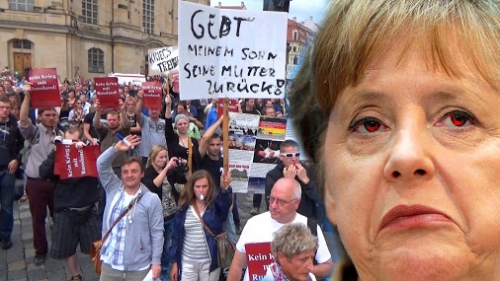
Une fois que les électeurs sont pleinement conscients de la situation, ils sont perdus pour les vieux partis, pour toujours. C’est la raison pour laquelle la résistance se construit si lentement : la plupart des électeurs doivent rompre avec pratiquement toutes les convictions politiques qu’ils ont jamais défendues, détruire activement leur faux sentiment de sécurité, abandonner le soutien qu’ils avaient reçu de l’État en étant bons, respectueux de la loi des citoyens et en votant comme leurs parents avaient voté parce que le gouvernement serait toujours à leurs côtés à la fin. Il est maintenant très clairement du côté de leurs ennemis – les terroristes, les violeurs… les envahisseurs.
Mais même ceux qui ne croient plus à rien de ce que les médias de masse diffusent ne parlent pas en public à cause des craintes, imaginaires ou justifiées ,des répercussions. Les dénonciations publiques sont très courantes. Dites le fond de votre pensée une seule fois, et vous ne pourriez ne plus jamais être promu, ou perdre votre carrière.
Pour ceux qui décident de laisser la vieille politique derrière, c’est un peu comme passer dans la clandestinité. On prend cela certainement beaucoup plus sérieusement que le simple divertissement d’avoir une opinion alternative. Nous ne sommes pas encore des hors-la-loi complets, mais si les ANTIFA [les « anti-fascistes »] vous frappent ou brûlent votre voiture, ne vous attendez pas à une quelconque sympathie.
Il y a quelques groupes en marge qui travaillent pour former une résistance souterraine. Outre le mouvement plus international d’identité nationale, très actif en Allemagne, la plupart d’entre eux visent une nouvelle assemblée constituante. Bien sûr, cela ne peut se produire qu’une fois que le paysage politique actuel aura été renversé. Les médias sociaux sont pleins de gens bien intentionnés mais pour la plupart impuissants. C’est un vaste mouvement de révolutionnaires anonymes qui aide ses membres à faire face.
Pour ceux d’entre nous qui préférons le chemin difficile et démocratique vers la réforme, il n’y a pour l’instant que l’AfD [Alternative für Deutschland]. Le parti a obtenu un soutien massif au cours de la dernière année. À la fin de 2016, il comptait 25 000 membres et 300 000 amis sur Facebook, et recueillait environ 16% des voix dans tout le pays. Mais par rapport au monstre, la CDU et ses 400 000 membres, il est encore très petit. En perspective, cependant, son influence peut devenir énorme.
Mais pourquoi devrions-nous nous fier à la politique alors que nos adversaires ne sont pas vraiment des politiciens, mais des traîtres, des ennemis mortels, voulant détruire notre pays, nous ruiner financièrement, et promouvoir le Volkstod [La mort de la nation], marier des enfants, accepter la charia et remplacer la population par des criminels et des fainéants importés d’États en déroute ? Pour moi, leur marxisme culturel n’est plus qu’une maladie mentale. Ceux qui le pratiquent sont malades et dangereux et ne méritent pas notre considération ou même notre condescendance. Nous devrions travailler à les exposer, eux et leur programme comme toxique pour toute société. Croire qu’une nation, ou même la race blanche, doit cesser d’exister par des moyens violents et être remplacée par une semi-société du Tiers Monde, ne doit pas être considéré comme un point de vue politique acceptable. Cela s’appelle un suicide ou un génocide, et ceux qui l’épousent devraient être interdits de vie publique.
C’est pourquoi je crois que nous devons les combattre de façon asymétrique, à tous les niveaux, et pas seulement à travers le système politique démocratique. Tout le monde peut et doit faire cela. Ignorer complètement leurs attaques hystériques, et contre-attaquer sur chacune de leurs propositions vicieuses. Excluez-les de votre entourage, en les définissant comme des fous. Ridiculisez-les à chaque fois que c’est possible, et ne votez jamais plus pour eux, jamais. N’espérez pas un miracle comme ce qui s’est passé aux États-Unis avec l’élection de Donald Trump. Rien ne se produira ici avant que les dommages ne deviennent irréversibles.
C’est le style que Trump incarne, et c’est exactement ce dont nous avons besoin en ce moment. Il n’est pas un grand homme d’État, et peut-être qu’il ne le sera jamais, mais il parle clairement et sans aucune contrainte, contournant les filtres des médias de masse et ignorant l’hystérie qui en résulte, fouetté par les beaux-parleurs de l’establishment. Il peut être un exemple lumineux pour les autres et il sera, à mon avis, l’allié le plus important des peuples d’Europe au cours des prochaines années.
En conclusion, je ne retire presque rien de mon dernier article. Les tendances sont toujours là, mais savoir si le résultat final sera la guerre, l’effondrement social ou la révolution est une question qui reste aussi ouverte qu’il y a un an. L’Allemagne a été changée pour toujours et, à moins de nous défier de tout ce que Soros et Merkel nous ont fait, pour redevenir un pays conservateur et conscient, notre pronostic deviendra de plus en plus affreux.
Alex
Note du Traducteur
Alex avait l'an dernier décrit l'an dernier la situation catastrophique de l'Allemagne. Depuis, il y a eu les viols de masse à Cologne, l'attentat de Berlin et milles autres « incidents » ignorés pas la presse mais qui sont le quotidien des Allemands.
Ce qui semblait à peine croyable l'an dernier est devenu presque normal. Il revient pour une mise à jour très radicale. La situation est en train d'échapper à la classe politique allemande.
Traduit par Hervé, vérifié par Wayan, relu par Cat pour le Saker Francophone
21:44 Publié dans Actualité, Affaires européennes | Lien permanent | Commentaires (0) | Tags : actualité, politique internationale, allemagne, europe, affaires européennes |  |
|  del.icio.us |
del.icio.us |  |
|  Digg |
Digg | ![]() Facebook
Facebook